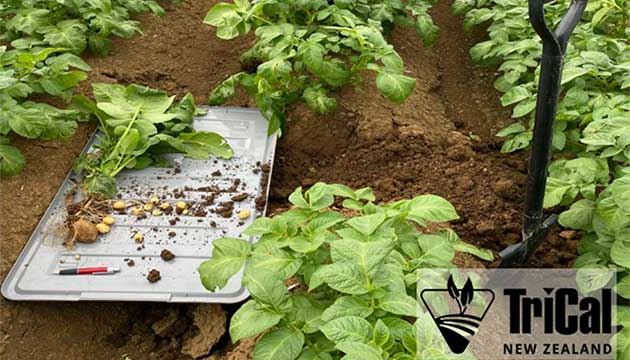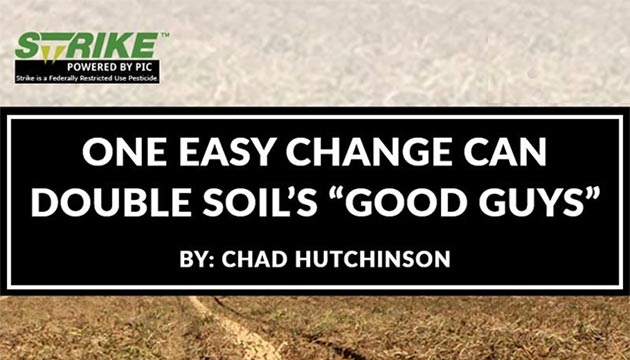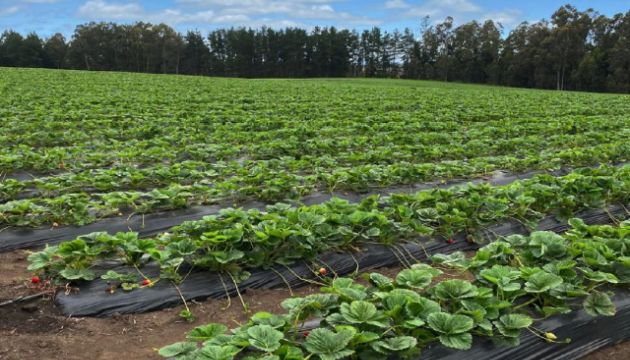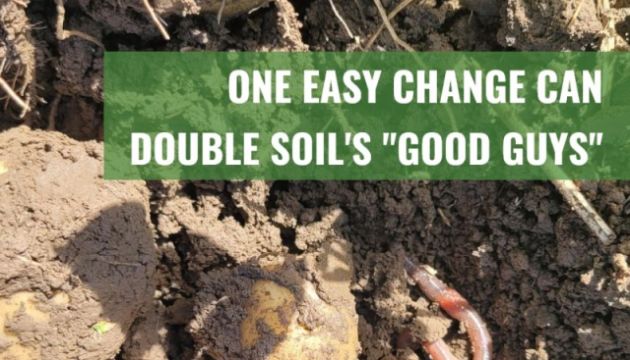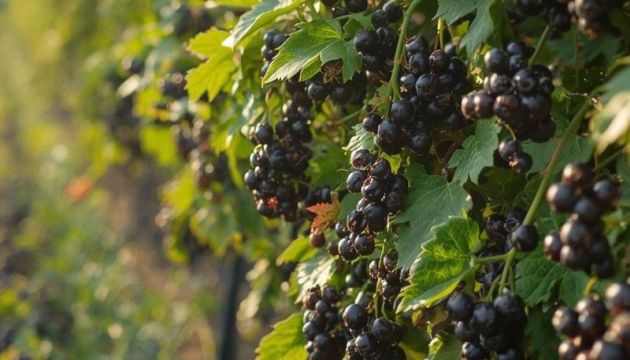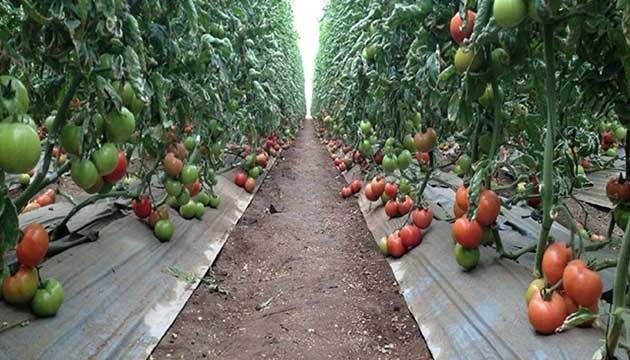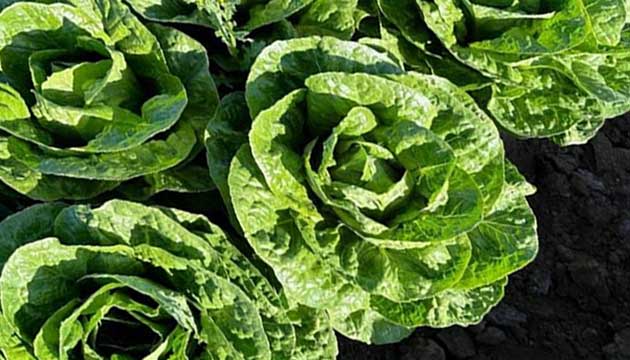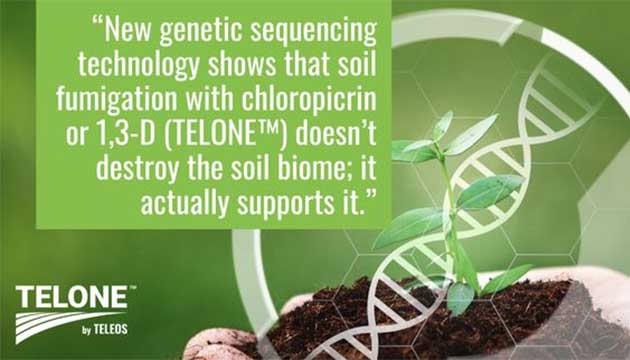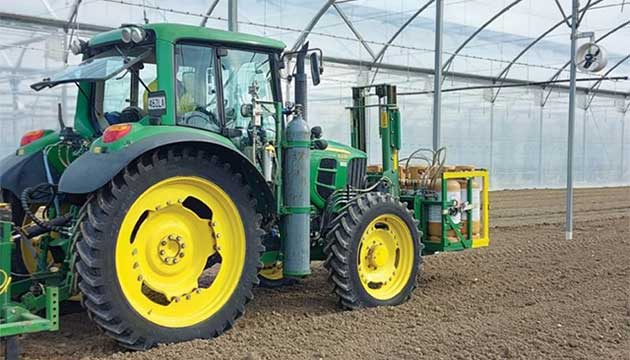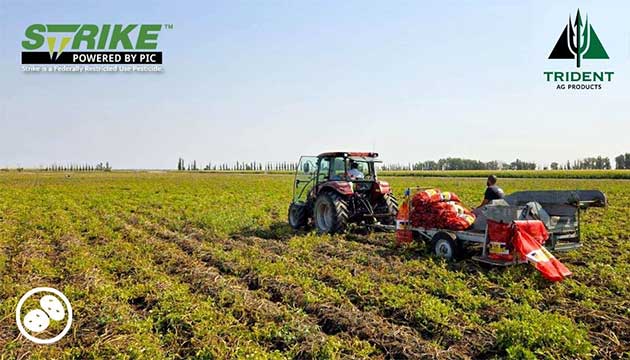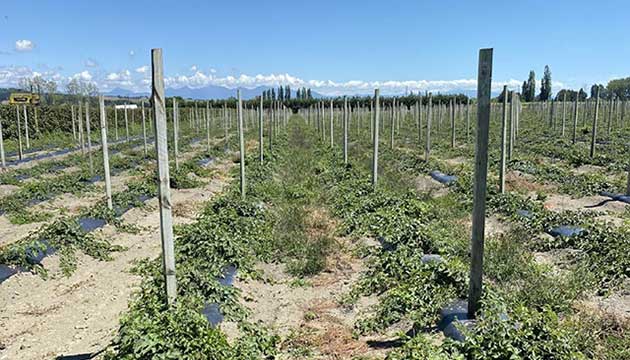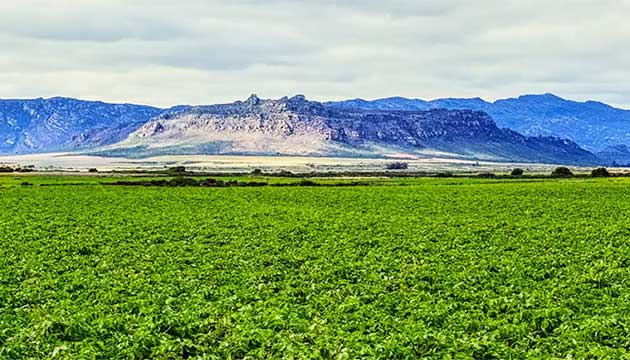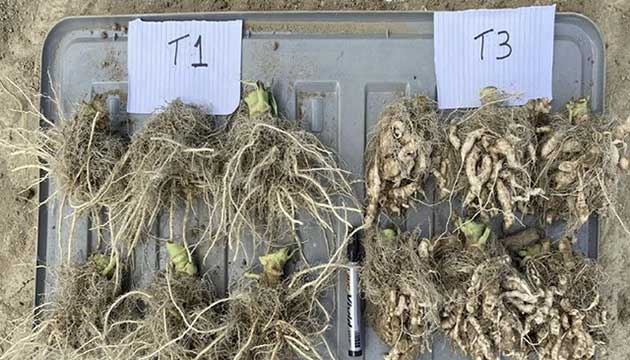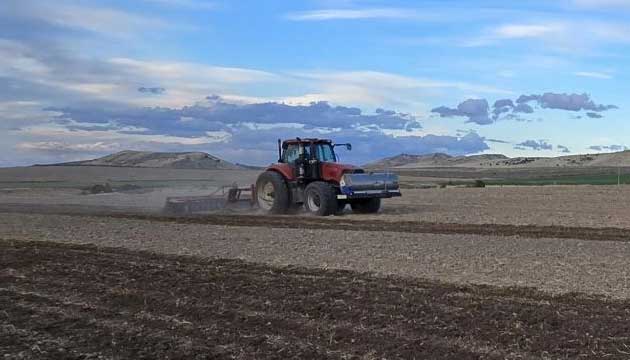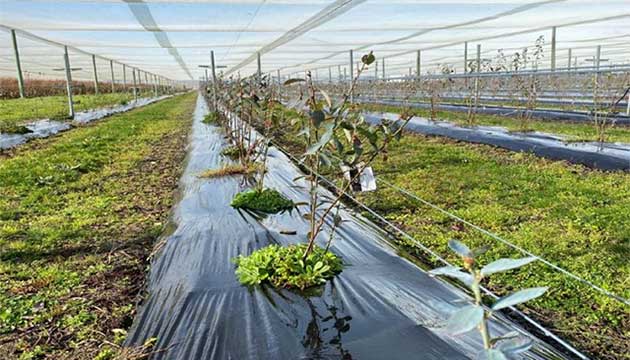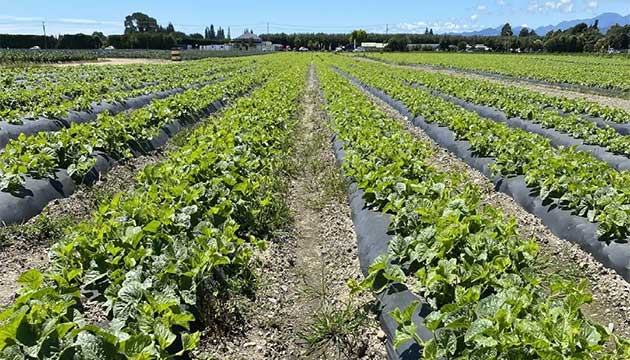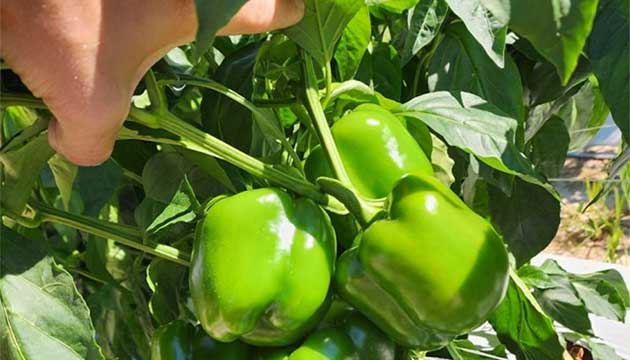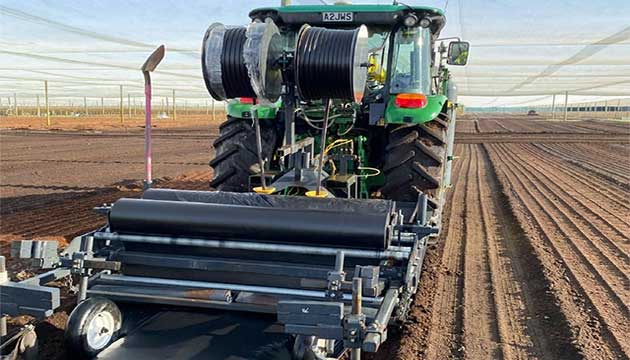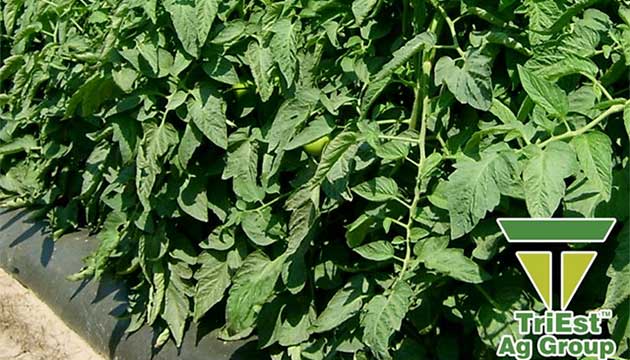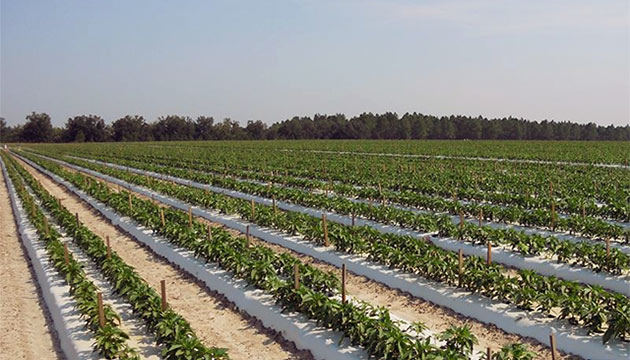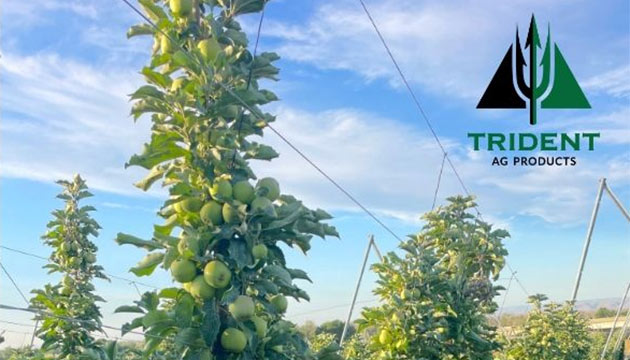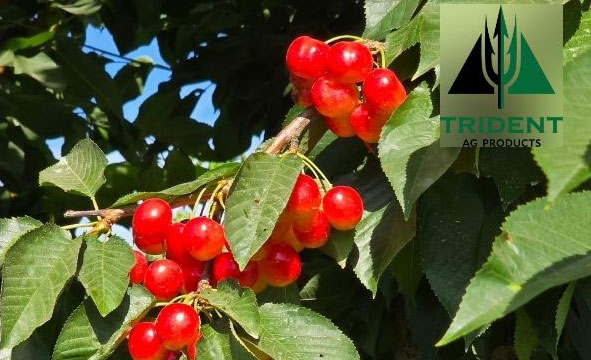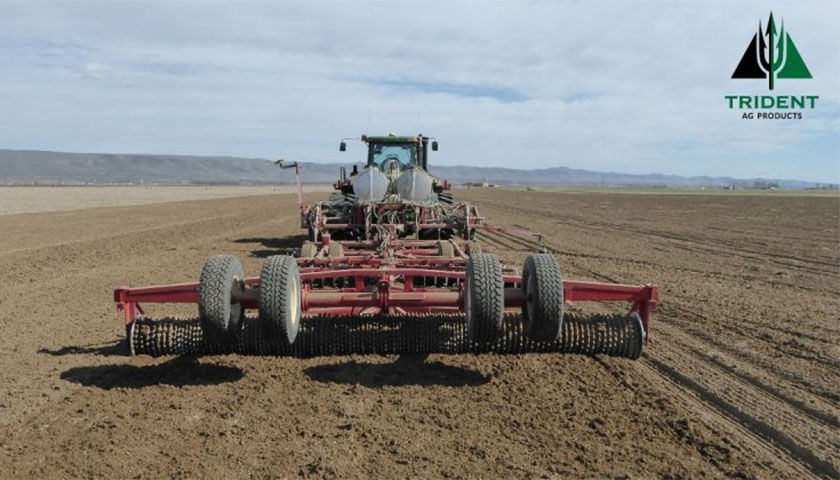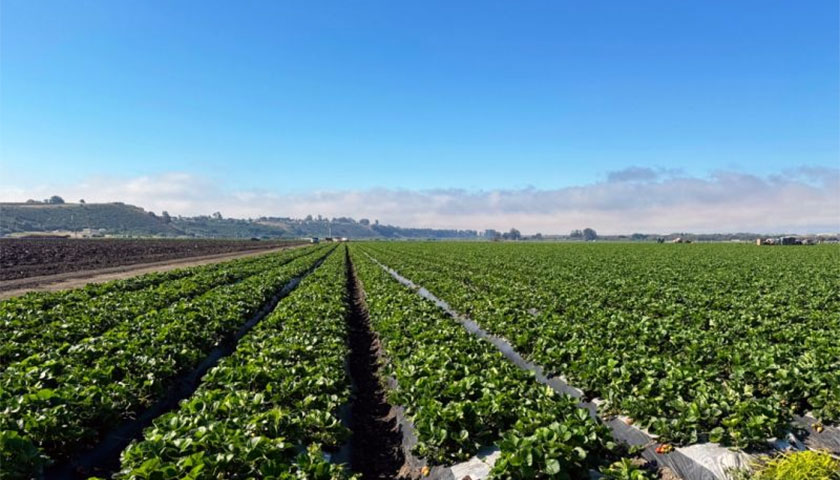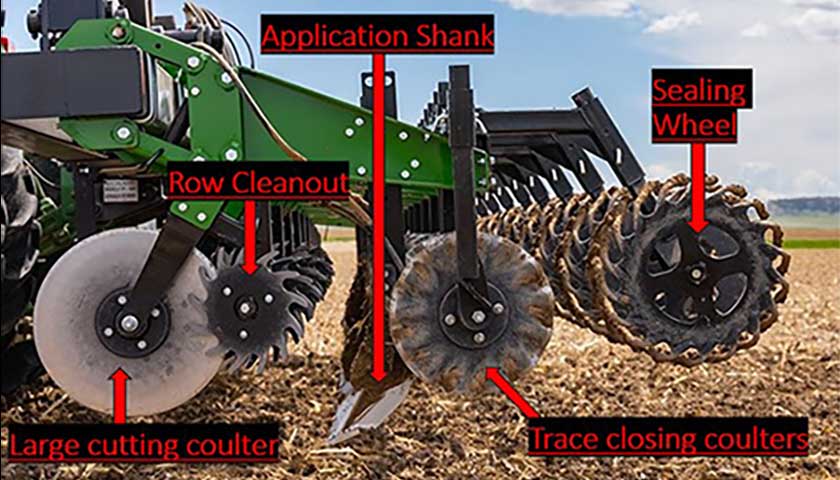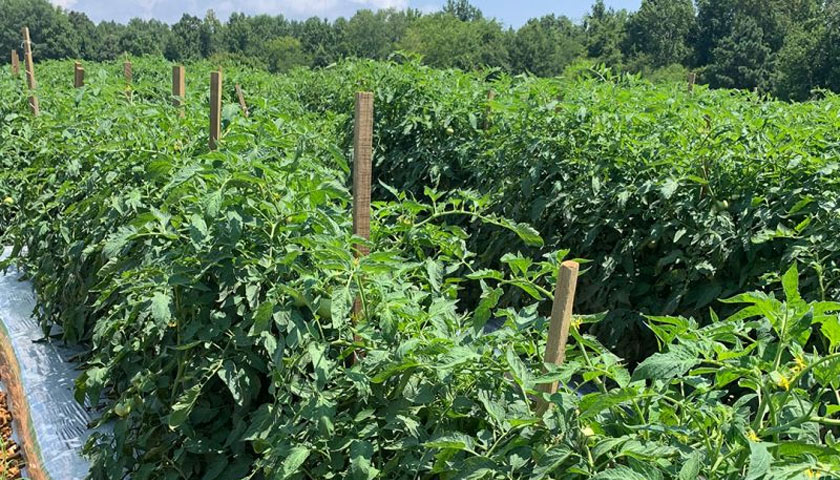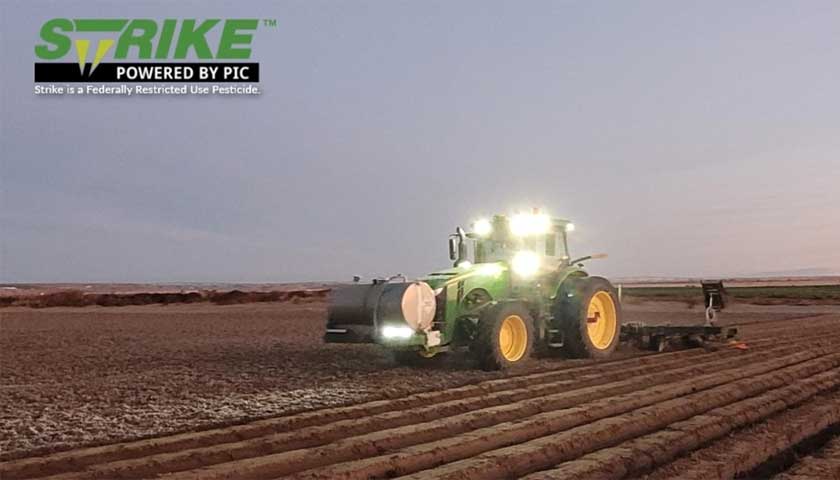- Fumigants are injected as liquids into the soil to control harmful insects, nematodes, weeds, bacteria, fungi, and diseases that have invaded a field.
- The fumigant volatizes into gas diffusing through the soil air space, radiating out from the points of injection.
- The treatment significantly reduces the harmful pathogens and rebalances the native beneficial soil microbe population, conditioning it for planting.
- The fumigant decomposes rapidly in the soil; and some fumigants, like Chloropicrin, actually biodegrade into plant nutrients.
- Crop planting takes place in the newly conditioned soil.
- Healthy plants are able to maximize their water and nutrient use and grow to full yield potential with no uptake of fumigant into the plant root or residue on the plant.
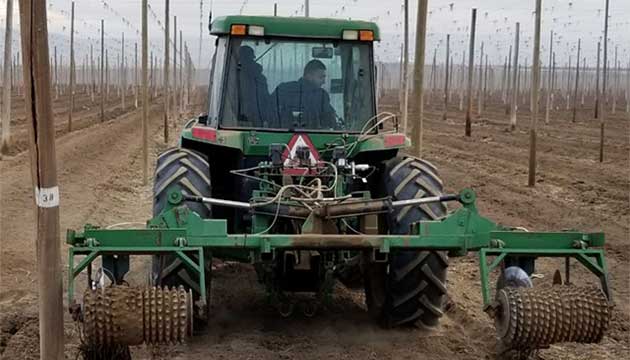
Hops | Harrah, WA.
Soil fumigation is underway in this hop field as part of the preparation for a successful growing season. Beginning with healthy soil helps manage soil conditions that can limit plant performance and supports strong establishment as the crop moves into the season. Trident's team works closely with growers to plan applications carefully and carry them out with precision and responsible practices in the field. At Trident Ag Products combines field experience, research-driven approaches, and a strong focus on stewardship to support long term crop performance and sustainable farming operations.
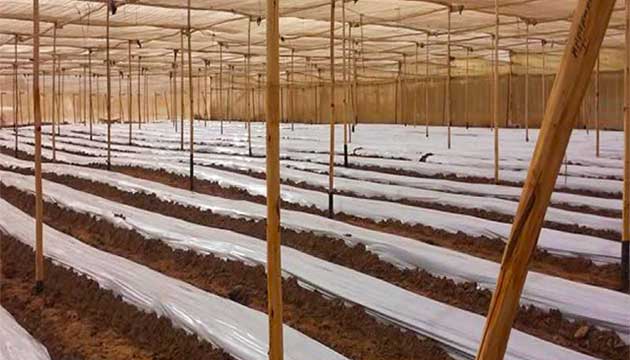
Tomatoes | Chili
Preparation and spraying of soil in pre-plantation is a strategic decision: reduce risks from the start, protect the root system and give the crop an even and strong start. Every prepared groove is a bet for healthier plants, more stable cycles, and a production that lasts over time. Because in tomato, as in all farming well done.
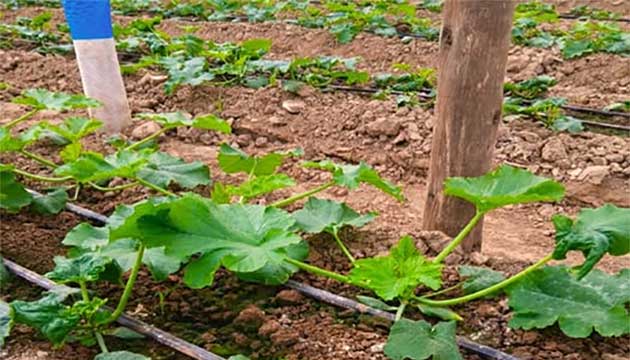
Cucurbitaceae | Mexico
Cucurbitaceas present a high sensitivity to early stress. Soil management focused on reducing the initial load of diseases and nematodes allows for faster deployment, better soil volume exploration, and balanced vegetative development. These conditions translate into greater water efficiency, better yogurt and a more stable productive cycle.
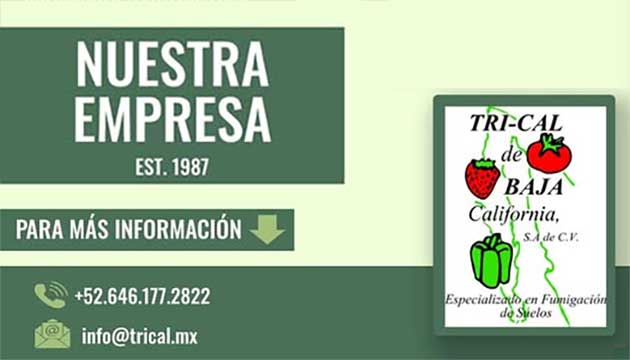
Since 1987, TriCal Worked with a Single Purpose
Since 1987 TriCal de Baja has worked with a single purpose: to strengthen agriculture from the ground up. Over the years, TriCal de Baja has accompanied producers with a clear approach: healthier, more productive and sustainable crops from the root.
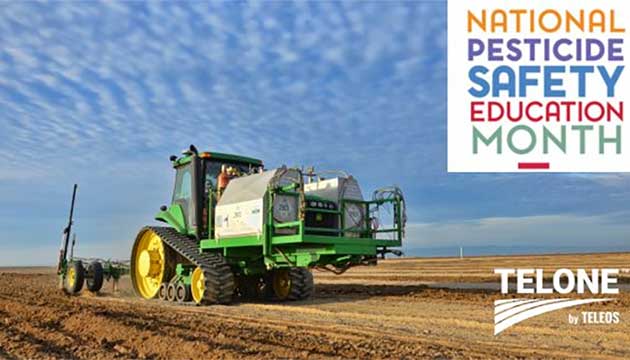
National Pesticide Safety Education Month Continues
As National Pesticide Safety Education Month continues, Teleos Ag Solutions reaffirms its commitment to supporting growers in their pursuit of sustainable agriculture. Teleos is dedicated to fostering a culture of responsible pesticide usage with TELONE™ by Teleos soil fumigant, from transportation through application. Our focus on product stewardship extends beyond delivering effective nematode management solutions—it encompasses a holistic approach to product stewardship. Our Stewardship Manager is focused on educational opportunities, trainings, ongoing communication, and resources to empower growers to safeguard their crops while prioritizing environmental and human health. This month, let's unite in our mission to elevate awareness about safe pesticide practices. Together, we can cultivate a more resilient agricultural landscape that sustains both livelihoods and ecosystems for generations to come.
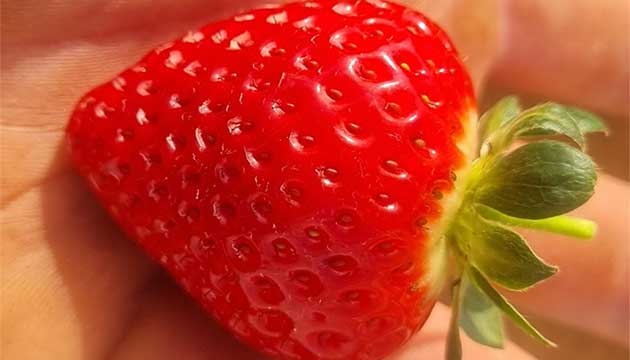
Strawberries | Wamuran, Queensland
Thanks to pre-plant soil fumigation, strawberry crops in Wamuran, Queensland are showing strong early growth and excellent fruit development. By reducing soil-borne pests and diseases before planting, soil fumigation supports healthier root systems and more vigorous plants. The result is larger, high-quality berries and more consistent yields — demonstrating how good soil preparation helps set the foundation for a successful strawberry season.
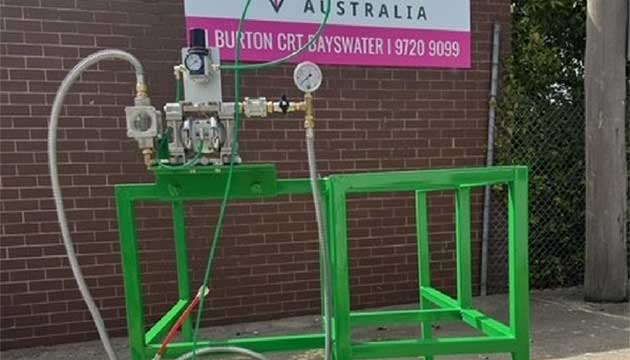
Trical Australia's Inline Skid Systems
TriCal Australia uses inline skid systems to deliver soil fumigants through drip irrigation with precision and control. By metering products directly into irrigation lines, this method allows for consistent distribution in the soil’s wetted zone while utilizing existing farm infrastructure. Inline skid application provides growers with a flexible, efficient option for managing soil-borne pests and supporting healthy crop establishment.
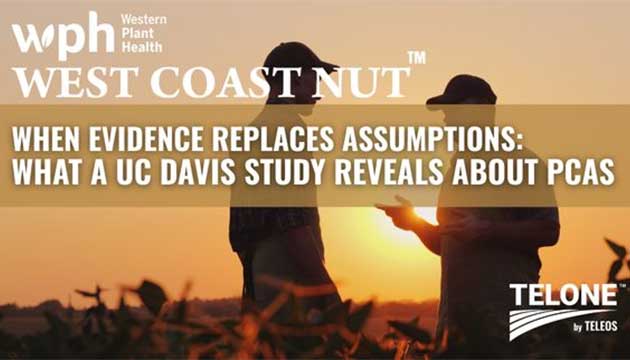
UNC Davis Reveals Findings about PCAs
In a recent op-ed in West Coast Nut Magazine, Renee Pinel, of Western Plant Health (WPH), puts long-standing claims about California agriculture to the test. Narratives have shaped public perception and fueled regulatory scrutiny at the California Department of Pesticide Regulation and legislative activity.
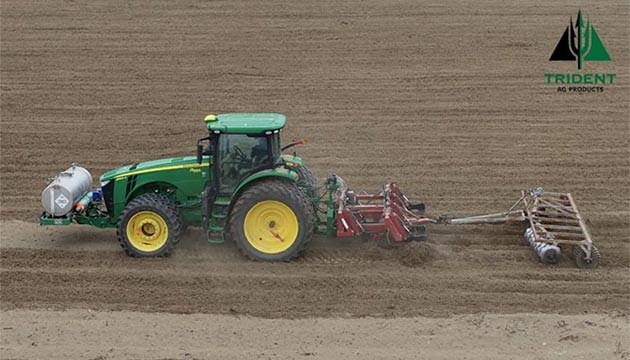
February is National Pesticide Safety Education Month
February is National Pesticide Safety Education Month, a time to highlight the importance of safe and responsible practices in agriculture. At Trident Ag, safety, stewardship, and proper training are central to everything we do, from planning to application in the field. We appreciate the growers and applicators who prioritize safety to protect their teams, their operations, and the land they work every day.

New Trical, Inc Overview Video
Our TriCal, Inc. Overview Video highlights who we are, what we do, and the people and purpose behind our work. From science-based solutions and product stewardship to strong partnerships with growers and industry collaborators, this video reflects our commitment to agriculture and the teams who make it possible.

It’s National Sweetpotato Month
It’s National Sweetpotato Month, a time to recognize one of California agriculture’s important specialty crops. At TriCal Inc., we work alongside sweetpotato growers to support healthy soil and strong crop establishment through professional soil fumigation services. Healthy soil plays a key role in supporting root development and overall crop performance, helping sweetpotato fields get off to a strong start each season.
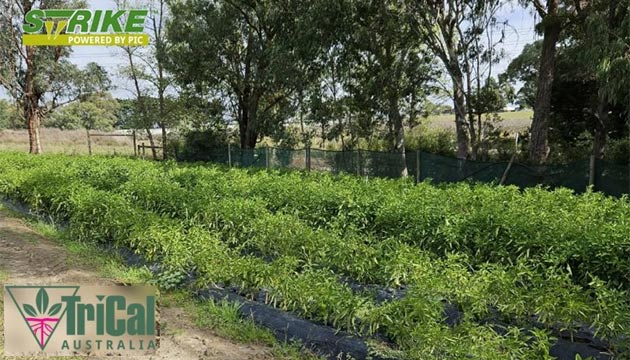
Capsicum Soil Fumigation in Victoria
A recent capsicum soil fumigation in Victoria compared treated and untreated soil to evaluate the impact of Strike 80 on crop performance. Trials like this highlight how Strike 80 can support more consistent yields and stronger crop outcomes in capsicum production.
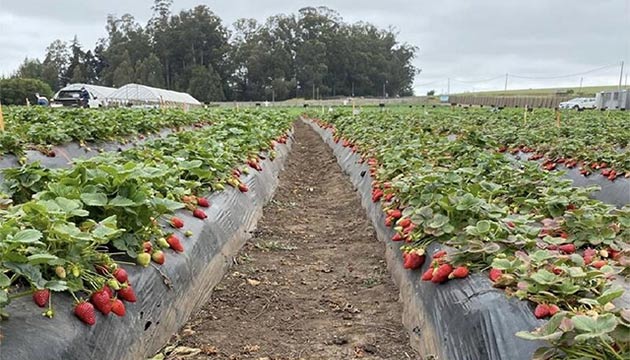
Where Soil Work Becomes Harvest
Before strawberries reach their characteristic color and flavor, there is a silent work that occurs under the soil. Proper agronomic management allows plants to develop evenly, sustain fruit weight, and maintain their productivity throughout the cycle.
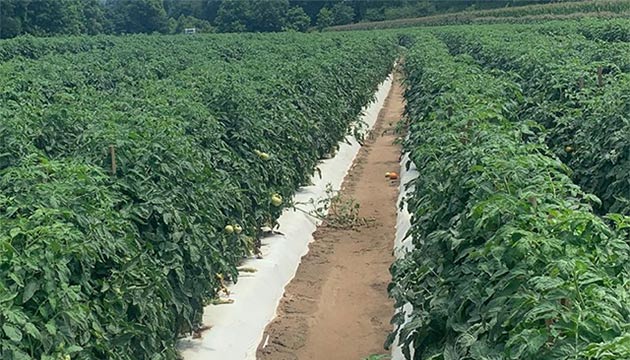
Soil health = Success of your Crops
Soil health plays a major role in the success of your crops. Set your fields up for a more productive season with proven soil fumigation strategies that boost soil conditions and increase marketable yields. What you do now determines next season’s performance.
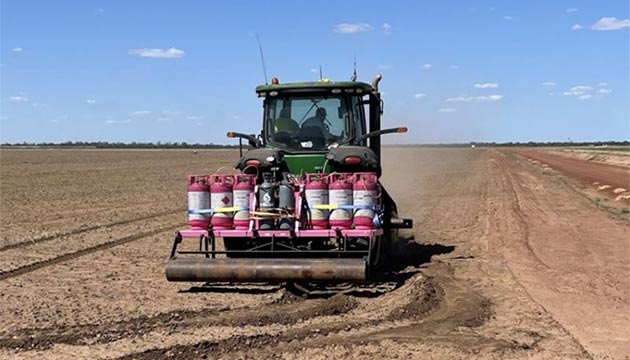
Shank Application for Applying Strike in Australia
Shank application is a widely used method for applying soil fumigants such as Strike in crops including potatoes, capsicums, tomatoes, cucumbers, and strawberries. Shank application supports reliable pre-plant pest management and healthier crop establishment.
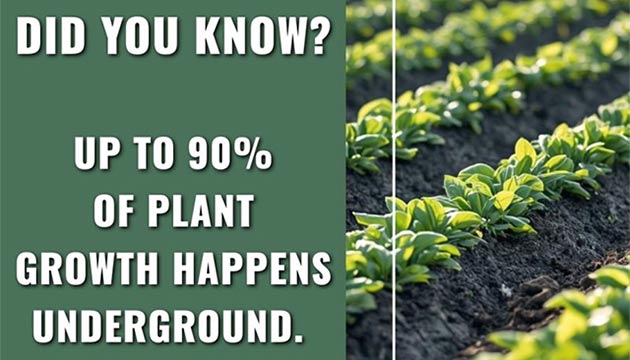
90% of a Plant’s Growth Happens Underground
Up to 90% of a plant’s growth happens underground. Strong, healthy roots determine how well a crop absorbs water and nutrients—directly impacting yield, uniformity, and overall plant resilience. That’s why investing in soil preparation early helps create the conditions crops need to grow stronger, withstand stress, and perform consistently throughout the season.

Strong, Productive Sweetpotato Crops
Healthy soil is the starting point for strong, productive sweetpotato crops. Thoughtful soil health management helps protect yield potential and crop quality season after season. Through tailored soil treatment programs, growers can manage soil-borne diseases and support a balanced soil environment where sweetpotatoes can thrive.
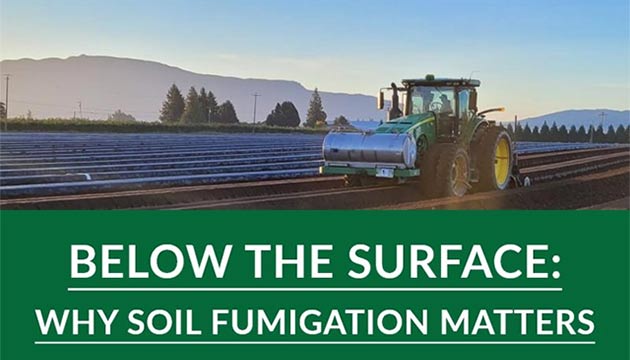
Why Soil Fumigation Matters
Soil fumigation is a key tool for managing soil-borne pests, including nematodes, fungi, bacteria, and insects. Soil fumigation helps create a healthier environment for crop establishment and growth. Healthy soil supports stronger stands , vigorous roots, and improved yield potential right from the start.

Soil Fumigation Helps Manage Risks for Onions
Onions are especially sensitive to soil-borne pests like nematodes, fungi, bacteria, and insects. Soil fumigation helps manage risks, giving your onions a healthier start. Soil fumigation supports uniform growth, reduces early crop loss, and helps maximize bulb quality and yield.

Why California Agriculture is Losing Ground
California feeds the country—and much of the world—but doing so is becoming increasingly difficult. Recently, on AgNet West Radio Network's Ag Meter, host Nick joined Damian Mason to dig into why America’s leading agricultural state is struggling to sustain and protect its growers.

64th Annual National SweetPotato Convention
Teleos is at the 64th Annual National SweetPotato Convention in Fort Worth, TX! TELONE™ Specialist, Greg Roberson shared what is on what's on growers' minds. Some of the big themes include mental health, rising input costs, regulatory policies, and unpredictable weather.
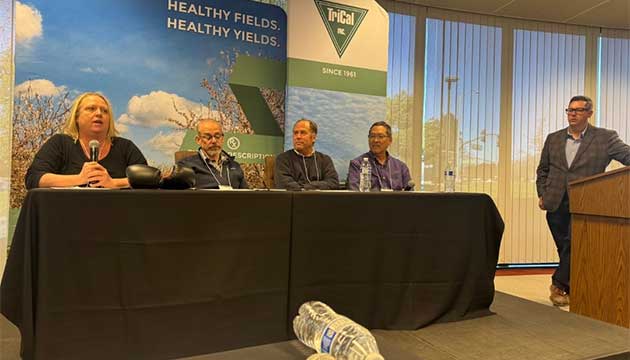
TriCal Group’s West Coast-affiliated Companies - 2026 S
TriCal Group’s West Coast-affiliated companies came together for our 2026 Sales Meeting Event - two energizing days focused on industry insight, innovation, stewardship, and teamwork. Together, we are moving forward in our mission to serve agriculture responsibly.
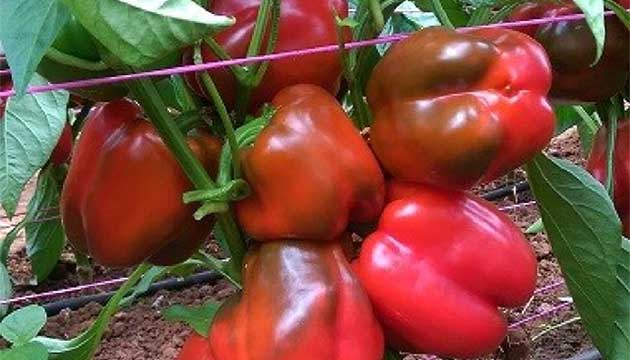
Greenhouse Capsicum Trial on the Adelaide Plains
A greenhouse capsicum trial on the Adelaide Plains evaluated the effectiveness of pre-plant soil fumigation with Strike 60 for managing Root Knot Nematodes and improving crop performance. Weekly soil testing was conducted to measure nematode suppression and crop response under controlled greenhouse conditions.
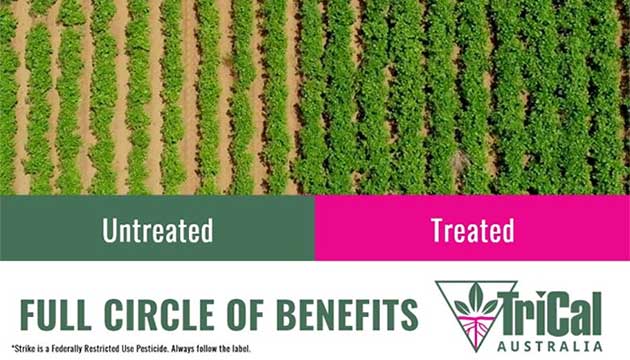
Stronger Root Development, Improved Crop Quality
Strike pre-plant soil fumigation reduces soil-borne disease while supporting beneficial soil micro-organisms, creating a healthier soil environment for crop establishment. The result is stronger root development, improved crop quality, and increased marketable yield, along with greater input efficiency and reduced rotation pressure.

Set the Stage for Healthier Plants and Higher-Quality Yields
Trident Ag Products provide reliable soil fumigation solutions that help growers manage soilborne pests and diseases, promote stronger root development, and set the stage for healthier plants and higher-quality yields.
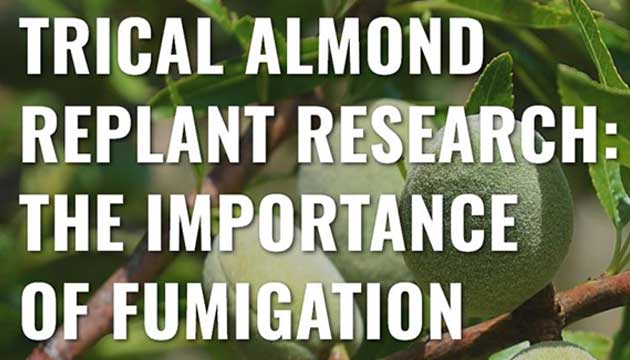
TriCal Almond Replant Research: The Importance of Fumigation for Growers
Nematodes can severely impact almond orchards in California, especially in replant situations where Prunus Replant Disorder affects up to 60% of plantings. Soil fumigation helps reduce nematodes, promote root development, and support long-term orchard performance.
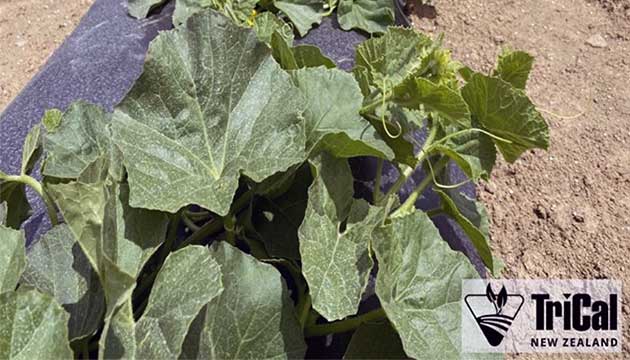
Careful Soil Preparation for Melon Crops
Row by row, healthy soil supports steady vine growth, balanced plant development, and the conditions needed for consistent, quality fruit. Careful soil preparation early in the season helps set melon crops up for success long before harvest.

How To Suppress Soil Pest and Disease Levels in Cucumbers to Below Economic Damage
Cucumbers are highly susceptible to soil-borne pests and diseases, with even moderate levels capable of causing significant economic loss. Effective soil management prior to planting is critical to protecting yield and quality.
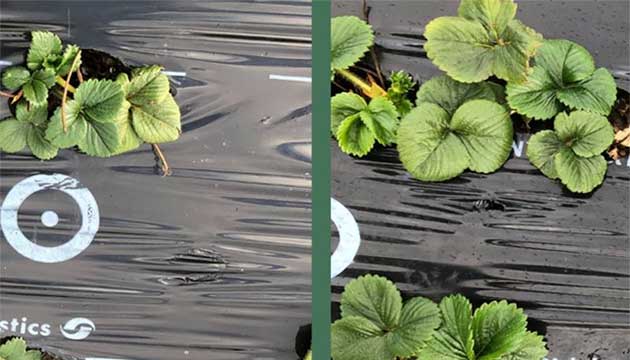
Strike™ is a Key Role in Optimizing Strawberry Production
Soil fumigation plays a key role in optimizing strawberry production. By improving soil conditions, Strike supports stronger plant development and more efficient production outcomes. With Strike, growers consistently achieve increased crop value and healthier, more resilient strawberry plants.
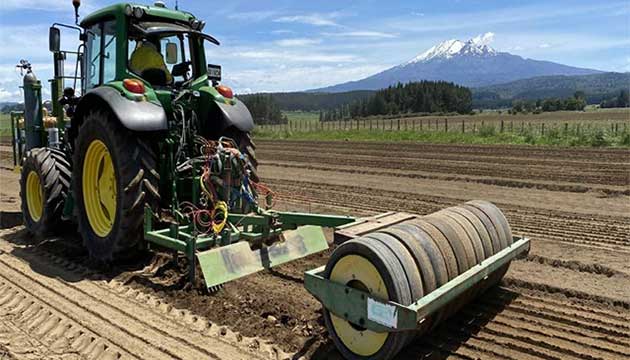
Strong Crops Start from the Ground Up
Even emergence and straight, healthy roots begin with well-prepared soil. Through targeted soil fumigation, growers can reduce below-ground pressures and create optimal conditions for uniform carrot growth and dependable performance in the field.
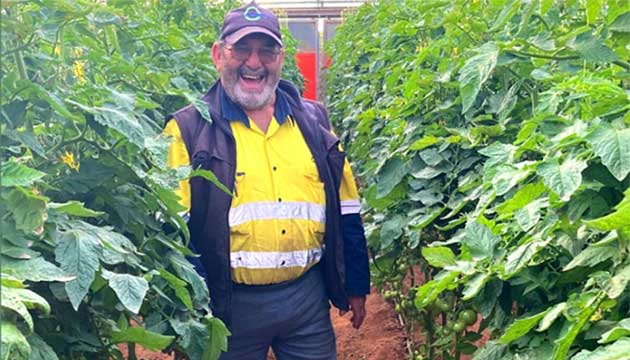
Greenhouse Tomato Grower Turns to Strike
After experiencing significant plant loss due to Fusarium and Verticillium, this greenhouse tomato grower turned to Strike 60 as a soil solution. Following application, plants showed no further dieback or wilting and began to thrive. The result was a healthier crop with strong, dark green foliage and large leaves. Tomato fruit developed uniformly in size and color, with a glossy finish and no blemishes—demonstrating the impact of effective soil management in controlled environments.

Southeast Regional Fruit & Vegetable Conference
Triest Ag Group is in Savannah this week for the Southeast Regional Fruit & Vegetable Conference, January 8–10, 2026. Visit the TriEst Ag Group at Booth #701 to connect with our team and discuss solutions for soil health, irrigation, grafted plants, soil fumigation, and other production needs.
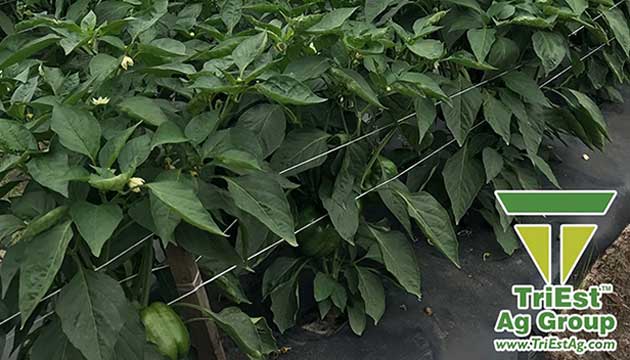
TriEst Ag Group Supports Growers with Soil Health
Healthy soil is the foundation for strong, productive crops. Managing soil health is key to maximizing yield and quality. From balancing beneficial microbes to suppressing soil-borne diseases, the right soil fumigation treatments create the environment your plants need to thrive. Learn how TriEst Ag Group supports growers with soil health solutions.

Managing Plant Parasitic Nematodes in California Specialty Crops with Soil Fumigation
Dr. Kristi Sanchez addresses how plant parasitic nematodes continue to challenge growers across California, affecting the underground root systems of many high-value crops in crops such as almonds, grapes, citrus, vegetables, and strawberries.
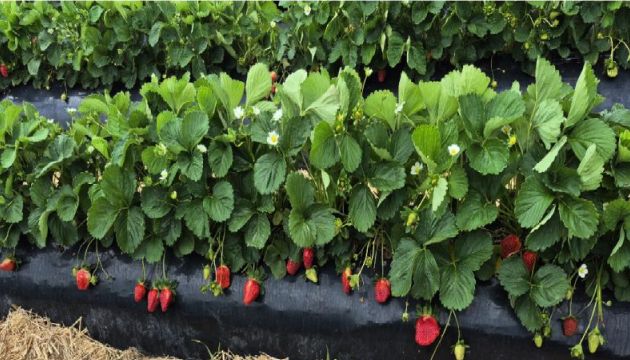
Promoting Strong Establishment in Strawberry Crops
Soilborne challenges can impact plant vigour, crown development, and early yield. Through targeted soil fumigation practices, we help New Zealand growers maintain cleaner planting beds, healthier root systems, and more consistent fruit quality throughout the season.

SweetPotato field in Atwater, CA
A sweetpotato field in Atwater, CA, is being soil fumigated with TELONE™ II to help manage root-knot nematodes and support healthy root development. This treatment provides growers with a stronger start to the season by creating optimal growing conditions for a productive crop. Healthy soil is the foundation of a productive field, and we are committed to helping growers achieve reliable results year after year.
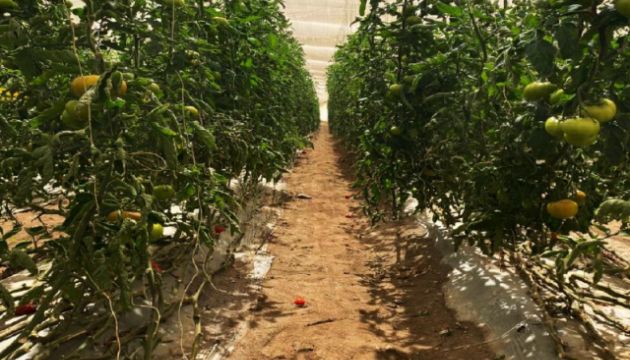
Quality that is Built from the Ground Up!
Proper soil treatment creates the necessary conditions for tomato plants to grow evenly, develop stronger roots, and produce firm, good-caliber fruit. When the base is healthy, each row reflects a better yield and a more even harvest.
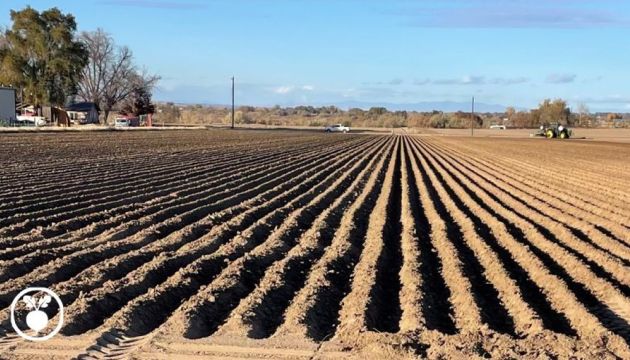
Idaho Sugar Beet Trial is Underway
Trident's Idaho sugar beet trial is underway with soil fumigation using CPM 65. This application is the first step in our effort to enhance sugar percentage and increase tonnage per acre. While the process is just beginning, establishing healthy soil is essential for supporting strong crop performance throughout the season.
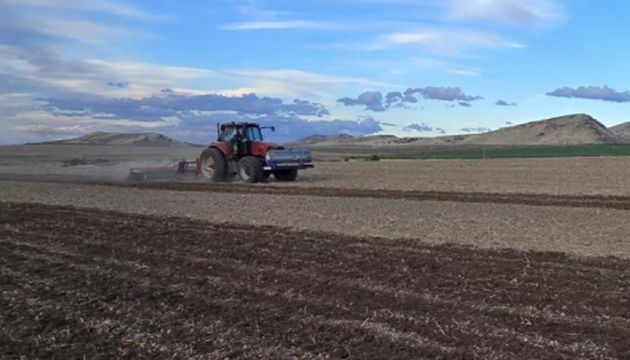
Eastern Idaho Potato Trial is Underway
Trident Ag's Eastern Idaho potato trial is underway with a new round of soil fumigation using Strike™, powered by Chloropicrin. This early stage sets the foundation for the season, helping manage soilborne pests and diseases and preparing the field for healthy potato growth. We look forward to monitoring progress as the trial continues.

New Blog Entry: Tackling Soil Tillage Part II
Our latest blog is now out. Director of Agronomy Josh Mays shares field results from our strip-till soil fumigation trials in Part II of the Tackling Tillage series. See how this reduced-tillage approach performed and where the research is headed next.
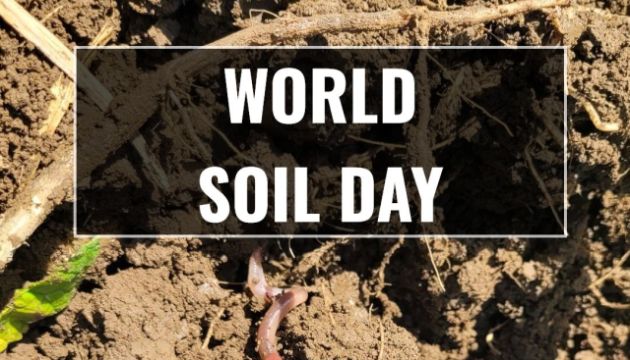
TriCal Group Celebrates World Soil Day
World Soil Day (Dec. 5th) highlights the healthy soils and sustainable agriculture. TriCal Group delivers science-driven solutions that protect and enhance this critical resource. Today we recognize the growers, advisers, and partners who work every day to steward the soil for future generations.

Big conversation in Potato is coming December 5th
After the strong response to August’s Soil Under Siege panel on black dot, Spud Smart and TriCal Group are bringing together three leading soil health experts for a candid discussion on common scab — one of the most stubborn and costly diseases in potatos.

Give your Plants their Best Start
Give your plants their best start with increased soil health. TriEst soil treatments contribute to soil health by both suppressing soil borne diseases and supporting the growth of native organisms that are beneficial to soil and plant growth.
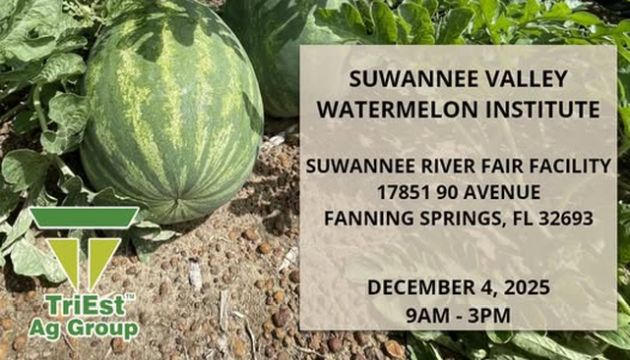
2025 Suwannee Valley Watermelon Institute
Triest Ag Group is looking forward to being part of the 2025 Suwannee Valley Watermelon Institute on December 4 in Fanning Springs, FL. Stop by our booth to learn how TriEst Ag Group supports watermelon growers with proven soil health, irrigation, fertilizer solutions.
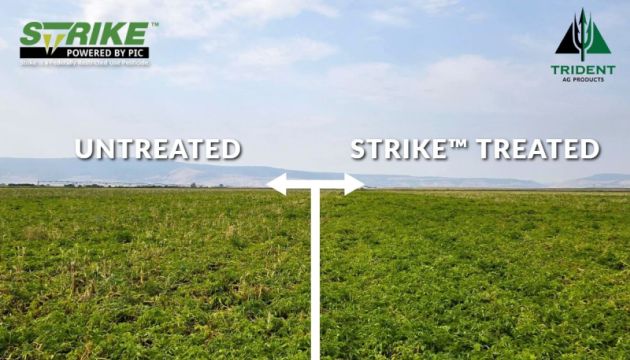
Pacific Northwest Potato Trial with Strike™
A clear look at one of our potato trials shows the difference healthy soil can make. The left side is untreated, and the right side was treated with Strike™, powered by Chloropicrin. The treated area shows stronger, healthier plants and improved growth.
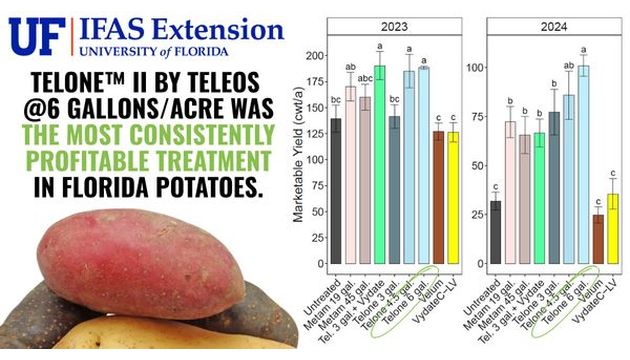
Telone™ and Florida Potatoes
Because Florida has sandy soils, warm winters, and relatively short cool seasons, potato varieties that mature early and handle heat/humidity. Using TELONE™ helps improve potato quality, increase marketable yields, and leaves behind zero residuals, so nothing ever comes in contact with your crop.
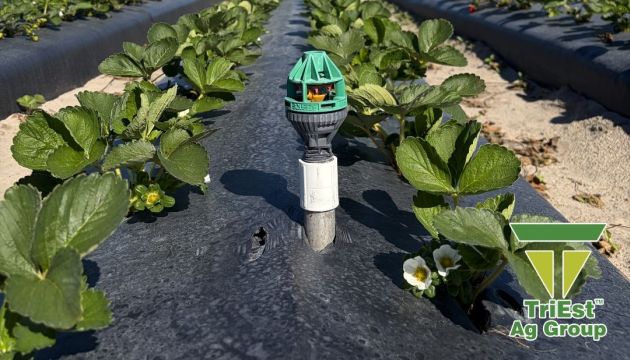
Early Florida Strawberries are Looking Strong
Early Florida strawberries are looking strong in the field. At TriEst Ag Group, we’re proud to support growers with advanced irrigation solutions, proven ag technologies, and soil health solutions that drive quality and yield under plasticulture production.

TriCal Australia's Soil Fumigation and Pest Management Solutions
TriCal Australia provides soil fumigation and pest management designed to protect your crops, facilities, and equipment, including Pre-Plant Fumigation, Post Harvest Fumigation, Bio-Security Import Direct ion, Structural Fumigation and Equipment Services & Calibration.
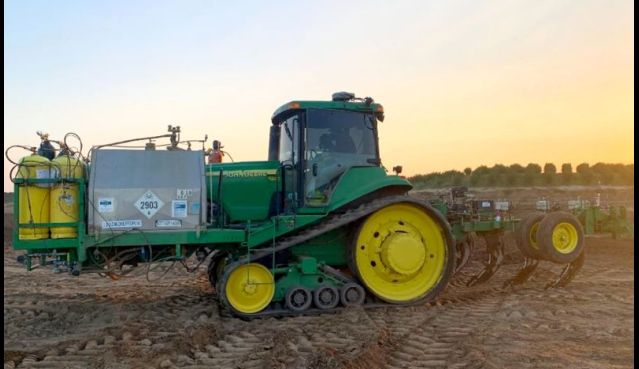
Healthy orchards start with healthy soil.
Healthy almond orchards start with healthy soil. TriCal Inc. provides professional soil fumigation services to help almond growers manage soil-borne diseases, improve root health, and set the stage for long-term productivity. Our team works with you to prepare your soil for success.

My Office View for the Day
Salesman Jared Davis took this picture of the beautiful mountain backdrop which sets the scene while the Trident team completes a soil fumigation project in an ornamental field. Trident Ag is proud to provide professional services that protect soil health, manage pests and diseases, and prepare fields for healthy, productive crops.

Can a Soil Fumigant be used as a Biostimulant in Agriculture?
In the video "Can a Soil Fumigant be used as a Biostimulant in Agriculture?" we take a closer look at how conventional tools like soil fumigation can complement emerging microbiome-focused practices. At TriEst Ag Group, we view Chloropicrin as a catalyst—reducing pathogen levels and creating a clean slate for beneficial microbes to thrive. By combining proven chemistry with biological innovation, growers can build a stronger, more resilient production system.
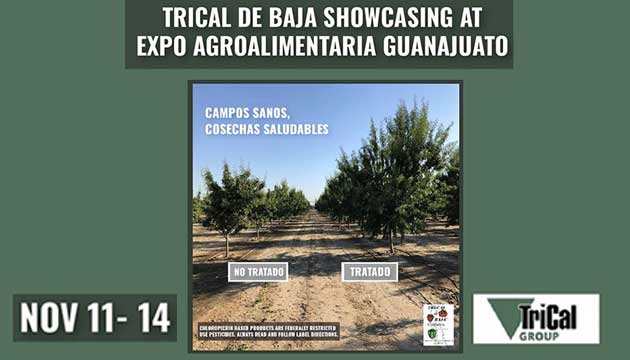
TriCal de Baja visits Expo AgroAlimentaria Guanajuato
From November 11–14, TriCal de Baja, a proud member of the TriCal Group family of companies, will be showcasing how healthy soil is the foundation of a successful harvest at the Expo AgroAlimentaria Guanajuato. The difference is clear. Learn more about solutions like Tri-Clor, Tri-Form, Piclor, and Paladin, and how they help protect your fields and boost productivity.

Building Healthy Soil for Better Yields
Healthy soil is the foundation of every productive field. Through soil fumigation, Trident Ag helps manage pests and diseases, improve soil conditions, and enhance crop performance. Our team provides customized soil fumigation services tailored to your crop and growing environment to support long-term success and higher yields.
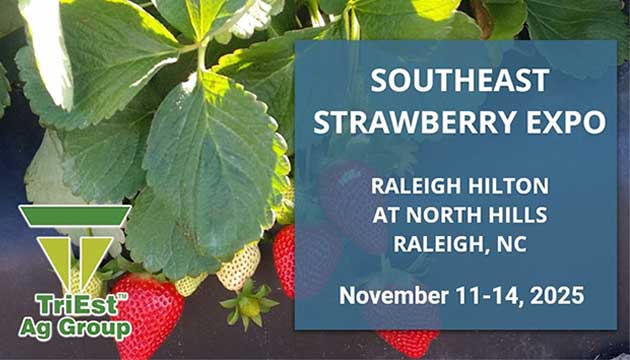
Triest Visits Southeast Strawberry Expo
TriEst Ag Group is proud to serve as a sponsor and exhibitor at the 2025 Southeast Strawberry Expo next week, November 11-14th, in Raleigh, NC. Visit our booth to learn how our integrated solutions in soil health, irrigation, plant nutrition, and equipment support productive and sustainable strawberry production.
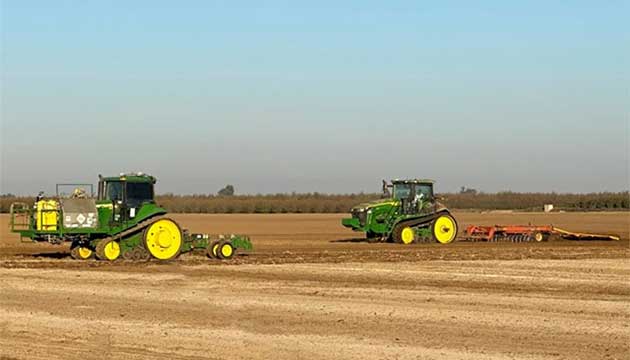
Healthy Soil Builds Healthy Trees
Preparing healthy soil is the first step toward a productive almond orchard. This field in Ripon, CA, was soil fumigated by TriCal Inc. to help manage soil-borne diseases and create the best environment for strong root development and long-term orchard success. Healthy soil builds healthy trees, and it all starts here.

Trident Ag Delivers Trusted Soil Fumigation
Trident Ag delivers trusted soil fumigation services designed to manage soil-borne pests and diseases while improving conditions for productive, resilient crops. Our team partners with growers to prepare fields for success, supporting better yields and long-term soil health.

Soil Fumigation to give Strawberries the Best Start
TriCal Inc. provides soil fumigation services designed to give strawberry growers the best start possible. By preparing the soil ahead of planting, we create the foundation for healthier plants, stronger root systems, and more resilient fields with reduced pest and disease pressure. Take a look at this soil fumigation process in this Santa Maria strawberry field and discover how TriCal can help your crop reach its full potential.
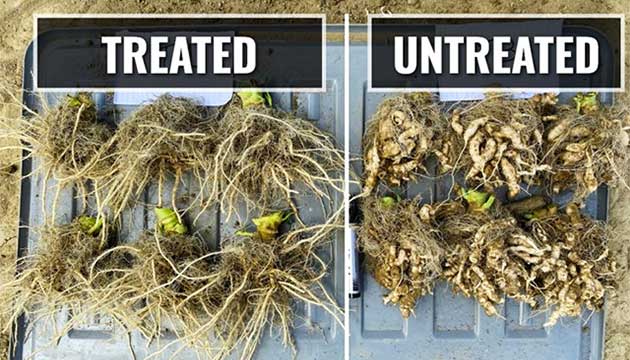
TriCal New Zealand Conducts Broccoli Trial
Recently, a broccoli trial was conducted in Levin, North Island, targeting Clubroot — one of the most persistent and challenging soil-borne diseases growers face. Through precise soil fumigation, TriCal New Zealand continues to help protect soil health.
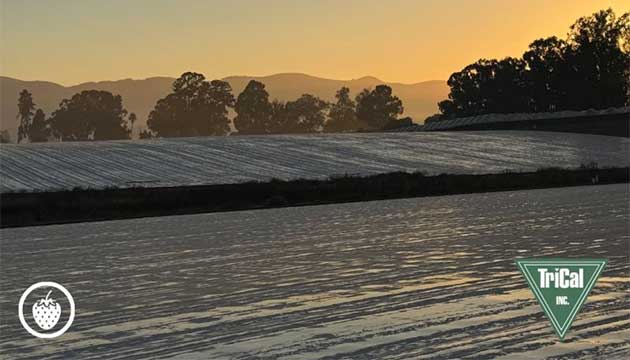
TriCal Fumigation for Improved Crop Performance and Higher Yields.
Stronger plants, healthier soils, and better yields begin beneath the surface. That’s why a strawberry grower in Nipomo, CA, partnered with TriCal Inc. for reliable soil fumigation solutions. Through precise fumigation, we help enhance soil health, reduce pest and disease pressure, and promote stronger root development, all key factors for improved crop performance and higher yields. At TriCal, we’re proud to support growers with proven practices that set the stage for a successful season.
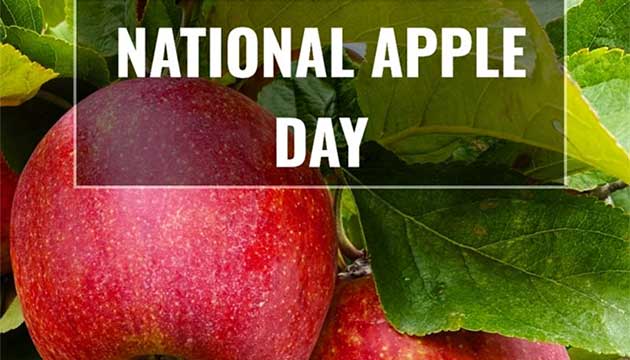
TriCal Celebrates National Apple Day
October 21st is National Apple Day, the companies of TriCal Group recognize the growers who bring healthy, high-quality apples to our tables. TriCal Group is proud to support apple producers with science-based soil and crop solutions that enhance yield, quality, and sustainability.

Foundation of a Successful Strawberry Crop in Santa Maria, CA.
Healthy soil is the foundation of a successful strawberry crop, and TriCal Inc. is here to help growers achieve it. For strawberry growers, our soil fumigation services mean healthier soil, stronger roots, and a more successful season.

From Field to Flower, Thriving Crops tell the Story.
This SweetPotato field near Ballico, CA, was first soil fumigated through a partnership with TriCal Inc. and then supported with a Landmark Irrigation system. The result is a healthy, thriving field. We are proud to support growers together with TriCal Inc. to bring fields like this to life.

Managing Soil Health is Key to Strong, Productive Crops.
Healthy soil is the foundation for strong, productive crops. Managing soil health is key to maximizing yield and quality. From balancing beneficial microbes to suppressing soil-borne diseases, the right soil fumigation treatments create the environment your plants need to thrive.
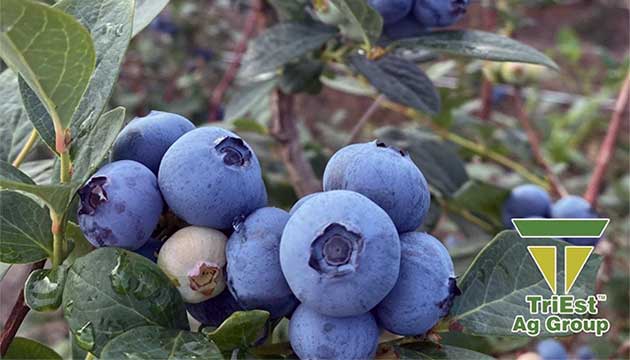
Blueberries Treated with Chloropicrin Develop Stronger
Blueberry bushes planted in soil treated with Chloropicrin develop stronger, more efficient root systems, enabling better nutrient uptake and overall plant health. Preparing the soil properly before planting or replanting sets the stage for optimal root growth and long-term productivity.
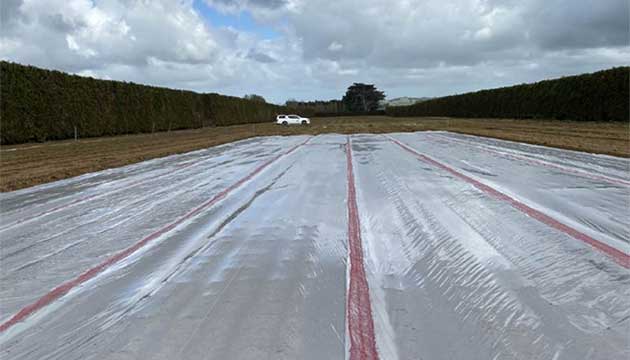
Pine Tree Nursery Trials underway in New Zealand
Trical New Zealand is currently conducting a trial in the pine tree nursery. Trical NZ is eager to see the results as part of our ongoing work to evaluate soil health solutions for forestry crops. This research helps ensure stronger, healthier trees from the very beginning.

Every Successful Season Begins Beneath the Surface
By starting early and treating the soil, the TriCal team helps Santa Maria strawberry growers build a strong foundation for success. This pre-dawn soil fumigation prepares the fields for planting and supports healthier crops, giving growers the tools they need for a bountiful harvest.

Landmark Irrigation makes sure Every Drop Counts
At Landmark Irrigation, we make sure every drop counts. Looking for surface water deliveries or updated infrastructure? We work throughout California with irrigation districts to install new or modernize existing facilities, call Landmark Irrigation today to see how we can help.

Set your Strawberry Fields up for Success with TriCal Inc.
The right soil fumigation creates the foundation for strong, healthy plants and a productive harvest. By treating your soil before planting, you can reduce pest pressure, protect against soilborne diseases, and give your berries the best chance to thrive from the very start.

Soil Health is the Foundation of Productive Farming
Trident Ag specializes in strategic soil fumigation solutions that help growers reduce disease pressure and unlock higher yield. Our team works across a variety of crop types, including vegetables, orchards, and specialty crops, to deliver tailored approaches that align with your goals.

Soil Health = Success of your Crops
Soil health plays a major role in the success of your crops. Set your fields up for a more productive season with proven fumigation strategies that boost soil conditions and increase marketable yields. What you do now determines next season’s performance.

Optimizing Soil. Maximizing Yields.
Soil fumigation plays a critical role in improving overall field health and long-term productivity. At Trident Ag, we design customized fumigation strategies tailored to your specific crop and environmental conditions. The result is increased productivity, reduced pest and disease pressure.
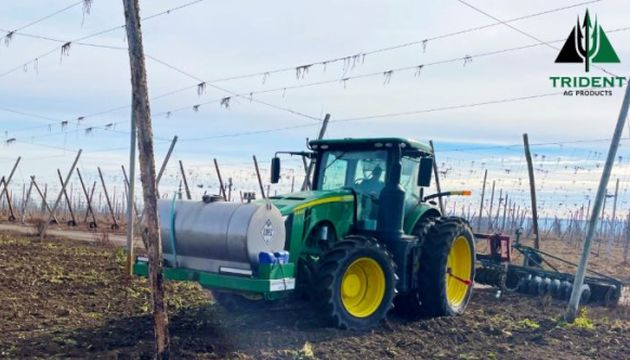
Hop Fields are Undergoing Soil Fumigation
Preparing for a healthy and productive season starts with strong soil. Here, a hop field is undergoing soil fumigation to ensure optimal growth and protection against pests and diseases.
At Trident Ag, we help growers maintain healthy soil and maximize crop potential through expert stewardship and proven solutions.

Sand, Wind and Common Scab: Lessons Learned From South Africa
During his recent trip to South Africa, Chad Hutchinson of met with growers and industry leaders, exchanging insights on soilborne disease management and sustainable farming. Chad continues to champion innovative approaches to Crop Protection and he’s sharing those insights.
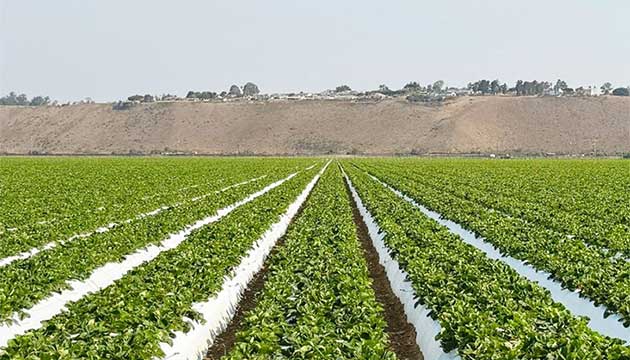
Soil Fumigation in Nipomo, CA
From spring preparation to harvest success! Earlier this year in Nipomo, TriCal Inc. performed a soil fumigation in this strawberry field. Now, just months later, the beds are thriving and ready for harvest. Strong soils lead to strong crops, and TriCal is proud to support growers every step of the way.

Foggy Morning Strawberries
Foggy mornings don’t slow us down. Here in the strawberry fields, three tractors are hard at work performing a soil fumigation to set the stage for a healthy, productive crop. At TriCal Inc., we’re committed to helping growers build strong foundations for success.
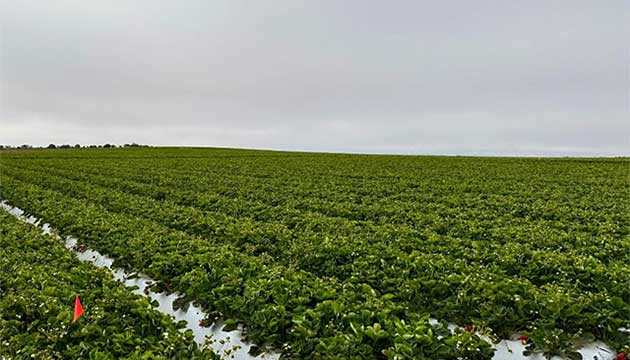
Thriving Strawberry bed in Santa Maria
This thriving strawberry bed in Santa Maria, where TriCal Inc. performed a soil fumigation in April, is right on track for a successful harvest. With healthy soil as the foundation, growers can look forward to strong crops and high-quality yields.
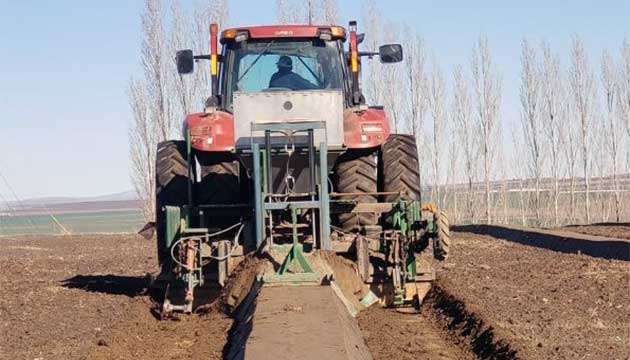
Soil Health Prepares Blueberries for a Healthy Success
Soil health is the foundation of strong, productive crops. Here in Paterson, WA, soil fumigation is underway to prepare blueberry beds for a healthy and successful season ahead. At Trident Ag, we provide the stewardship and support growers need to protect their soil and maximize yields.
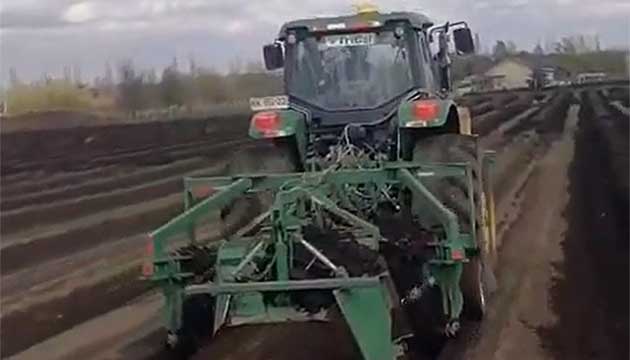
Applying Triform 35 on Blueberries
In the Los Angeles area, one of Trical’s specialized teams is applying Triform 35 on a new blueberry project. The team also reprofiles the planting ridges, which not only leaves the optimal ground to receive the plants; but favors the sealing of the product in the soil, ensuring effectiveness.

2025 Storkan-Hanes-McCaslin Research Foundation Award!
TriCal Inc. is proud to recognize recipients of the 2025 Storkan-Hanes-McCaslin Research Foundation Award! Please join us in congratulating Roshni Panwala and Alexander Fast from the University of Florida on their outstanding achievements.
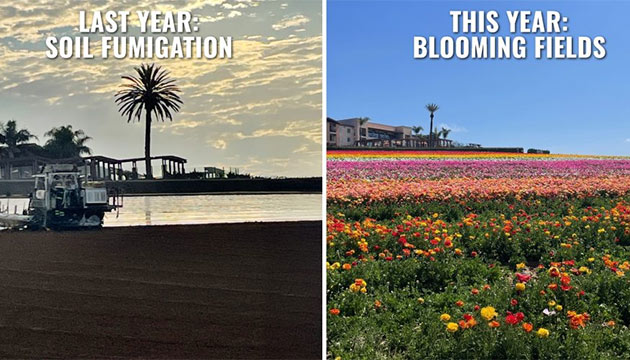
Protecting the Roots of Success: How TriCal Inc. Helps Keep the Carlsbad Flower Fields Blooming
North San Diego County was once the flower capital of the U.S., with over 1,000 acres dedicated to field-grown and greenhouse cut flowers. Today, much of that land has given way to development, but one bloom still stands strong: ranunculus.
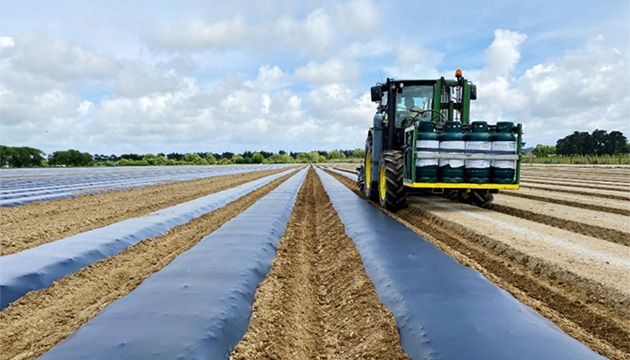
Soil Fumigation in Nelson Zone, South Island
This watermelon block in Nelson Zone, South Island, has been successfully soil fumigated for another season of growing for this valued customer. Each season, they trust TriCal NZ to help ensure the best possible start for their crops.
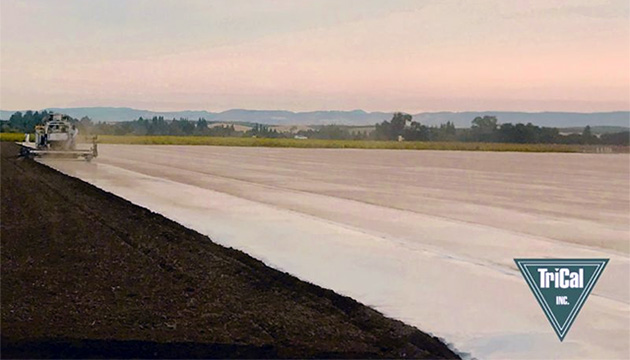
Trical Works Alongside Growers to Improve Soil Conditions
At TriCal Inc., we provide soil fumigation services that target soilborne pests and diseases, giving your crops the best possible start and protecting the long-term productivity of your fields by improving soil conditions, boosting plant health, and increasing yields.
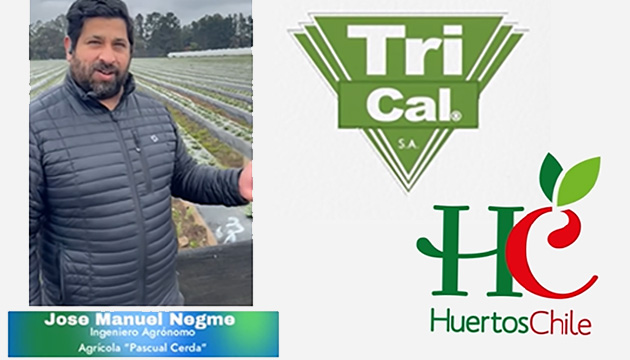
Agricultural Engineer Highlights Results of TriCal Products
Trical S.A. is pleased to share the experience of José Manuel Negme, Agricultural Engineer at Agrícola Pascual Cerda. He highlights the excellent results in strawberry products. Treatments reduced soil diseases caused by fungi, control insects, weeds and nematodes, significantly improving soil health.

A Strong Start Begins Early
This sunrise marks the completion of another successful soil fumigation application by the dedicated team at TriCal Inc. Trical is proud to help growers build a healthy foundation for their crops with precision, care, and a focus on long-term soil health.
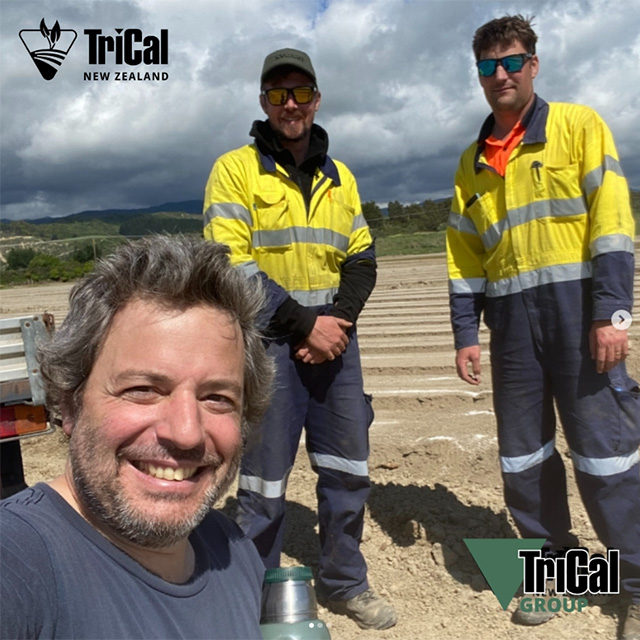
TriCal NZ Watermelon Field Fumigation
The TriCal NZ fumigation team took a second from their hard work in Levin, North Island to grab a quick selfie.
"Our main target was Fusarium sp., but we also tackled a range of other soilborne pests using Pic-Plus, achieving outstanding results thanks to ideal moisture and temperature conditions."
Click on your favorite social media link to view pictures of their amazing work.

Year 2 of Trial Exploring Strike in Wheat
This wheat field is part of our year 2 trial exploring the residual benefits of the Strike™ product line. Trident is studying how soil fumigation doesn’t just benefit your main crop, but how it can positively impact the rotational crops that follow. Healthier soil can mean healthier fields.
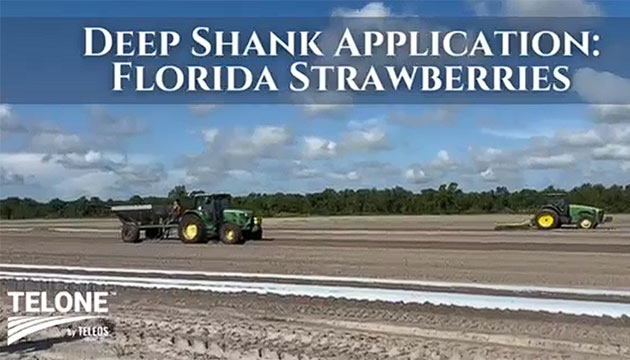
Deep-Shank Application of TELONE™ by Teleos
Our Southeast rep Chris Hays, was recently in Plant City, FL, for a deep-shank application of TELONE™ by Teleos soil fumigant. Deep-shank applications help get TELONE™ further in the ground, below the hard pan, to control the nematodes where they are.
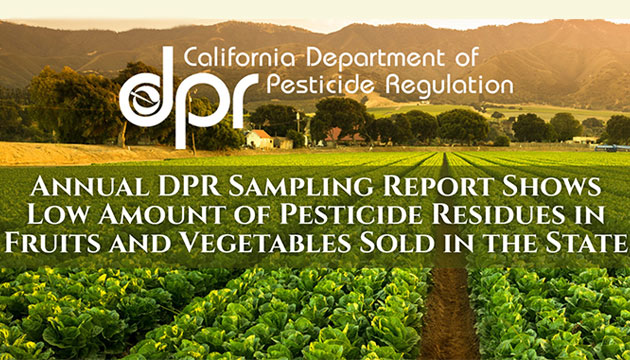
California Department of Pesticide Regulation Report
The California Department of Pesticide Regulation (CA DPR) recently released its annual produce monitoring report, which found that about 97% of fruits and vegetables sold in California had no detectable pesticide residues or residues below federal health-protective limits.
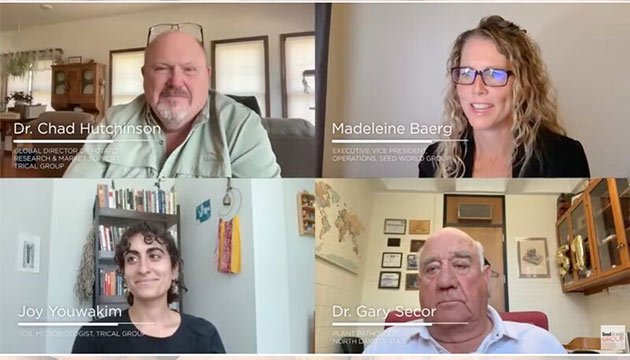
Trical Employees Sit on Expert Panel on Black Dot in Potatoes
Black dot is spreading in potato fields — and farmers are right to be concerned. While not a new disease, black dot is becoming tougher to manage, stealing yield, blemishing tubers, and reducing marketability. That’s why Spud Smart brought together three experts for the Soil Under Siege panel.
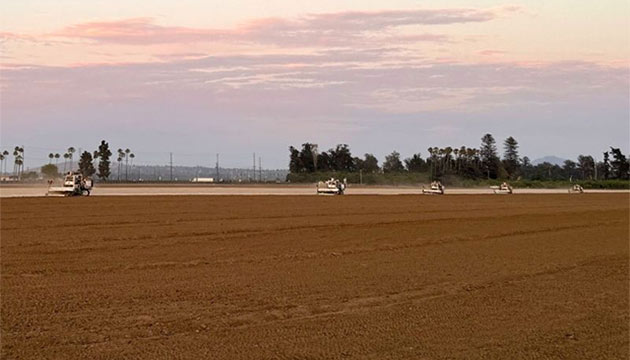
Strong Strawberry Crop Starts with a Solid Foundation
In Oxnard, CA, our team at TriCal Inc. is proud to support strawberry growers with high-quality soil fumigation services designed for long-term success. We know that getting it right from the start matters, which is why we tailor every treatment to meet your specific field needs.

Vibrant Corn Field in Low-Rate Chloropicrin Trial
At Trident Ag, we're putting research into exploring how soil fumigation can benefit not just one crop, but your entire rotation. TriEst Ag has already seen great success using this approach in watermelon, green beans, and other crop production, and now we're taking it to sweet corn too.
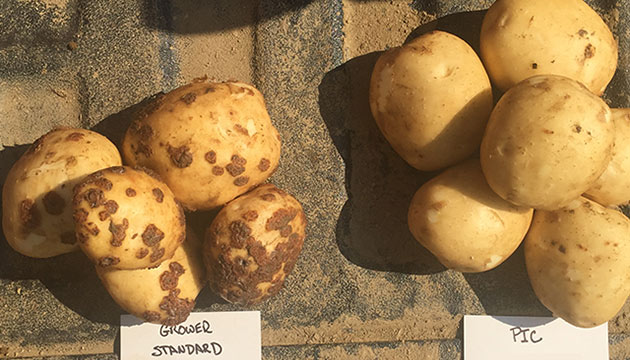
Chloropicrin Fumigation and Biostimulants: A Promising Duo against Rhizoctonia Canker in Potatoes
A study from Frontiers in Soil Science has unveiled promising strategies to enhance potato yields and mitigate Rhizoctonia canker. Research from the IRDA and Université Laval in Québec chloropicrin soil fumigation as a biostimulant on potatoes.
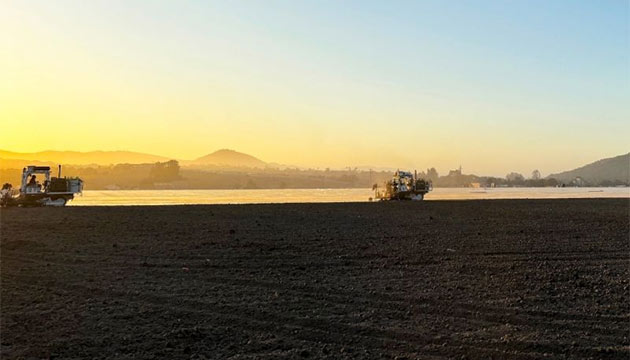
Precision Soil Fumigation for Long-Term Orchard Health
This broadacre, tarped fumigation project is being carried out using Pic-Plus, a proven soil fumigant. These blocks are being prepared for apple planting to manage the soil-borne pests responsible for apple replant disease and manage a healthier soil environment.
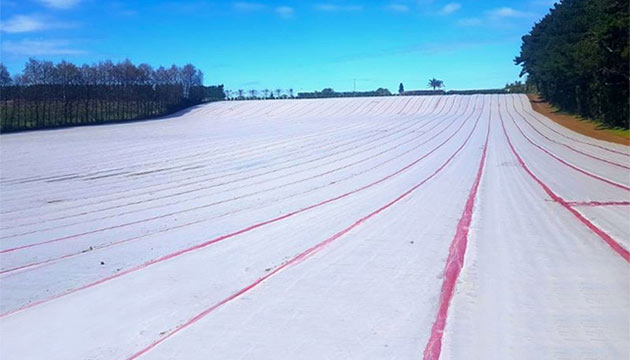
Efficient Soil Fumigation in Action
This photo showcases a clean and well-executed broadacre tarped fumigation for a strawberry nursery, an excellent example of best practice in field preparation. TriCal NZ specializes in soil fumigation solutions that target soilborne diseases, creating optimal growing conditions from the ground up.
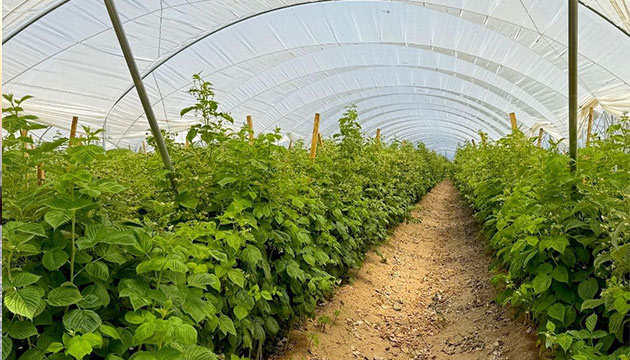
Thriving Raspberry Field in Los Alamos
This thriving raspberry field in Los Alamos was soil fumigated last year. By managing soilborne pathogens, we helped set this block up for a healthier, more productive season. Strong roots, vigorous growth, and clean fields all start below the surface.
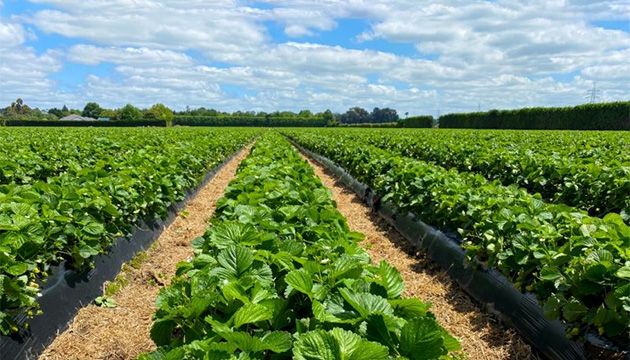
TriCal New Zealand Support Strawberry Growers
TriCal New Zealand is proud to support strawberry growers with advanced soil fumigation solutions that target soilborne pests and diseases, laying the foundation for healthy, high-performing crops.
Trical's focus on improving soil health and encouraging sustainable practices helps growers achieve consistent, top-quality yields season after season.
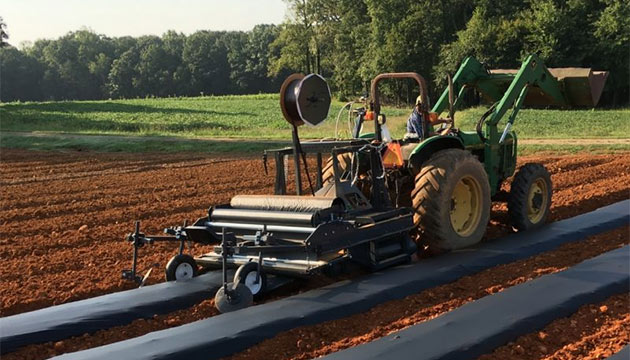
Soil Health is the Foundation of High-Quality Strawberry Crop
Soil health is the foundation of a productive and high-quality strawberry crop. The condition of your soil plays a critical role in plant performance and yield potential. At TriEst Ag Group, we offer proven solutions to help optimize soil health and support a successful growing season.
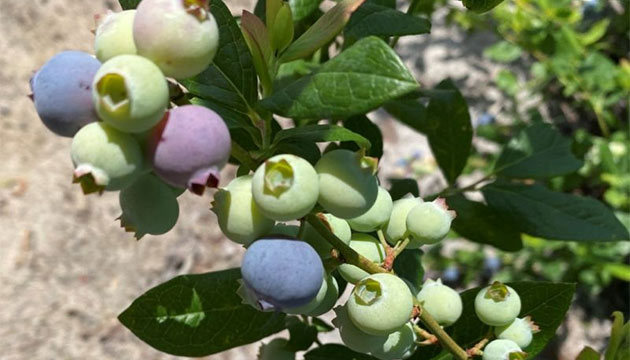
Enhance Your Blueberry Fields
Enhance the performance and protection of your blueberry fields with expertly designed irrigation and frost protection systems. Whether you're upgrading an existing setup or planning a new installation, our team at TriEst Ag Group will work with you to develop a customized solution tailored to your operation's needs. Ensure your crop has the support it needs, season after season.
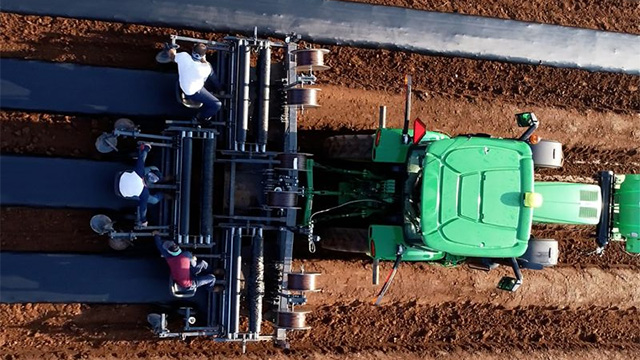
Soil Health is Important at Triest Ag
Soil health plays a major role in the success of your strawberry crop. Set your fields up for a more productive season with proven fumigation strategies that boost soil conditions and increase marketable yields. What you do now determines next season’s performance.
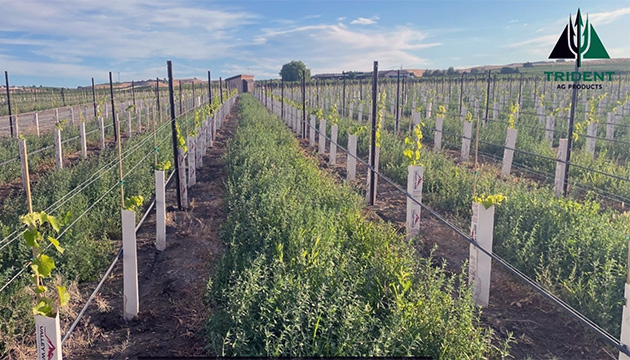
Healthy Vines Start Below the Surface
At Trident Agricultural Products, we specialize in soil fumigation for a wide variety of crops—including premium wine grapes. For over 30 years, we’ve helped growers in the Yakima Valley build strong, healthy vineyard foundations using trusted solutions like Pic-Clor 35.
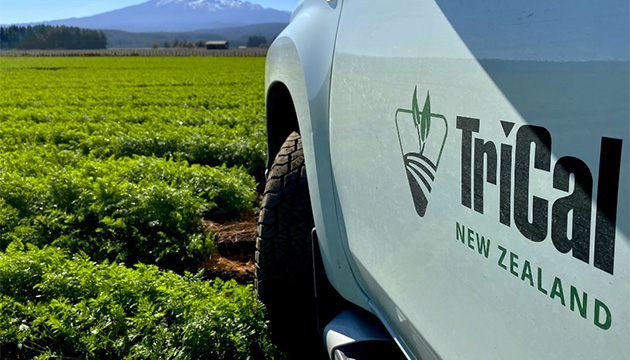
On the Road with TriCal NZ
If you have encountered one of our TriCal NZ trucks in the field, it indicates our dedicated efforts to support growers nationwide in enhancing and safeguarding their crops. Trical NZ offers a range of soil fumigation solutions, ensuring consistent results that growers can rely on throughout the seasons.
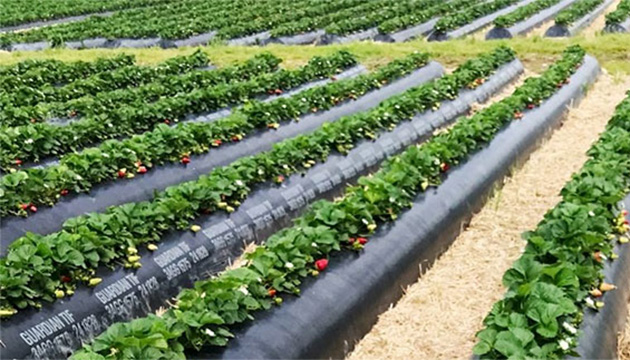
Successful Strawberry Cultivation with TriCal NZ
Trical NZ is excited to showcase a flourishing strawberry field that highlights the impact of our expert soil fumigation services. State-of-the-art soil fumigation methods have created an ideal soil environment that promotes healthy plant growth, effectively reducing the risk of soil-borne pests and diseases while boosting overall crop yield. The vibrant health of these strawberries signals a bountiful harvest ahead.
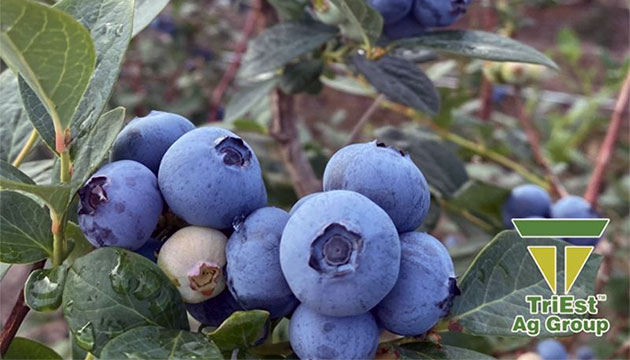
Blueberry bushes planted with Chloropicrin better roots
Blueberry bushes planted in soil treated with Chloropicrin develop stronger, efficient root systems, enabling better nutrient uptake and overall plant health. Preparing the soil before planting or replanting sets the stage for optimal root growth and long-term productivity.
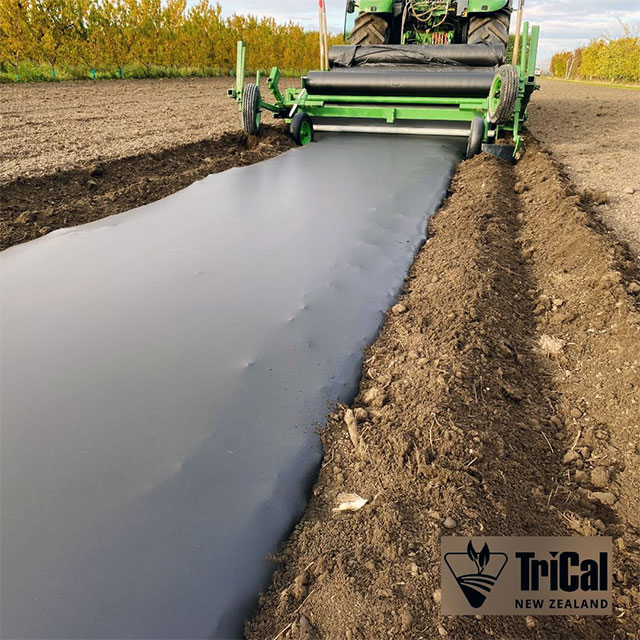
Exciting Peaches Trial Underway
TriCal New Zealand is thrilled to give you an exclusive peek into our latest peach trial, featuring Pic-Plus as the soil fumigant. This initiative aims to enhance soil health and boost crop performance, and early indicators are looking very encouraging!
At TriCal NZ, we continuously strive to innovate in soil fumigation, assisting growers like you in cultivating healthier and more productive orchards.
We look forward to sharing the complete results with you soon — stay tuned!

Supporting Healthy Strawberry Crops
The team and TrCal Inc. is hard at work supporting healthy strawberry crops through precise and effective soil fumigation. This image shows how TriCal, Inc. helps growers prepare for strong, productive seasons. Trical is proud to partner with farmers to promote healthier soils and higher yields.
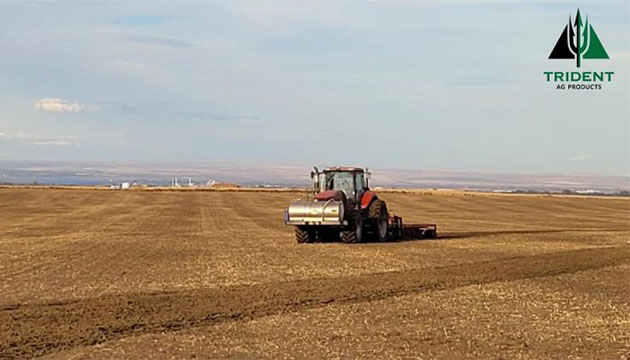
Soil Fumigation Services from Trident Ag
Trident Ag Group enhances your crop protection and optimizes yields with customized soil fumigation services from Trident Ag. Our solutions are specifically designed to address your unique agricultural conditions and crop requirements.
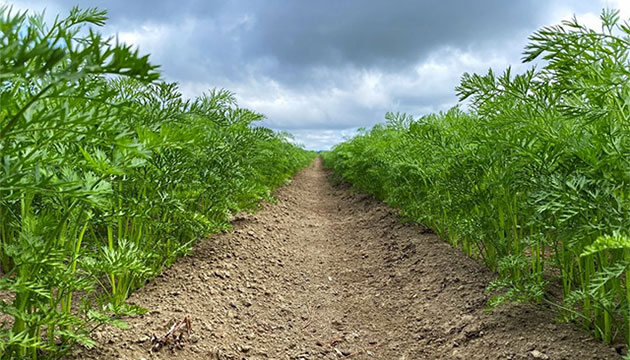
Healthy Soil, Thriving Carrots Treated with Tri-Form 60
Trical New Zealand is pleased to showcase the impressive results achieved in this field treated with Tri-Form 60. The carrots exhibit vibrant coloration, uniformity, and vitality, demonstrating the effectiveness of our product.
By ensuring optimal soil preparation, crops can achieve their maximum potential.
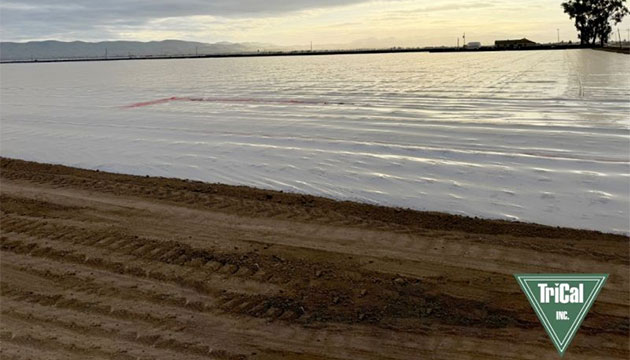
Preparing for a Successful Strawberry Season
This grower in Santa Maria is already laying the groundwork for a productive strawberry harvest by prioritizing soil preparation. Partner with TriCal, Inc. and a TriCal Pest Control Advisor (PCA) to benefit from decades of experience in crop protection and receive recommendations for your field.
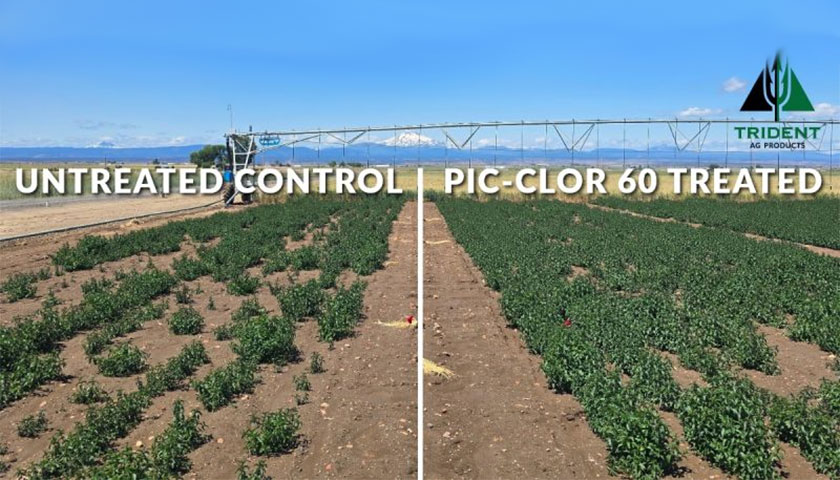
Oregon State University Mint Trial
Take a look at this detailed side-by-side comparison from a Trident Ag recent mint trial conducted at Oregon State University’s research station in Madras, OR. These findings underscore the effectiveness of soil fumigation in enhancing mint crop performance and maximizing yield potential.
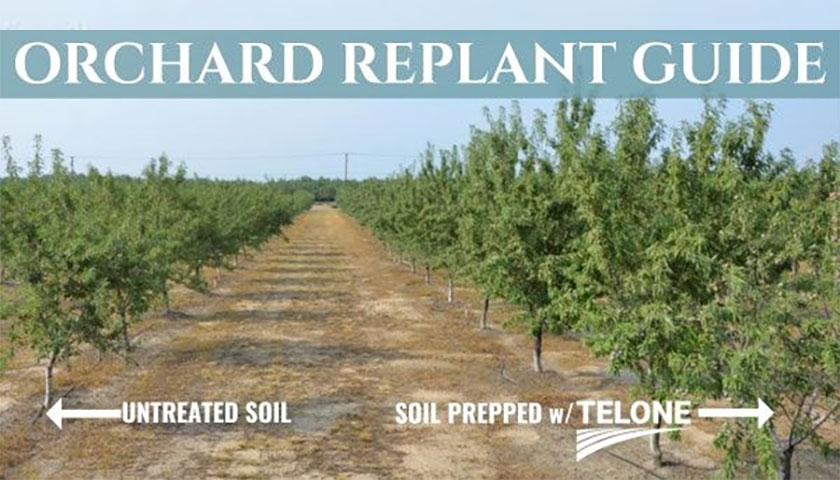
Orchard Replant Guide
Prepping the soil with TELONE™ creates a zone of protection so plant roots can establish with more efficient uptake of water and nutrients and less need for other inputs. The result is healthier trees with increased trunk diameters, larger canopies, and improved quality and yields.
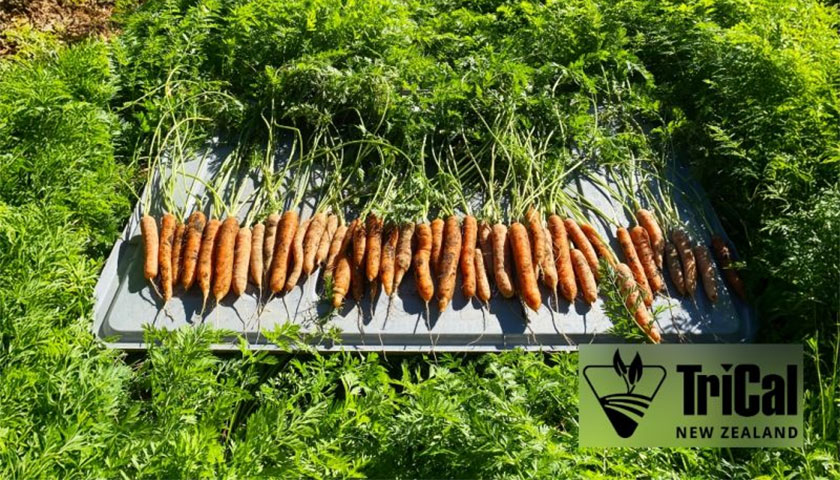
Carrot Fields in New Zealand with Tri-Form 60
A strong start paves the way for a fruitful harvest. This carrot field in New Zealand was treated with Tri-Form 60 in December to effectively manage nematodes and soil-borne fungi. Our goal is to improve soil quality for outstanding crop yields.
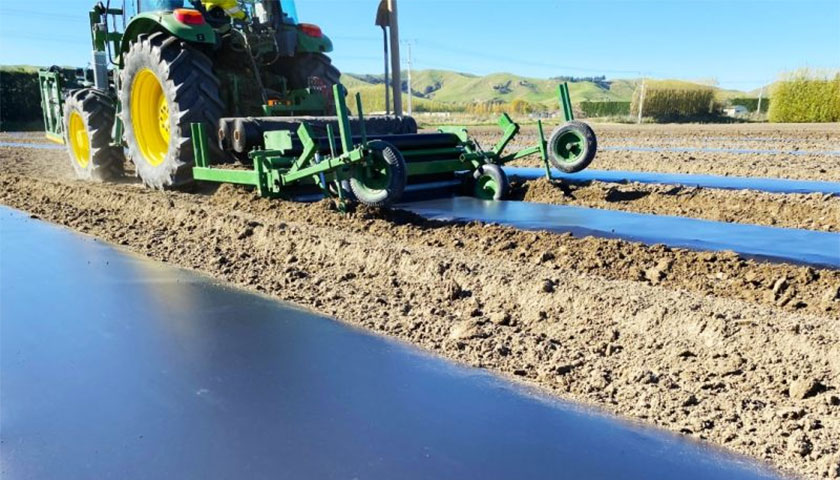
Pic-Plus Soil Fumigation Process is Underway.
This New Zealand site has been treated with Pic-Plus to effectively target soil-borne pathogens associated with apple replant disease. Soil fumigation is essential for ensuring optimal growth conditions for the best possible start.

Sustainable Soil Health Solutions for Stronger Onion Crops
On this National Onion Day, Triest Ag recognizes the growers who work tirelessly to produce one of the world’s most essential crops. Triest is proud to support onion producers with sustainable soil health solutions for stronger crops and improved yields.
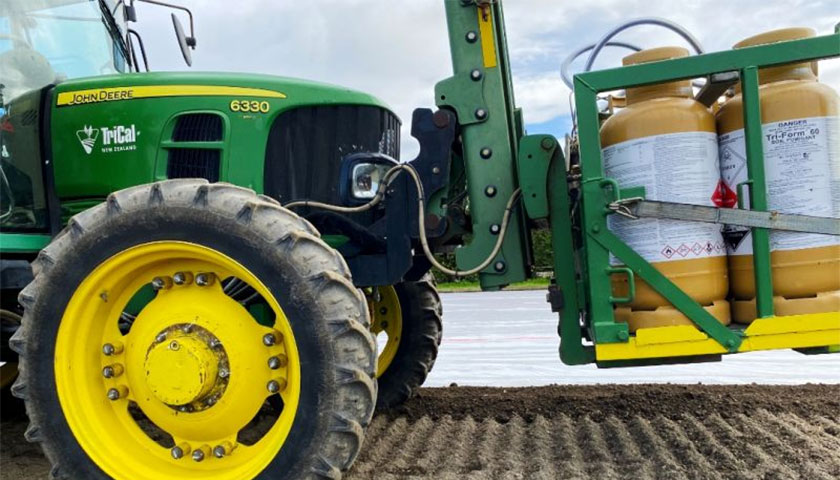
It's Time to Schedule your Soil Treatment in New Zealand
In New Zealand, now is the time to schedule your soil treatment - early preparation leads to healthier productive crops. Whether you're prepping for planting or planning ahead for next season, soil treatment plays a vital role in supporting crop performance from start to finish.

New Research - Ready for Sweet Corn Trial
We’re excited to share the latest update from our agricultural research initiative! Our tractor is fully equipped and ready for soil fumigation—an essential step led by Dr. Maxwell Handiseni—as we prepare for our upcoming sweet corn trial.

Tobacco Caravan Tour
Earlier this week our southeast TELONE™ Specialist at Teleos Chris Hays participated in the GA-FL Tobacco Caravan Tour. The group explored 11 tobacco farms and Extension on-farm research plots in Georgia’s tobacco production regions, including stops in Hazlehurst and Metter, Georgia.
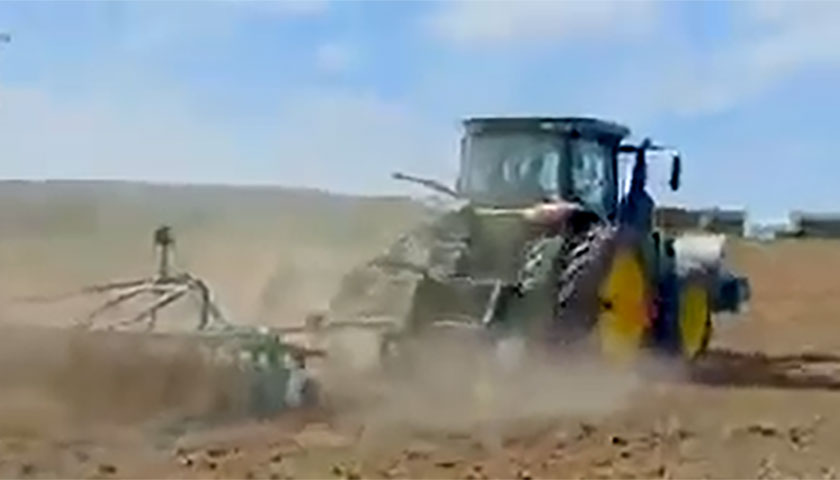
Dr. Maxwell Handiseni is Overseeing Fumigation with Strike
Dr. Maxwell Handiseni is currently overseeing a soil fumigation process as part of an upcoming potato trial utilizing the Strike™ product. This trial aims to rigorously assess soil health and evaluate crop performance outcomes.
Soil fumigation serves as an essential initial measure for managing soilborne pests, thereby establishing optimal conditions for robust plant growth. We look forward to sharing the results of this trial with you.
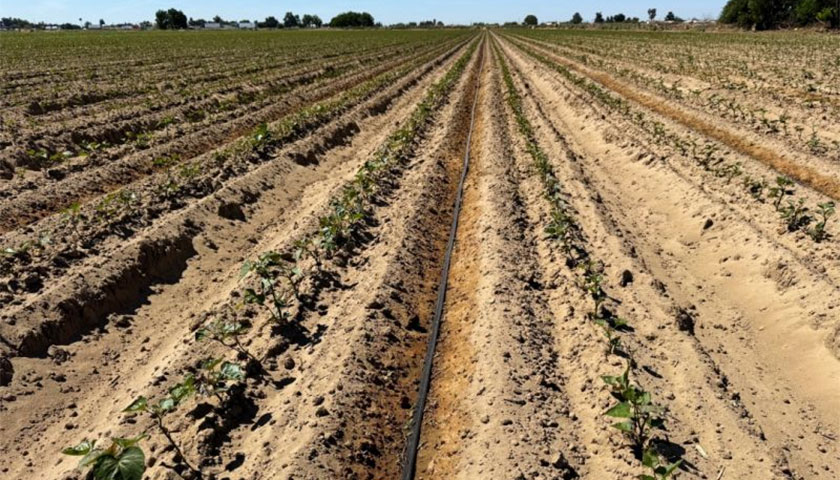
Fumigation and Irrigation for a Successful Season in Turlock
This field in Turlock began with soil fumigation by TriCal Inc. and benefits from efficient, uniform irrigation supporting sweet potatos. We help growers make the most of every drop, conserving water while promoting healthy crop development.

One Easy Change Can Double Soil’s “Good Guys”
We’ve always known Strike works. Season after season, growers tell us what they see in their fields: healthier plants, better root systems, and stronger yields. What’s happening beneath the surface? Not just in terms of pest control, but in the living biology of the soil itself?
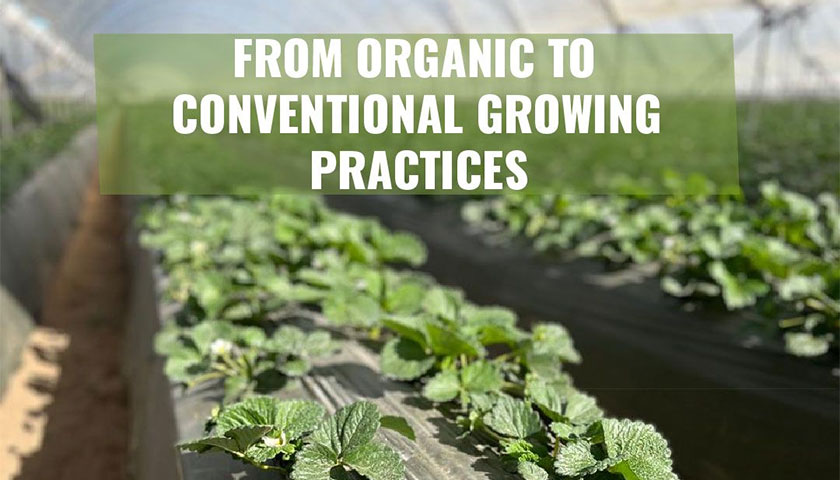
Baja California Adapt to Changing Production Practices
TriCal de Baja is helping strawberry growers in Baja California adapt to changing production practices. As many of Baja California’s commercial strawberry producers are transitioning from organic systems to more conventional growing practices.
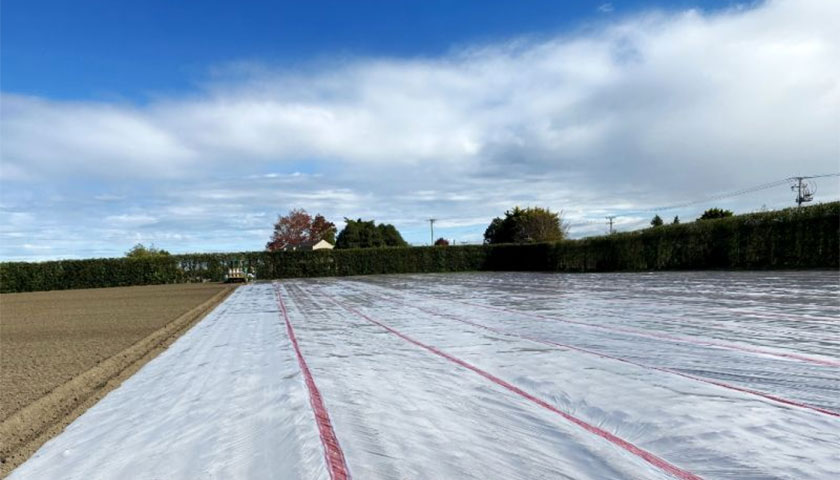
Preparing the Soil for Future Apple Trees
This week, our team has been diligently conducting both broadcast and tarped soil fumigations utilizing Pic-Plus. These treatments are being implemented in preparation for upcoming apple planting, specifically aimed at managing soil-borne pests linked to apple replant disease.
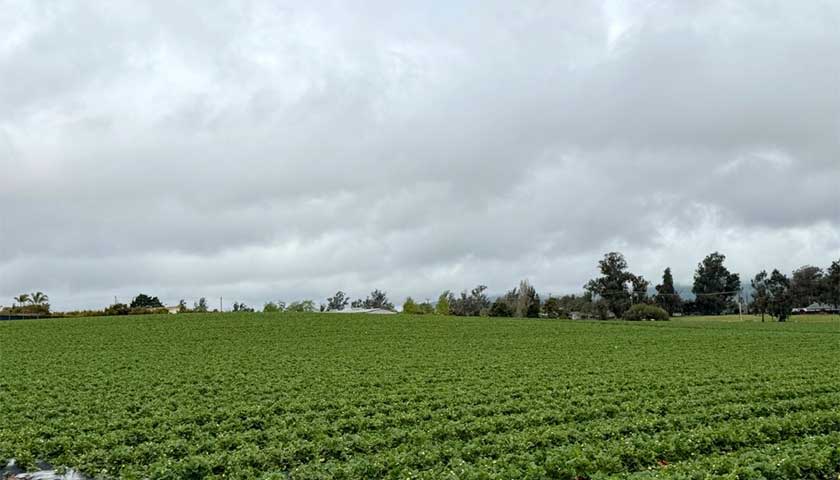
California Strawberry Fields Approaching Harvest
This strawberry field underwent soil fumigation by Trical last fall, resulting in robust, healthy plants that are now approaching harvest. The strong foundation below the surface has significantly contributed to this success.

Potato Planting Season is Here!
It is potato planting season in the Northwest!
Trident is currently assessing potato planting activities in this field. One of the most effective ways to manage soil-borne diseases is by using a trusted soil fumigant. Strike™ Chloropicrin fumigants deliver proven results.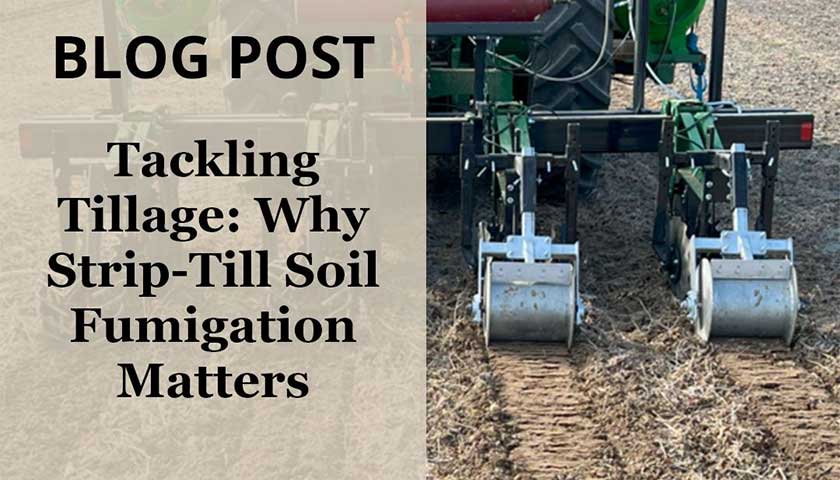
Tackling Tillage: Why Strip-Till Soil Fumigation Matters
TriEst Ag Group’s latest blog post by Agronomist Josh Mays explores a key question facing growers today: Can you reduce tillage without sacrificing the effectiveness of fumigation? After three years of field collaboration and equipment development TriEst Ag Group has answers. R

Enhance Strawberry Plant Health and Boost Crop Resilience
TriCal Inc. offers soil fumigation services designed to enhance strawberry plant health and boost crop resilience, leading to optimal berry yields. Check out our soil fumigation process in a strawberry field located in Santa Maria.
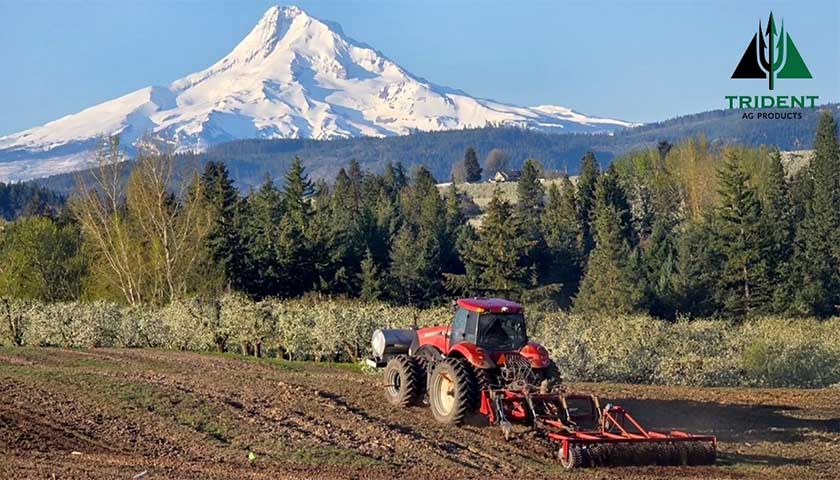
Trident Ag Optimizing Soil Conditions for a Fruitful Season.
Preparing your soil adequately before planting is key to establishing a robust foundation for healthy, resilient plants and ensuring consistent yields each year. Trident Ag recognizes the significance of optimizing soil conditions to set your operation up for a fruitful season.
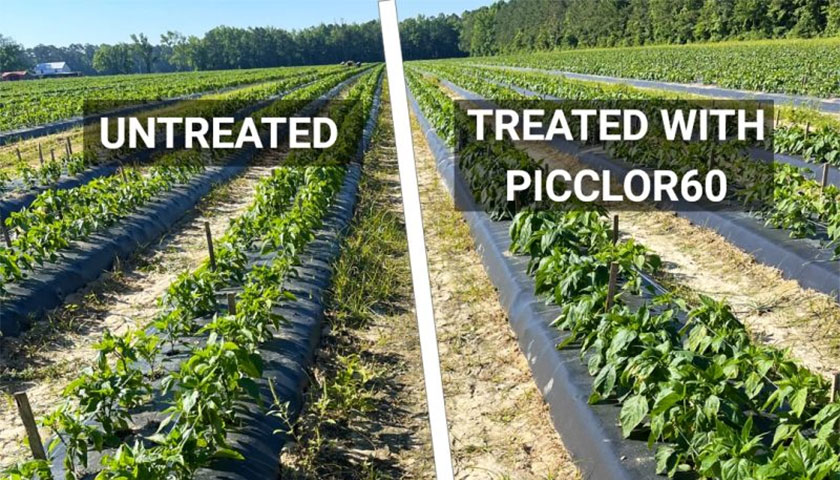
N.C. Pepper Grower Sees the Power of Chloropicrin
A North Carolina grower is seeing the power of chloropicrin in his field of bell peppers first hand this year. The left side is untreated and the right side was treated before planting with PicClor60 to give the future peppers a healthy soil foundation for a more vigorous start and improved plant yields.
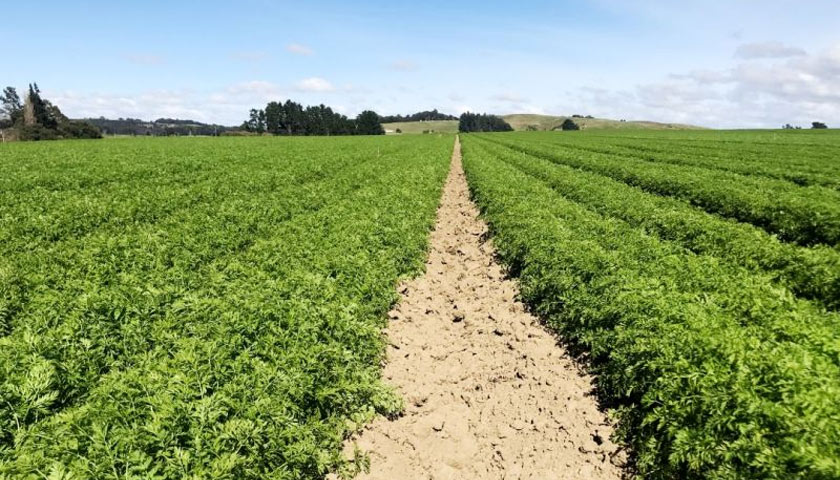
Tri-Form 60 Leading to Robust Carrot Growth
Trical New Zealand has successfully fumigated this block with Tri-Form 60, resulting in robust carrot growth and optimal soil conditions. Tri-Form 60 effectively targets soilborne pests and diseases, fostering an ideal environment for crops to flourish from the outset.
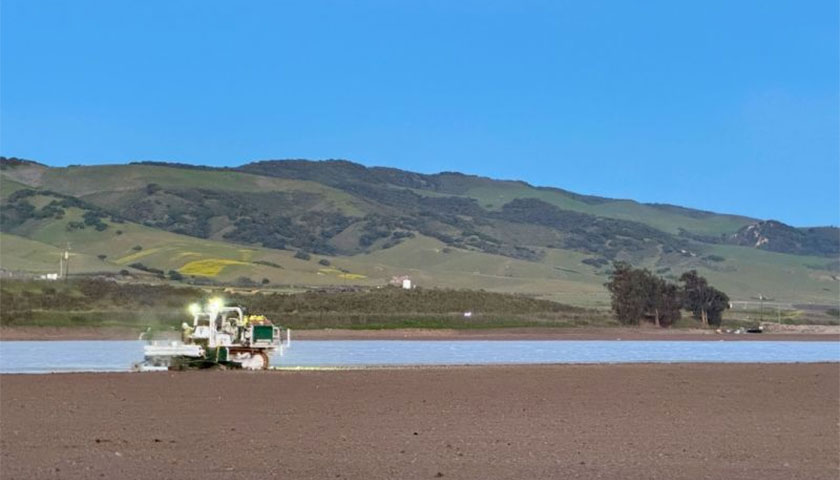
Upcoming Strawberry Season in Santa Maria
Preparing for the upcoming strawberry season in Santa Maria, California, TriCal, Inc. is committed to supporting local growers through our expert soil fumigation services. Our solutions effectively manage soilborne pests and diseases, ensuring optimal conditions for thriving strawberry crops.
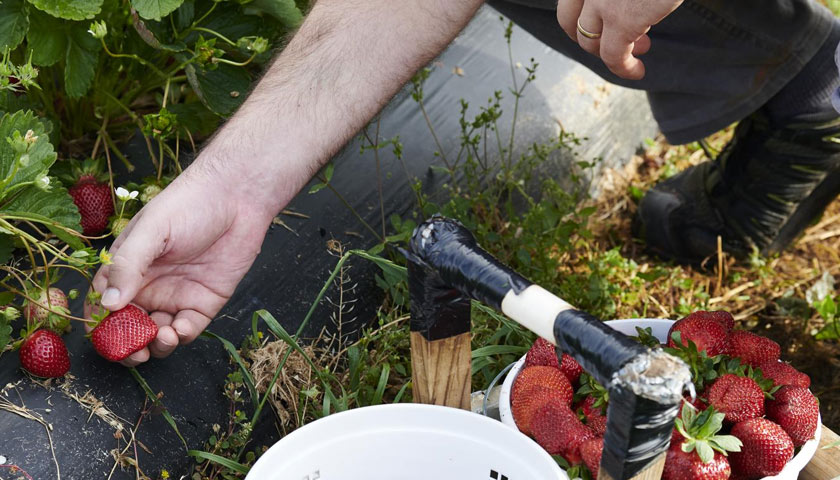
Chris Hays at the Florida Strawberry Growers Association
Teleos TELONE™ Specialist at Teleos Chris Hays, is at the Florida Strawberry Growers Association's 43 Annual Agritech Event. Teleos is a sponsor of the event. Florida strawberry growers know that nothing is more effective against destructive nematodes than TELONE™.
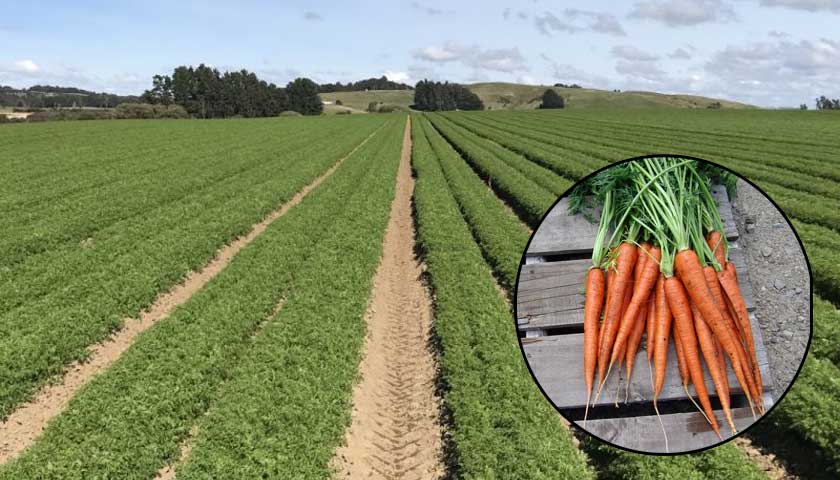
Promoting Healthy Carrot Growth through Soil Treatment
These robust carrots are flourishing in a block treated with Tri-Form 60, an effective soil fumigant designed to manage harmful pests and pathogens prior to planting. This treatment leads to improved soil health, enhanced crop strength, and consistent growth.
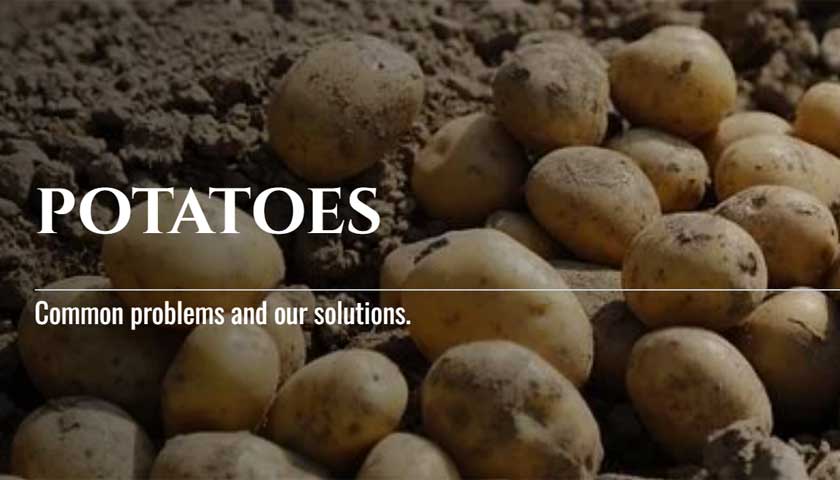
Teleos Ag's New Potato-Specific Crop Page
Using TELONE™ by Teleos soil fumigant to prep the soil ahead of planting creates a zone of protection, allowing delicate roots to establish into healthy potatoes. Using TELONE™ in combination with chloropicrin also helps suppress many soilborne diseases that affect potatoes, including verticillium, common scab, rhizoctonia, fusarium, pythium, and more!
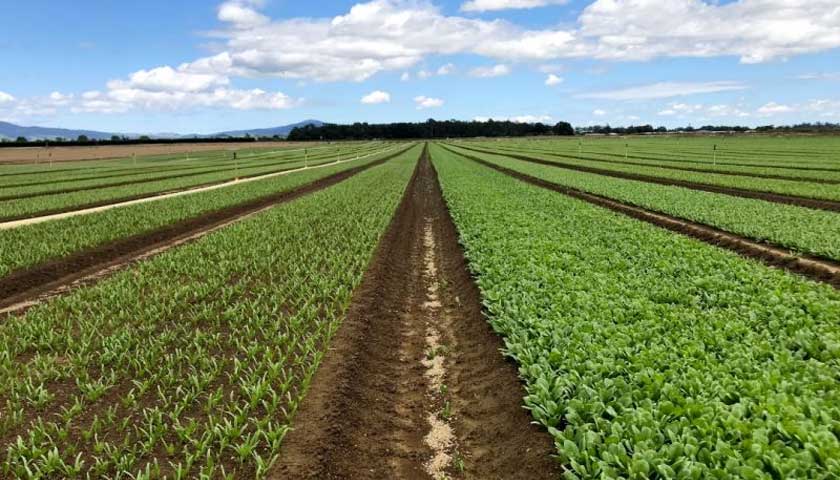
BB Spinach Field with Tri-Form 60
This BB Spinach field illustrates the significant benefits of soil fumigation using Tri-Form 60. The right side of the field was planted earlier, while the left side was planted a few weeks later. However, due to the superior soil health achieved through TriCal NZ's soil fumigation treatment, the later planting on the left is rapidly catching up in growth and vigor.

29th Season of Fumigation at Shastina Ranch
As Trical Inc. commences thier 29th season of soil fumigation at Shastina Ranch in Siskiyou County, we are proud to support a leading strawberry nursery. This enduring partnership underscores our commitment to promoting healthy and productive soil throughout the seasons.

Eagle Soars above Hood River Valley Orchards
It is a beautiful day in the Hood River Valley. Here's a stunning shot of soil fumigation in progress for fruit trees—captured perfectly by Ryan. Look closely and you’ll spot an eagle soaring above the tractor, with the mountain standing proud in the background. Nature and agriculture in perfect harmony.
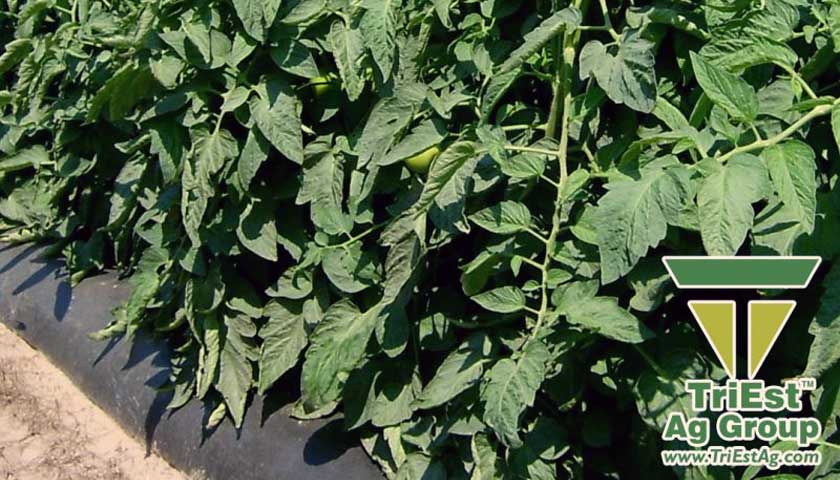
TriEst Soil Treatments Contribute to Soil Health.
Give your plants their best start with increased soil health. TriEst Ag Group's soil treatments contribute to soil health by both suppressing soil borne diseases and supporting the growth of native organisms that are beneficial to soil and plant growth.
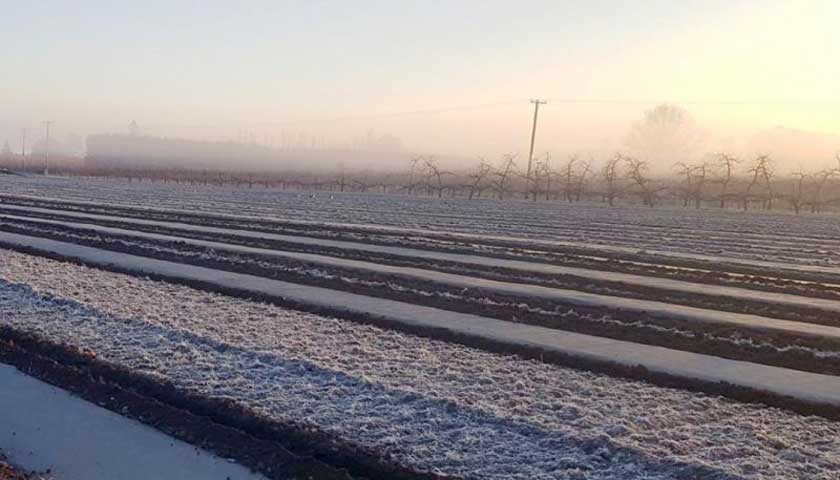
Boosting Soil Health for Thriving Orchards
Implementing Pic-Plus plasticulture soil fumigation is a proven strategy to combat the pathogens linked to apple replant disease. By taking proactive measures to treat the soil before planting, orchardists can create ideal conditions for young trees, promoting sustainable orchard health.
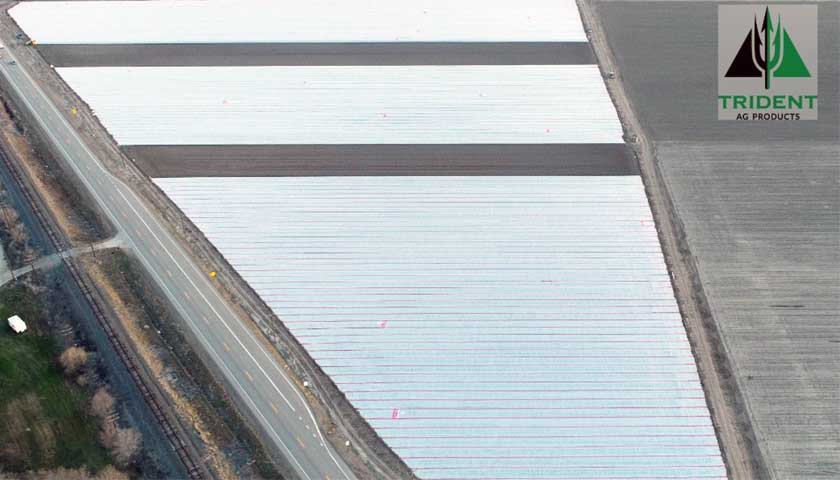
A Fresh Look from Above: Laying the Groundwork for Success
Another incredible aerial view from a strawberry nursery fields projects, where soil fumigation is currently underway. This process is a key part of preparing the field—helping to create clean, healthy soil conditions before planting begins.
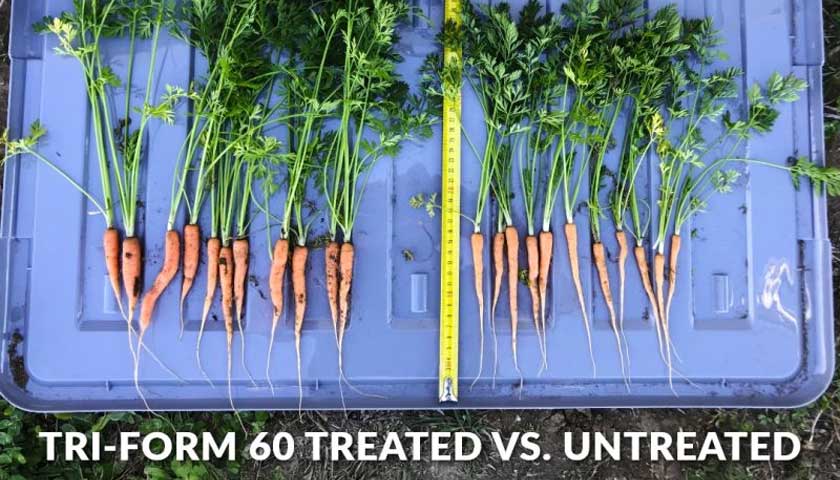
Let the Carrots Speak for Themselves
Left – Treated with Tri-Form 60 | Right – Untreated
The difference in growth is clear. Tri-Form 60 helps manage soil-borne pests and diseases, giving crops a healthier environment to thrive. Improved production of carrots is just one example of what effective soil fumigation can achieve.
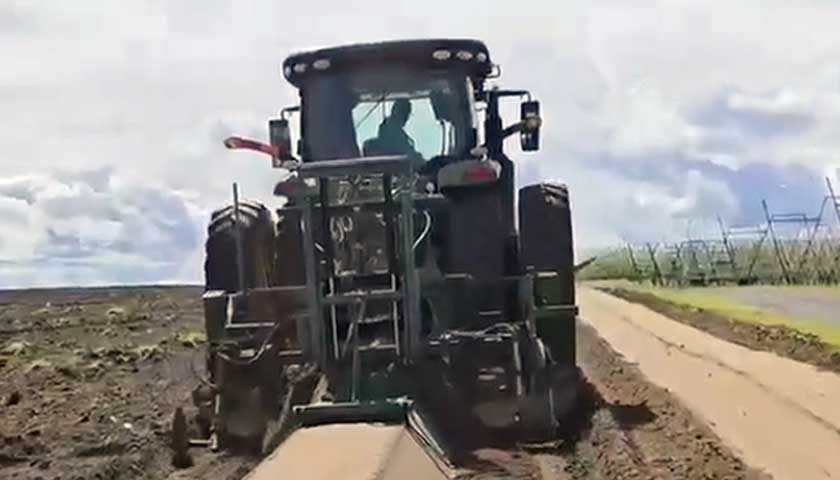
Soil Fumigation for a Healthier Blueberry Future
Check out this incredible footage from one of our latest blueberry field projects, highlighting a vital phase in crop preparation—soil fumigation.

Soil Fumigation Project for Raspberry crops in Santa Maria
Trical Inc. completed a soil fumigation project for raspberry crops in Santa Maria. TriCal's mission is to assist growers in preparing their soil before planting for fostering robust root development, effective disease management, and ultimately achieving higher crop yields.
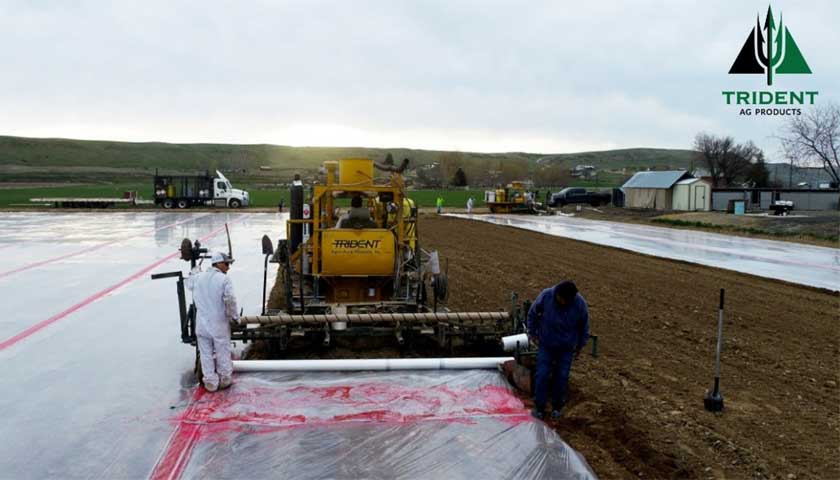
Strawberry Nursery Preparation Underway
Trident Ag is pleased to share aerial visuals from our current strawberry nursery project. These images showcase the precision and meticulous planning involved in our soil fumigation process, an essential step in establishing a robust foundation for high-yield strawberry plants.
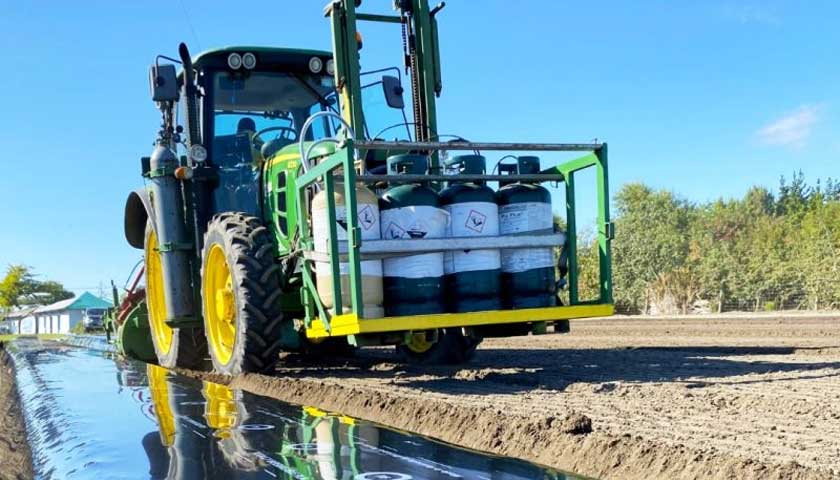
Strawberry Season Begins with Quality Soil Preparation
At TriCal NZ, we are dedicated to supporting growers through the use of Pic Plus soil fumigation—a reliable solution for managing soil-borne pathogens and enhancing soil health. Pic Plus provides strawberries with the optimal environment for vigorous growth and increased yields.
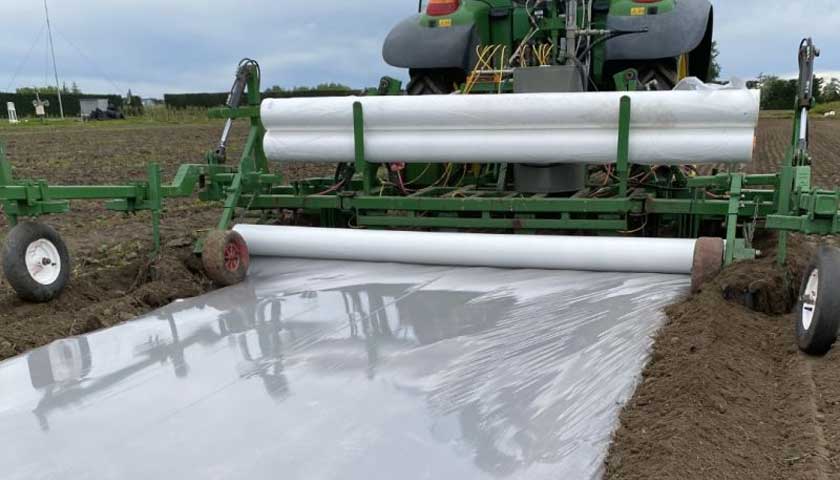
Securing the Future of New Zealand Orchards
TriCal NZ, is dedicated to helping New Zealand growers tackle soil challenges and maximize crop success. Apple Replant Disease is a soil-borne condition that can hinder the growth and productivity of young trees. Trical takes pride in offering soil fumigation solutions across New Zealand

Onions in the Ground & Set for Success
Trident is pleased to announce that this onion field is primed for optimal growth following soil fumigation with Strike. A clean, disease-free soil foundation is essential for fostering healthier root systems, stronger plants, and ultimately, superior yields at harvest.

A Thriving Strawberry Crop Starts with Soil Fumigation
In Santa Maria, soil fumigation plays a critical role in preparing fields for planting. By reducing soil-borne pests, and diseases, soil fumigation helps create a clean, healthy growing environment, allowing plants to establish strong root systems and produce high-quality fruit.
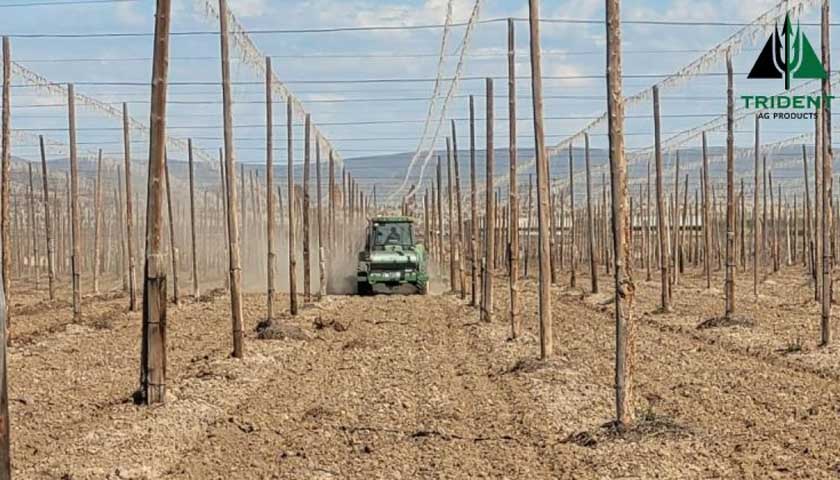
Healthy Soil is Essential for a Productive Hop Yard
At Trident Ag, we recognize that healthy soil is essential for a productive hop yard. Soil-borne pests and diseases can compromise plant vigor, ultimately diminishing yield and quality. Our targeted soil fumigation services are designed for optimal growing conditions for your hops.

Strawberry Field Undergoing Soil Fumigation
Here’s a look at a strawberry field in Santa Maria undergoing soil fumigation, an essential step in ensuring healthy, productive crops. By creating a clean soil environment, soil fumigation helps manage soil-borne pests, and diseases—giving growers the best start for a successful season.
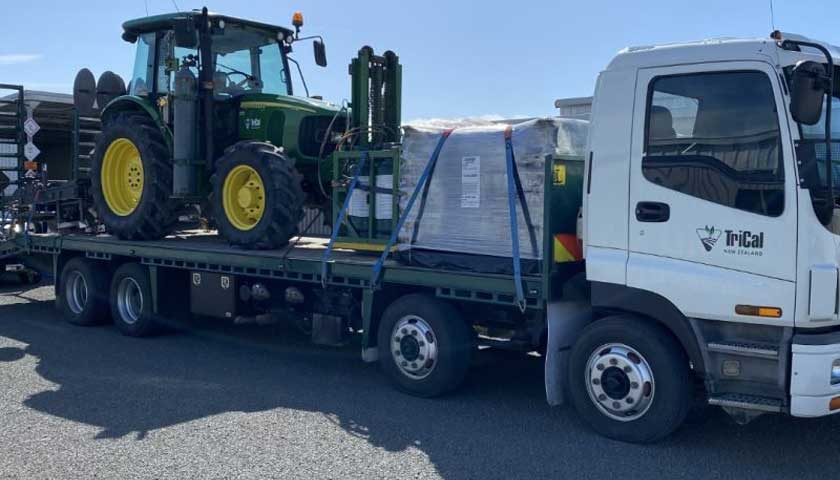
Fully Equipped & Prepared for Soil Fumigation
Trical New Zealand is ready to undertake another soil fumigation job, leveraging our expertise and reliable solutions to assist our growers in protecting their soil, managing pests effectively, and fostering the conditions necessary for healthier, high-yielding crops.

A Spectacular Rainbow Over Healthy Soil and Thriving Strawberries
Discover the impressive sight of a rainbow illuminating a strawberry field utilizing plasticulture. At TriCal NZ. By integrating soil fumigation with plasticulture, farmers can effectively manage soilborne pests while enhancing soil conditions for healthy yields.

Teleos Ag's New Carrot-Specific Crop Page
Teleos Ag's new carrot-specific crop page to learn more about the nematodes affecting carrots, and how TELONE™ can set you up for a successful season. Nematodes damage carrots by feeding on the roots, causing galls and misshapen roots, which render the crop unmarketable.
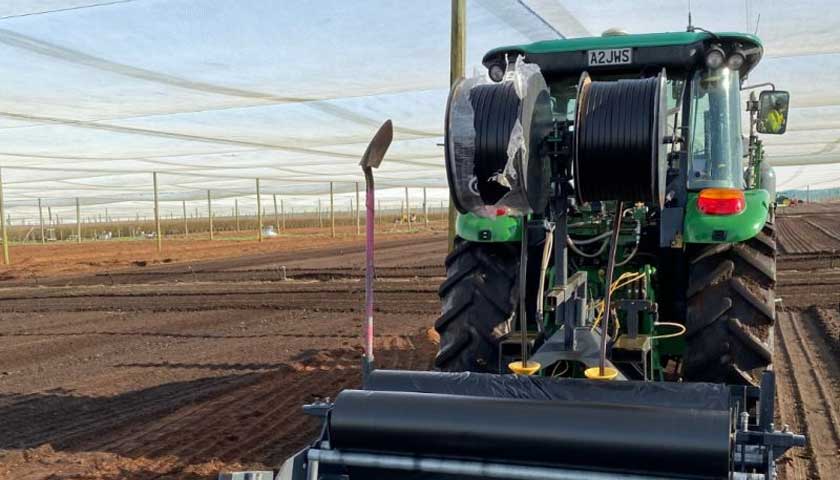
TriCal NZ Fumigates Blueberries in the North Island
Trical New Zealand has strategically targeted soilborne pests that contribute to replant diseases in blueberries. Soil fumigation enables Trical NZ to assist growers throughout New Zealand in safeguarding their investments and optimizing production efficiency.
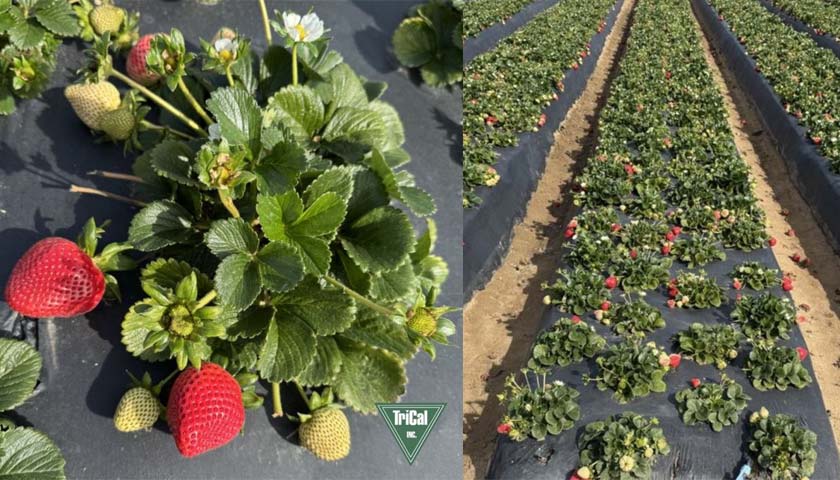
Innovative Strawberry Solutions in California
TriCal Inc. has been committed to enhancing soil health through specialized fumigation of this strawberry field in California. Innovative solutions effectively manage soilborne pests and diseases while enhancing soil quality and improving growing conditions for robust, productive crops.
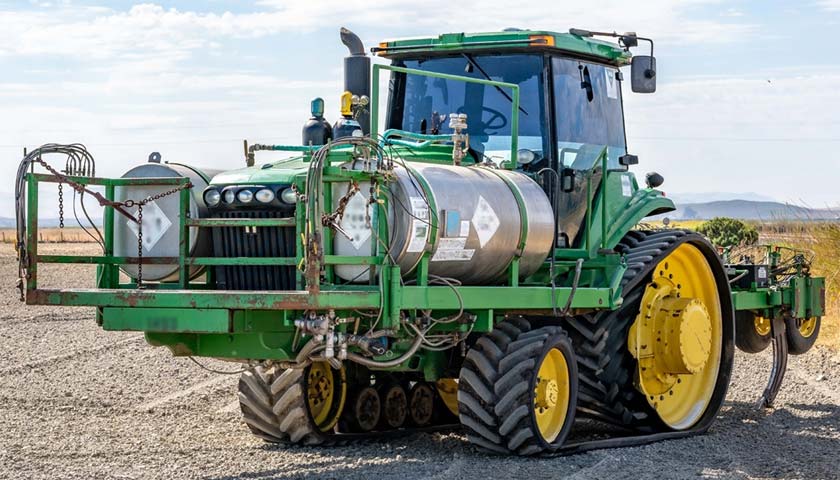
DPR Report Confirms Vital Role of Chloropicrin
The California Council on Science and Technology (CCST), commissioned a report by the California Department of Pesticide Regulation underscoring chloropicrin in modern agriculture. No alternative can replace this soil fumigant, and its role in managing soil-borne pests in high-value crops.
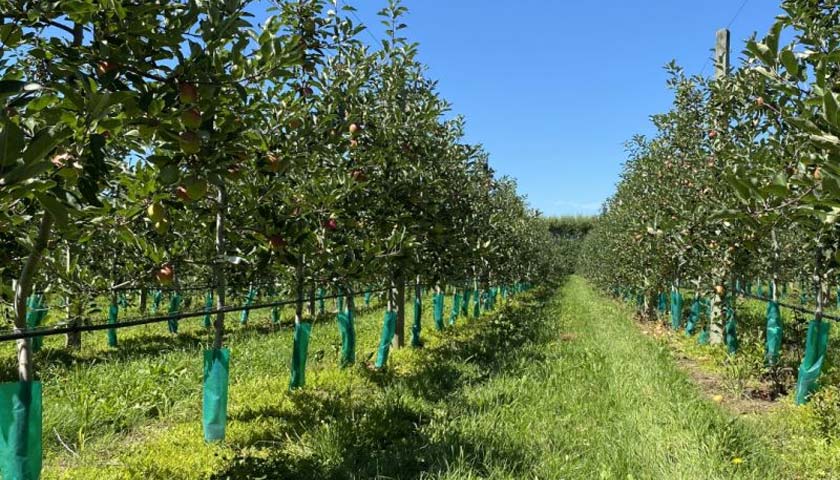
Pic-Plus: Tackling Apple Replant Disease
Soil Fumigation plays a crucial role in managing challenges like Apple Replant Disease. For this orchard, the process involved removing the existing plants, performing the soil fumigation, and allowing the soil to settle before replanting the apple trees.
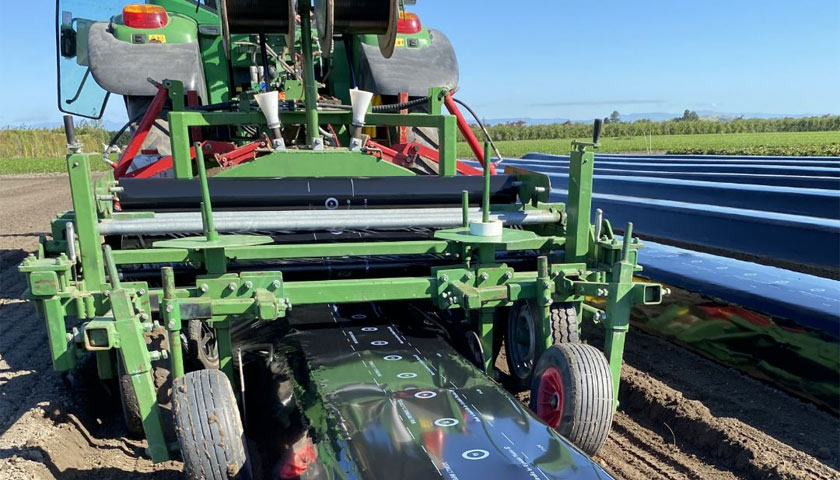
Future New Zealand Strawberries
This field is the future home of some beautiful, tasty, New Zealand strawberries. It was treated with Pic-Plus Soil Fumigation to manage soil-borne pathogens and allow for beneficial soil microbes thrive for a healthy soil environment for strong strawberry plants.
Can a soil fumigant be used as a biostimulant in agriculture?
Can a soil fumigant be used as a biostimulant in agriculture? At TriEst Ag Group we're trying to find those answers. Josh Mays, our agronomist, and Josh Freeman, our Regional Sales Manager, go into further depth on this topic and our findings.
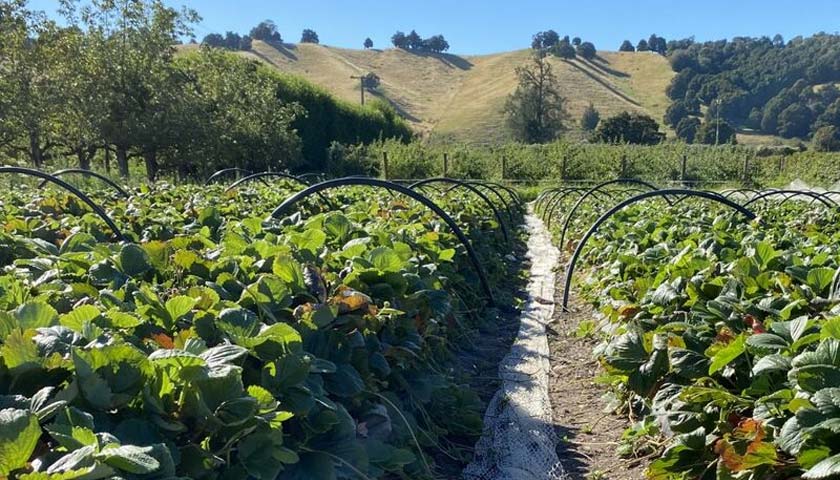
Stronger Soil, Thriving Strawberries
A year ago, this strawberry field underwent soil fumigation with TriCal NZ. The results speak for themselves. Healthy, vigorous plants and strong yields show the long-term benefits of creating a clean growing environment. Fumigation sets up crops for success season after season.

Bruce Jacobs visits Washington D.C. to talk Onions.
Teleos' Sales Manager Bruce Jacobs was recently in Washington D.C. as part of the National Onion Association's annual delegation to the capitol. The group was there to share the NOA's mission and discuss important topics relating to trade, crop protection, labor, and more.

Sweetpotato Soil Fumigation is the Right Plan
Triest Ag Group is spreading the word about implementing Chloropicrin into your sweetpotato soil fumigation plan you can maximize your tuber set and quality by reducing soil borne pathogens to create space for beneficial microbes to thrive for better soil health.

TriCal is Up Early and Ready to Work
Long before the sun rises, TriCal's technicians are already in the field, ensuring your soil fumigation begins with precision and care. TriCal's experienced fumigation teams understands that high-quality soil treatments starts with doing the job right from the very beginning.
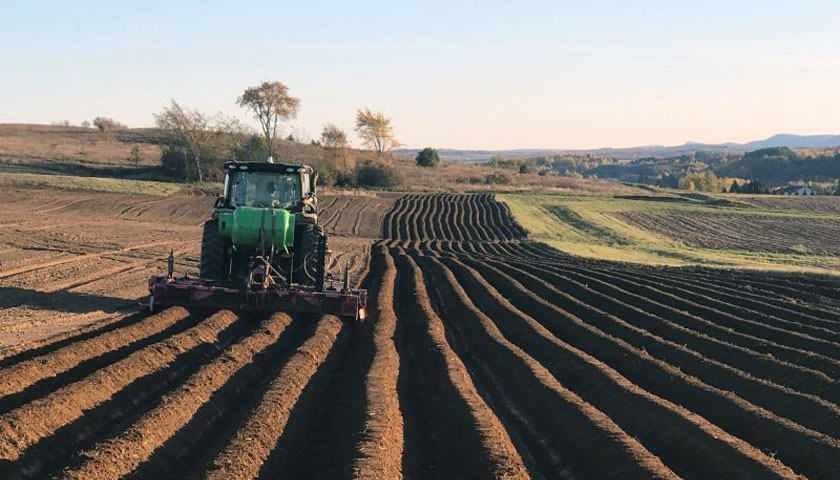
Stronger Plants, Better Yields, Fewer Resources
Stronger plants, better yields, fewer resources - and a lower carbon footprint. Potato growers face big sustainability goals, but with the right tools, we can get there—without sacrificing productivity. One tool that’s helping make this possible is Strike, driven by the chloropicrin.

North Island Watermelons Ripe with Flavor
Check out these vibrant watermelons growing strong in Levin, North Island! With the help of soil fumigation, this New Zealand soil was prepared to give these watermelon plants the best possible start—reducing soil-borne pests and diseases for a healthier, more productive season.
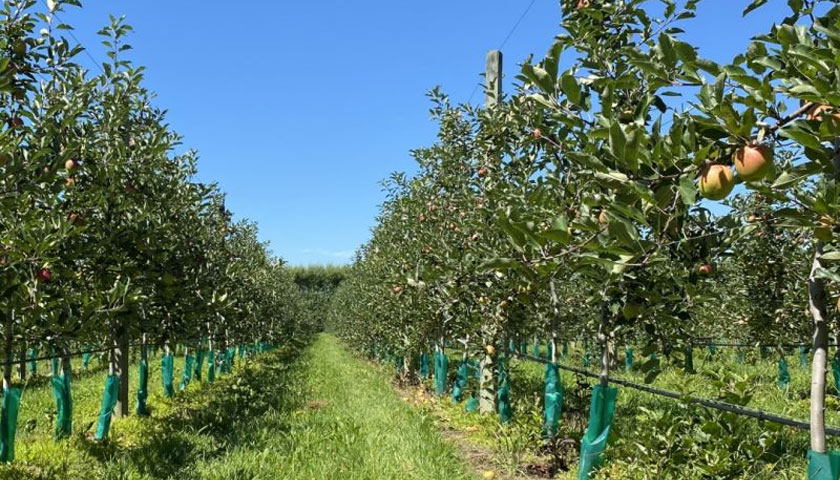
Apple Orchards in New Zealand are Looking Fantastic
This apple orchard in New Zealand is looking fantastic and soon it will be ready for harvest. Last season, Pic Plus soil fumigation was used to create a clean, healthy growing environment—helping these trees produce high-quality fruit and ensuring stronger, more productive trees.
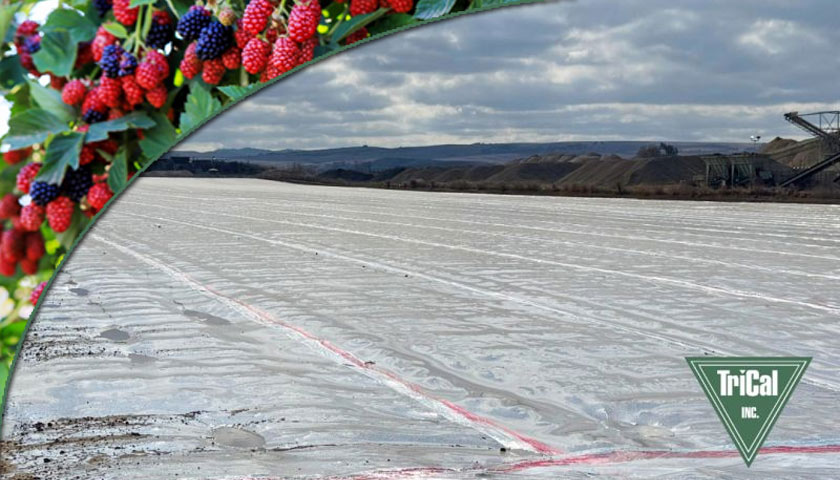
Raspberry Soil Fumigation Project in Santa Maria
TriCal Inc. recently completed a soil fumigation project for a raspberry crop in the Santa Maria area. Trical Inc. help growers create a healthy root system, control disease, and improved crop yields. Soil fumigation solutions can maximize your yield and protect your soil health.
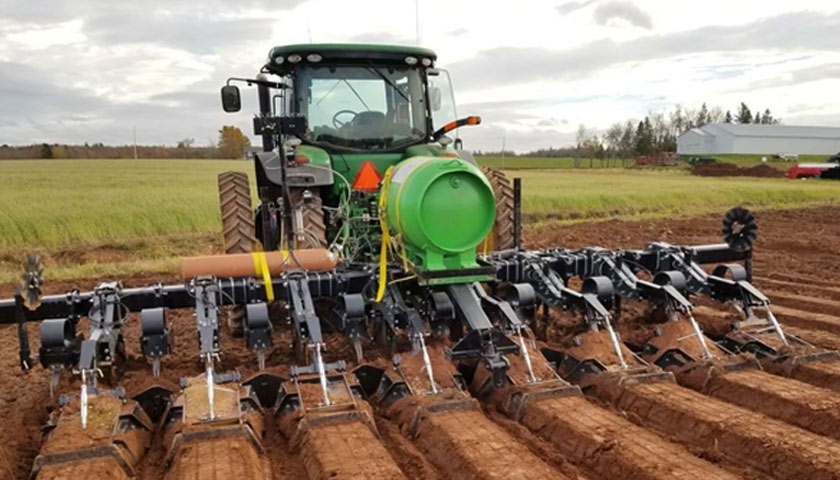
Preparing For Spring Telone™ Applications
As spring approaches, it’s essential to prepare fields for planting by effectively managing soil-borne pests, particularly nematodes. This blog post outlines steps to ensure successful fumigation, including soil sampling, using pre-application checklists, and monitoring soil moisture levels.
TELONE™ Dual-Application in Hastings, Florida
Potato Growers love seeing dual-application fumigation in process, and this view from above is even better. Check out this dual-application of TELONE™ (to combat nematodes) and chloropicrin (to target soil-borne diseases) on potatoes in Hastings, Florida.
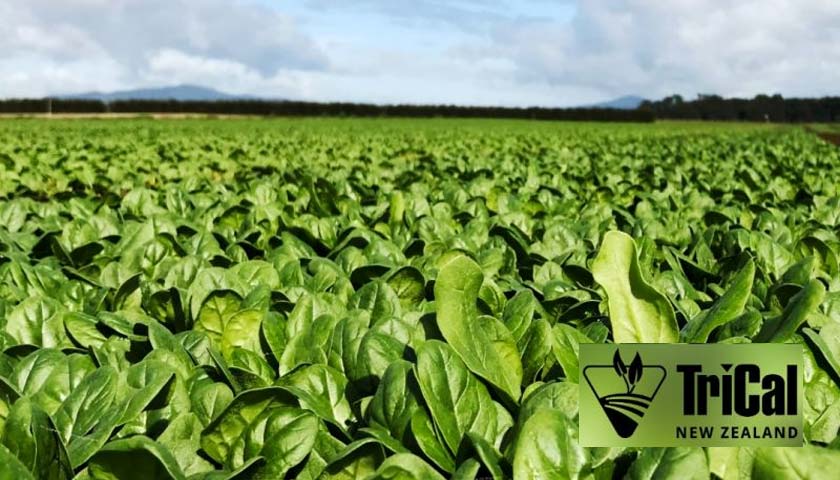
Tri-Form Fumigation on Baby Spinach
Take a look at this BB Spinach crop as it progresses through its growth stage! This block was previously fumigated with Tri-Form 60, ensuring the soil is free from harmful pathogens and pests. A well-prepared foundation leads to stronger, healthier plants and a more bountiful harvest.
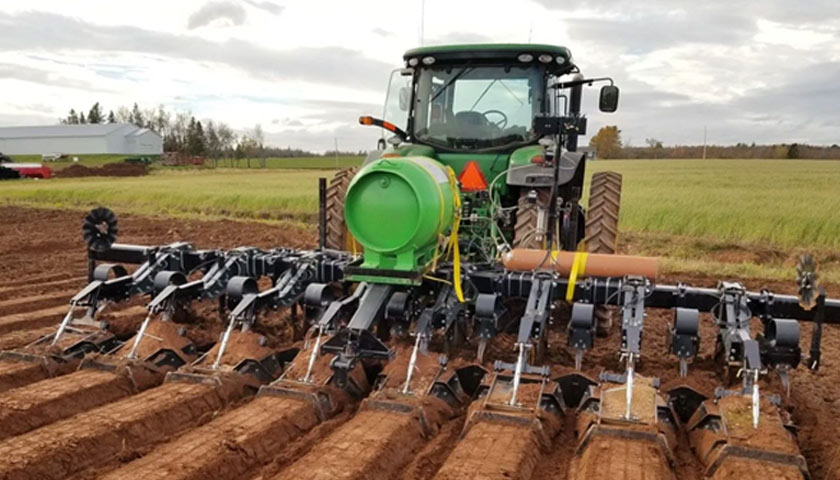
The Role of Soil Fumigation in Boosting Crop Growth
Soil fumigation is a pre-planting practice that involves injecting fumigants into the soil to target harmful soil-borne pests and pathogens. This process works by penetrating throughout the soil to target nematodes, fungi, bacteria, and insects, which can hinder plant development.
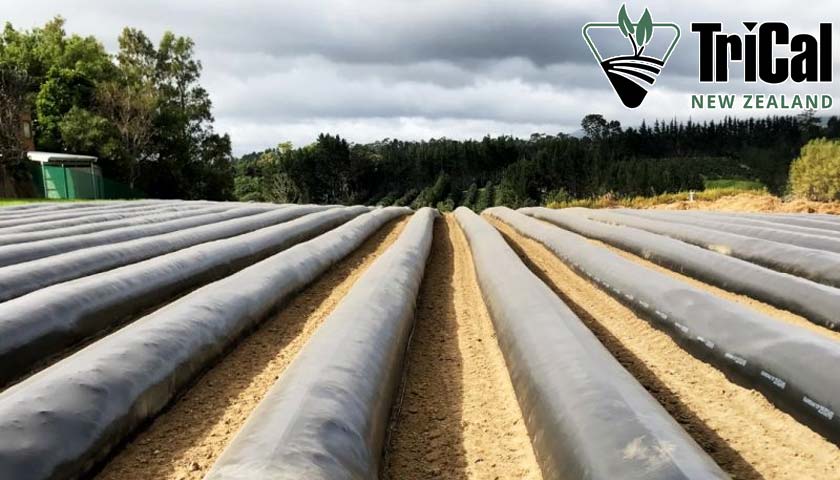
Strawberries Ready to Thrive in New Zealand!
Trical New Zealand prepared a strawberry crop using our comprehensive approach: bed forming, poly laying, drip irrigation tape installation, and soil fumigation with Pic-Plus. This creates optimal growing conditions, manages diseases and ensures a healthy and productive strawberry crop.
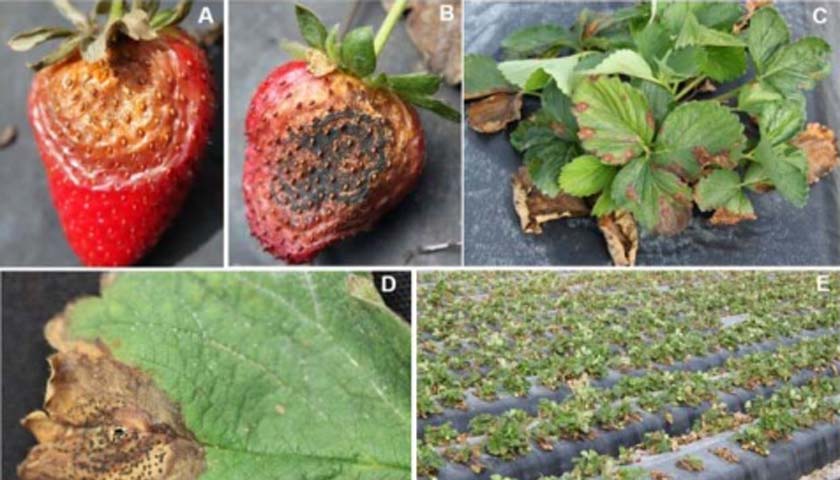
NC State Extension released its Strategic Plan for Strawberry
NC State Extension recently released its Pest Management Strategic Plan for Strawberries in the Southeast including Virginia, North Carolina, South Carolina, Georgia, and Florida, giving detailed information on common pests, weeds, pathogens, and best practices.

"California Grown" Strawberries Heading to Market
Keep an eye out for "California Grown" strawberries on your next shopping trip your grocery store. Trical believes great strawberries begin with healthy soil with soil fumigation solutions designed to support vigorous plant growth and produce berries with exceptional size and quality.
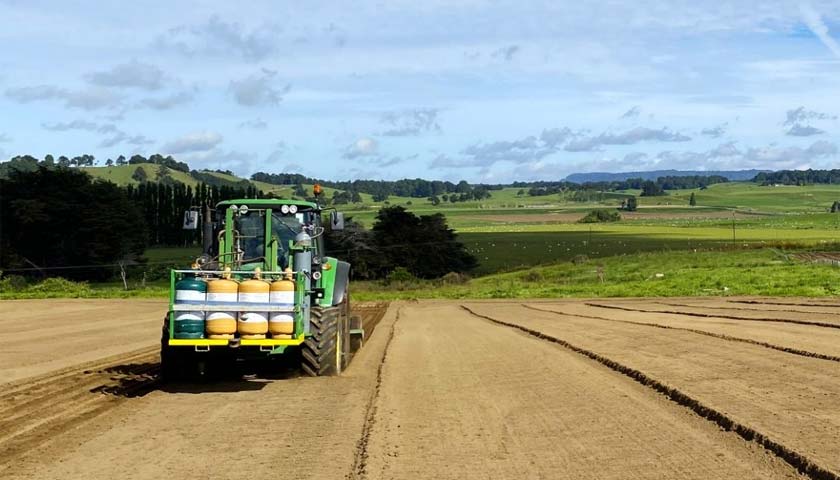
Fumigation for Healthier Carrot Crops!
TriCal New Zealand recently completed a soil fumigation project for a carrot block, focusing on managing soilborne diseases and pests that can threaten crop health and yields. Soil fumigation is a vital step in creating clean, healthy soil conditions, giving crops the best chance to thrive from the very start.

Potato Trial in Oregon focused on Tackling Pathogens
Trident Ag Products and Dr. Maxwell Handiseni are conducting a potato trial in Boardman, Oregon, focused on tackling pathogens like verticillium wilt and black dot in potatoes using chloropicrin, the active ingredient in Strike™ Soil Fumigant.
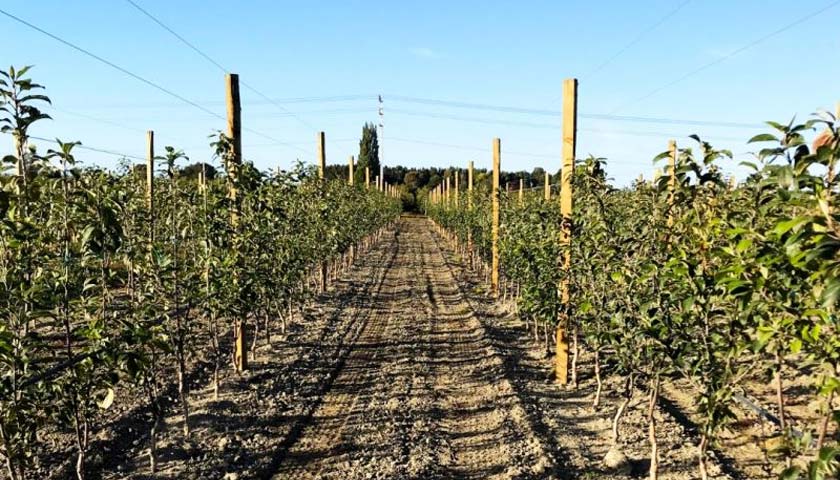
Soil Fumigation Faces the Challenges of Apple Replant
Trical New Zealand is showing off this apple orchard which is growing strong and thriving thanks to a soil fumigation treatment completed by TriCal New Zealand using our Pic-Plus product and a careful and precise approach to create the environment for apple trees to flourish.
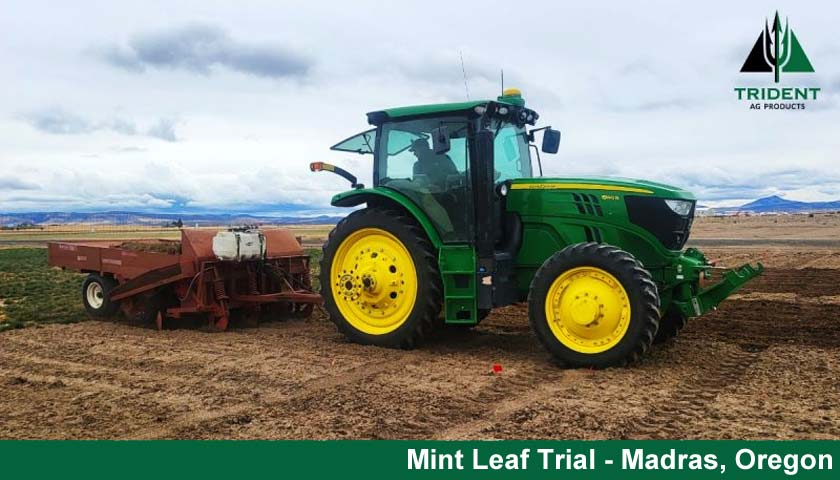
Trident Ag Managing Verticillium Wilt in Leaf Mint in Oregon
In Madras, Oregon, Trident is initiating a trial to explore solutions for managing verticillium wilt in leaf mint. This study integrates a chloropicrin soil fumigant with a biological fungicide containing Bacillus spp. to suppress pathogens and enhance crop health.

Sunrise over Raspberry Fields in California
Trical added another raspberry field added to thier growing portfolio—there’s nothing quite like starting the day early and witnessing a stunning sunrise over the fields. Moments like this remind us why we’re passionate about what we do.

Agronomy Q&A: The Role of Soil Fumigation In Boosting Crop Growth
Soil fumigation is a pre-planting practice that works by penetrating throughout the soil profile to address threats like nematodes, fungi, bacteria, and insects, creating a pathogen-free root zone, soil fumigation lays the foundation for a healthier growing environment.
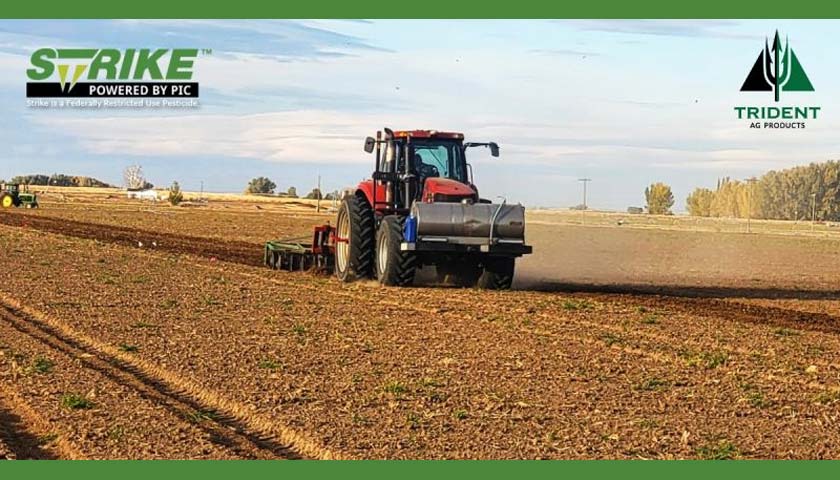
"Early Die" Potato Field trial at Rupert, Idaho
Trident Ag conducting a potato field trial at Rupert, Idaho to address the challenges of "early die" in potatoes. This trial focuses on utilizing Chloropicrin, the active ingredient in Strike™ Soil Fumigant, to effectively manage pathogens and promote healthier, more resilient crops.
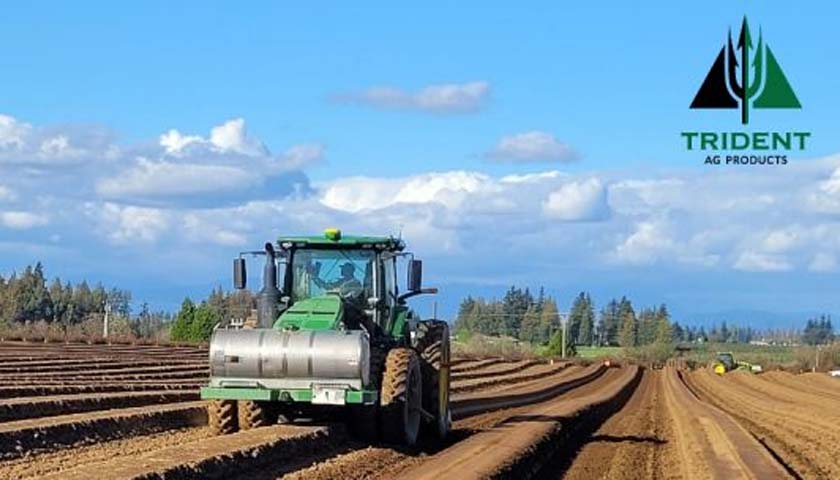
Soil treatment and Set the Foundation for a New Year
The start of a new year is the ideal time to plan soil treatment and set the foundation for a successful growing season. Healthy soil is essential for producing high-quality crops, especially when managing the demands of a long growing cycle. Proper soil preparation before planting not only promotes resilient crop growth but also supports consistent yield success.
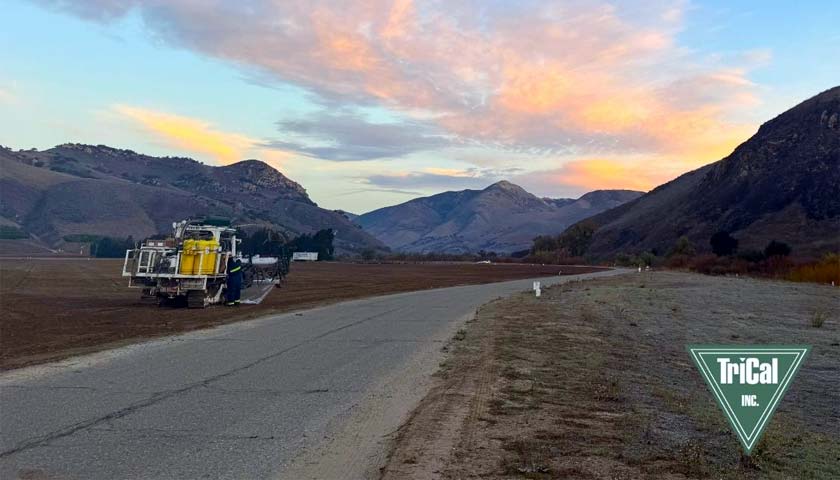
Raspberry Soil Fumigation on the Coastal California
Trical Inc. just completed a raspberry soil fumigation project along Coastal California, helping a local farmer ensure a thriving harvest season. Booking a consultation with a Trical Inc PCA can help farmers learn how to support the success of a farmer's planting season.

Teleos Ag Posts "Managing Replant Problem & Nematodes" PDF
With the year coming to a close, now's the time to start thinking about your orchard replant! Before you get started, be sure to check out our "Managing Replant Problem & Nematodes" PDF, available for download on the link below
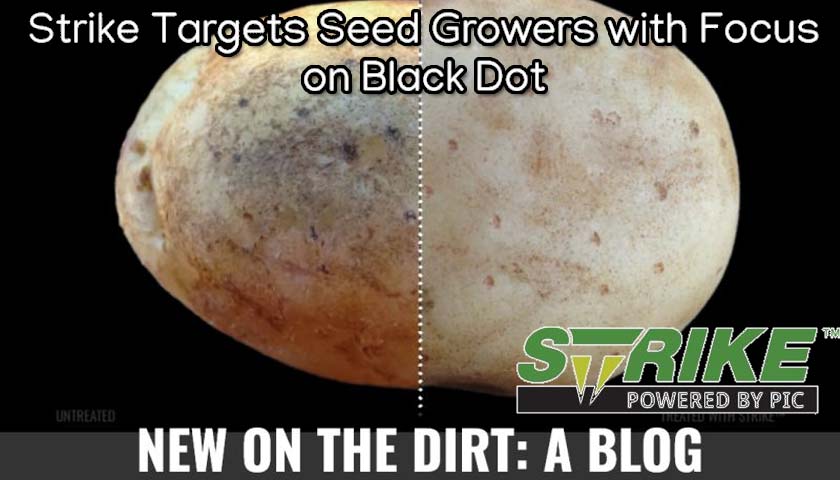
Strike Targets Seed Growers with Focus on Black Dot
Black dot has historically been overlooked in potato seed production. Recent research shows that black dot, caused by the fungus Colletotrichum coccodes, working synergistically with Verticillium dahliae and root-lesion nematodes to weaken plants and reduce yields.

Trical Inc. fumigating Strawberry Fields fighting Nemotodes
Despite the overcast skies in Santa Maria, California, dedicated technicians are hard at work treating the strawberry fields to mitigate soil-borne diseases like nematodes. This proactive farmer is ensuring that the upcoming planting season will be both smooth and successful.
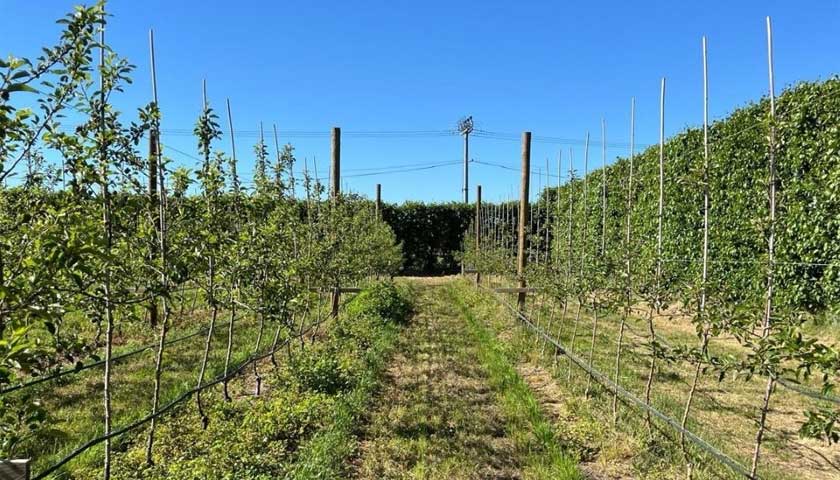
Trical New Zealand on Tackling Apple Replant Disease
Trical New Zealand shows off incredible differences between Pic-Plus and non-treated rows of Apple Trees in Napier, New Zealand. The job involved broadacre tarped soil fumigation. TriCal NZ is committed to excellence in every job, ensuring healthy fields and healthy yields.
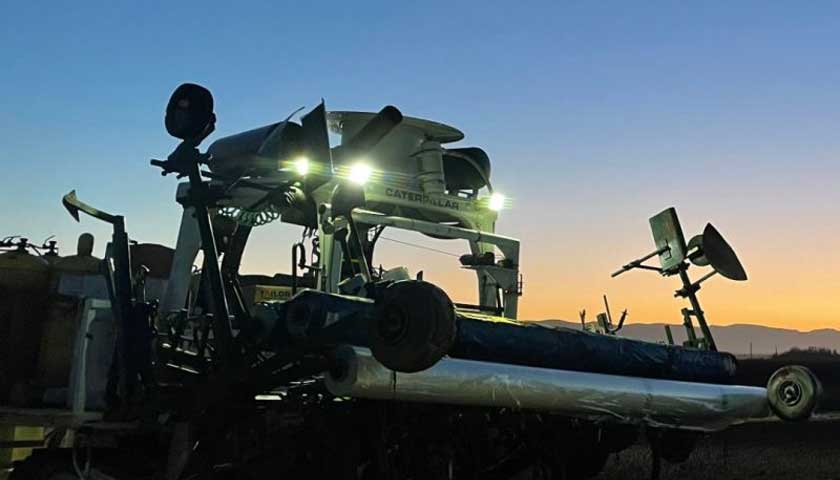
Dawn breaks as Trical Inc. is Already on the Job
Trical Inc. is at work in the field before dawn breaks. Trical Inc.'s team of experts is committed to delivering high-quality soil treatments customized to meet your unique requirements by being an ally that respects your time and investment. Soil Fumigation is a solid start is essential for long-term success.

Trident Ag Products: Enhancing Soil Health with Chloropicrin Fumigants
Chloropicrin has been a trusted soil fumigation solution for over 60 years, helping specialty crop growers around the world maximize yields and maintain healthy soils. But what makes it such a powerful tool? Here’s a closer look at some of its benefits:
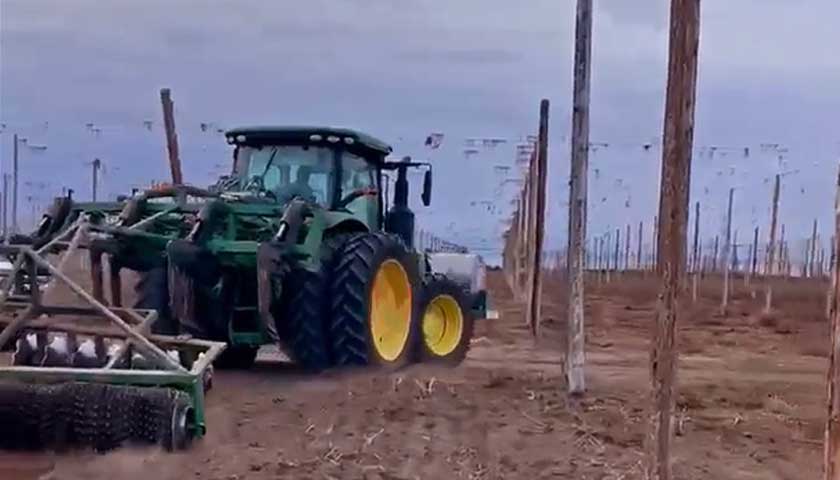
New Fumigation for Hop Soil Treatment
Trident Ag completed a hop soil treatment in the Pacific Northwest using Pic-Clor 35 at a rate of 20.5 gallons per acre to effectively suppress nematodes and disease. It’s truly impressive to see the driver moves with precision of our operator navigating close to the poles with the packer.
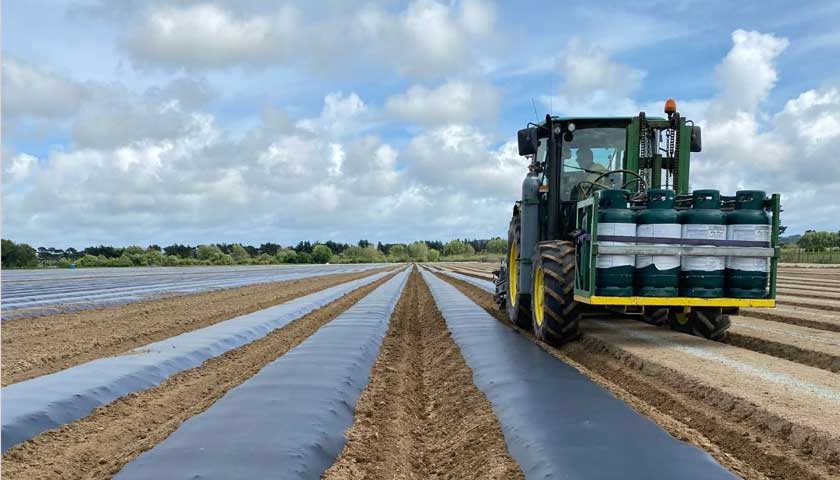
NZ Trial Update - Clubroot in a Broccoli
Trical New Zealand conducted a trial on another block of an important customer in Levin, North Island. This time, we targeted Clubroot in a broccoli crop. This block has a high disease pressure, making it a challenging task. Trical NZ fumigated with Pic-Plus and left an untreated section for control.
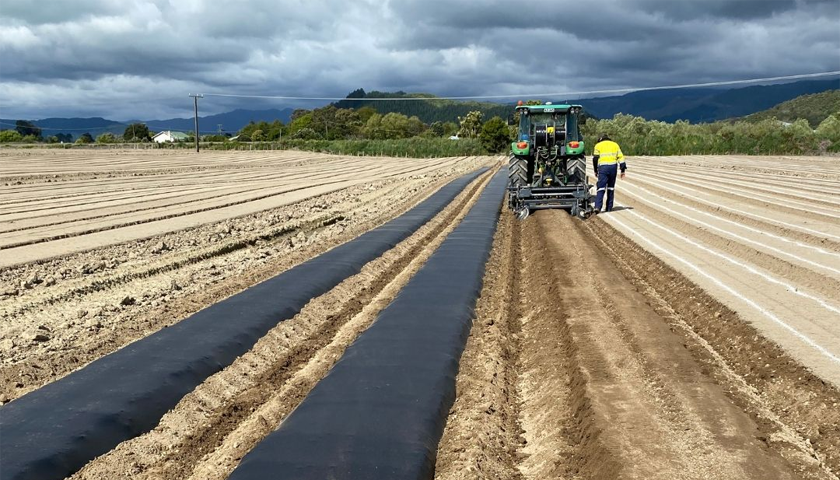
Trical NZ completes Watermelon Fumigation
Trical New Zealand recently completed a commercial fumigation job on the watermelon blocks for a valued customer in Levin, North Island. Fumigation targeted Fusarium sp, but they tackled other pests too. Thanks to perfect moisture and temperature conditions, the TriCal NZ team did an outstanding job using Pic-Plus.

Growers in South Carolina are prepping their Peach Orchards now
Growers in South Carolina are prepping their peach orchards now, ahead of spring plantings in April. While growers do have nematode-resistant rootstock options, Root-Knot nematodes are still a huge threat for peaches in South Carolina.
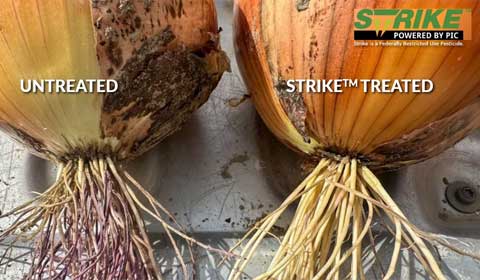
Strike out Soil Disease in Onions
Strike soil fumigants provide a barrier of protection from soil borne disease in the first 6 to 8 weeks, buying time for the onions to yield a healthy and vigorous root. Soil health studies prove that Strike suppresses disease while also supporting biological diversity and soil health overall.
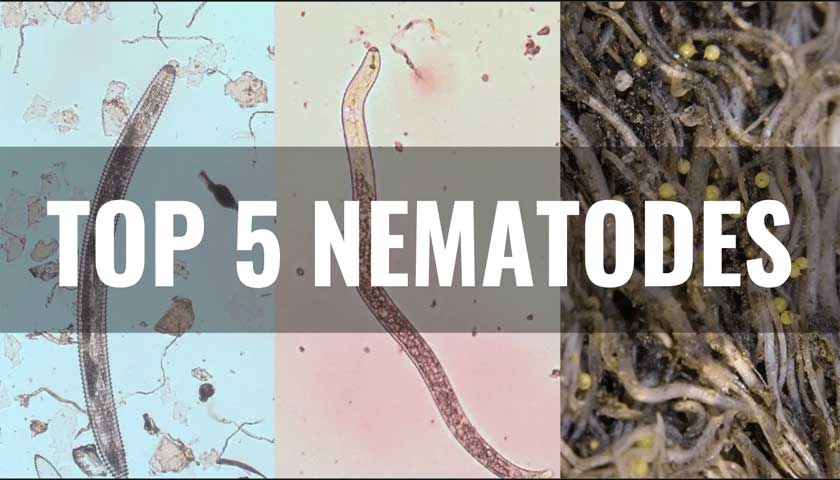
The 5 Most Common Plant-Parasitic Nematodes and How TELONE™ Can Help Protect Your Crops
Plant-parasitic nematodes are some of the most destructive pests in agriculture. With over 4,000 species of plant-parasitic nematodes worldwide, identifying and managing the right ones in your fields is crucial.

Sweetpotato harvesting in Eureka, North Carolina
Our Director of R&D Dr. Randy (RM) Huckaba was in Eureka, NC harvesting a sweetpotato experiment. The test treatments included TELONE™ II as well as TELONE™/Chloropicrin combinations. The results showed TELONE™ provided very good control of the devastating guava root-knot nematode.

Trical visits with California Legislators Advocating for Soil Fumigation
Colleagues Courtney Ross-Tait and Kara KeziosKara Kezios were in sunny Sacramento educating legislators and advocating for the benefits of soil fumigation. Soil fumigation leads to soil health by creating healthy root systems. TriCal, Inc. has been in business for over 60 years improving crop yield and quality for farmers and growers in California and all over the world.
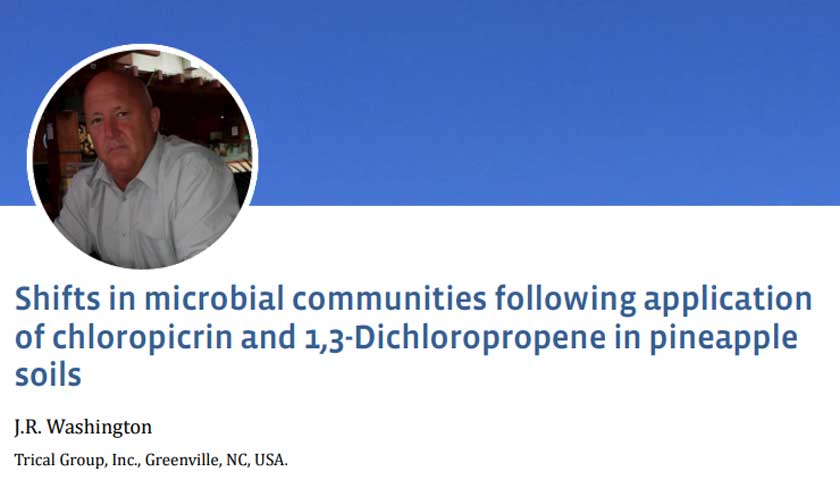
Shifts in Microbial Communities following application of Chloropicrin and 1,3-Dichloropropene in Pineapple
Trical Group's John Washington released a paper on fumigation using Chloropicrin and 1,3-dichloropropene (1,3-D) and its impact on microbiological communities and soil health.
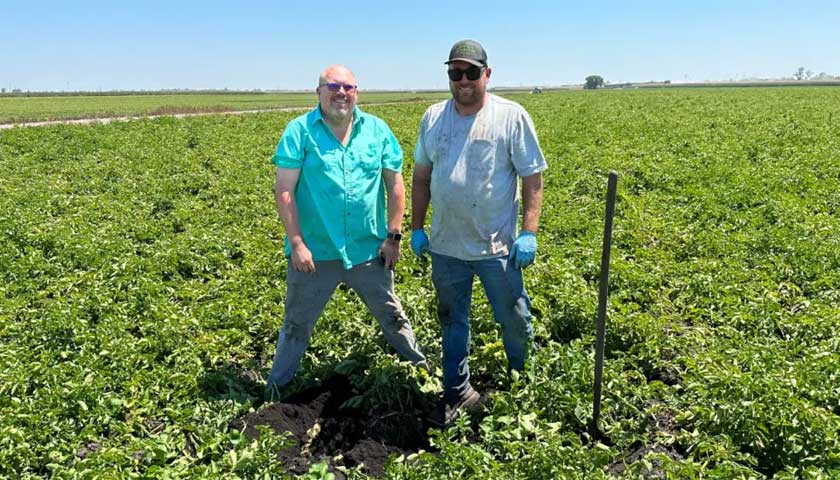
Agricultural Science Done Right Resolves Social Science Intentions
Farmers are hungry for tangible ways to increase their sustainable efforts while maintaining economically viable yields. A lot of voices are calling for farming reform. However, feel good soundbites don’t feed the world. Potato producers are keen for real solutions.
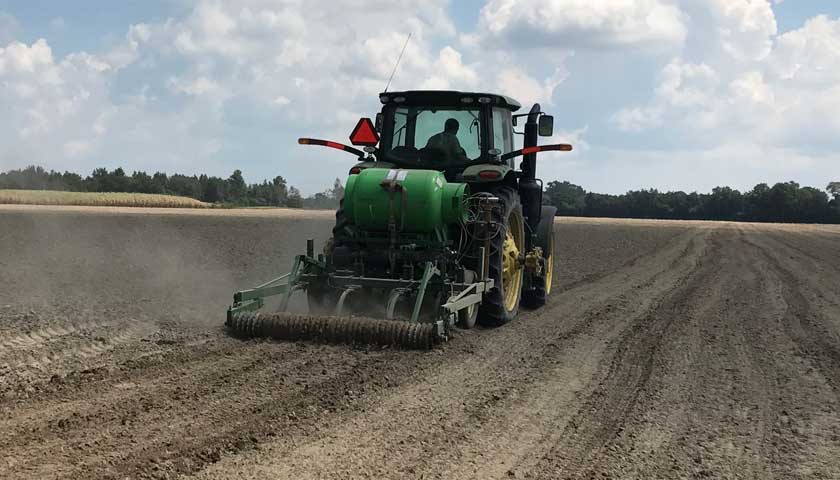
Breaking Down the Details on Chloropicrin
Chloropicrin has been used as an agricultural product for soil-borne pest suppression in specialty crops throughout the world for over 60 years. It is a bio-nutritional soil fumigant that breaks down into elements that are naturally utilized by plants: carbon, chlorine, nitrogen, and oxygen.
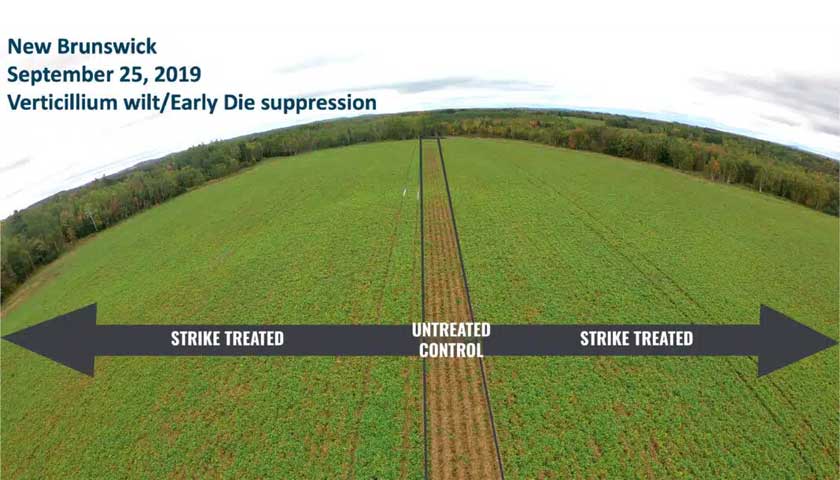
A top read Spud Smart article on Verticillium Wilt Management
The farmers are dealing with verticillium. The table of farmers started by laying out the stark reality: “Verticillium is trouncing our crops.” The agronomists and plant pathologists present spent the discussion recommending: “Try cover crops”, “Try manure”, “Try compost”.
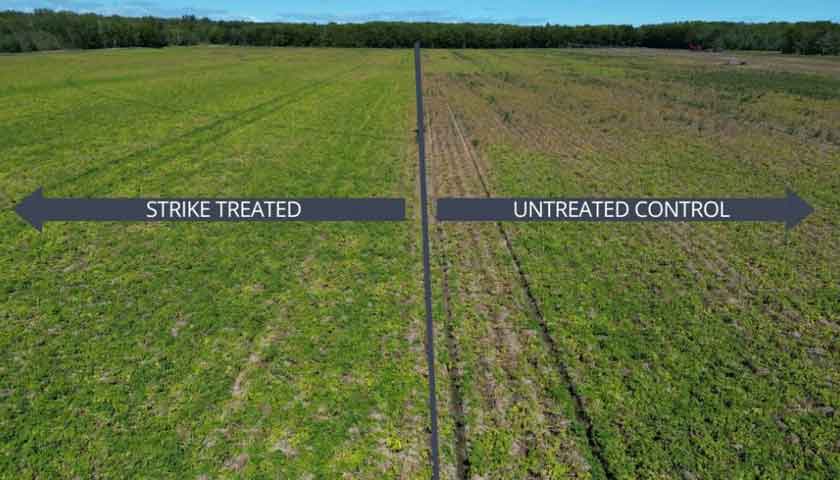
Up to 68% of Potato Seed Could be Infected with Verticillium
68% of all seed potatoes sold in the Pacific Northwest are infected with verticillium. If you are a potato farmer who doesn't currently battle verticillium and you’re buying seed potatoes, you have a more than two in three chance that you’ll bring verticillium in.

Bean Trial 2023
In 2023, Trident Agricultural Products conducted field trials in Idaho, focusing on kidney beans for seed production. The trials aimed to evaluate the effectiveness of PIC 100 (Chloropicrin) at low dosage rates of 2.5 GPA and 5 GPA at maximizing yield and income gain in comparison to non-fumigated checks.
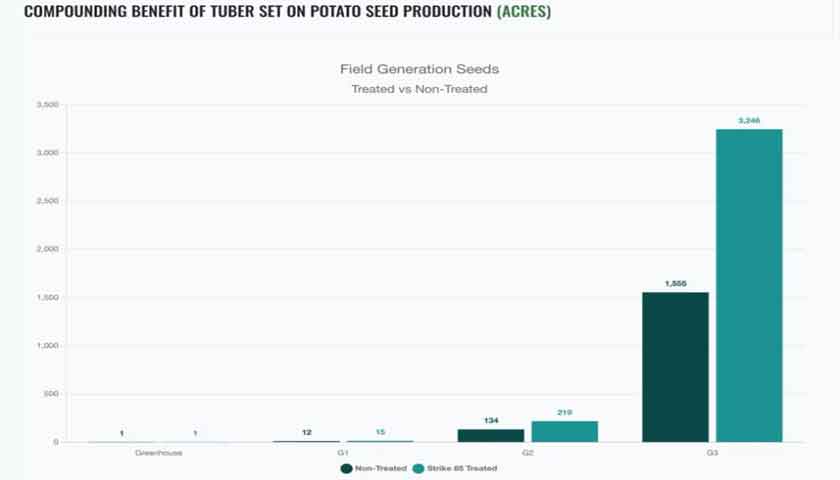
Are you a Potato Seed Farmer?
We conducted a two-year trial comparing potatoes grown in soil where disease was managed with Strike (chloropicrin). Based on what we observed in the field regarding tuber set increase, we developed a model that incorporated the benefit of set increase from Strike in a seed production system.
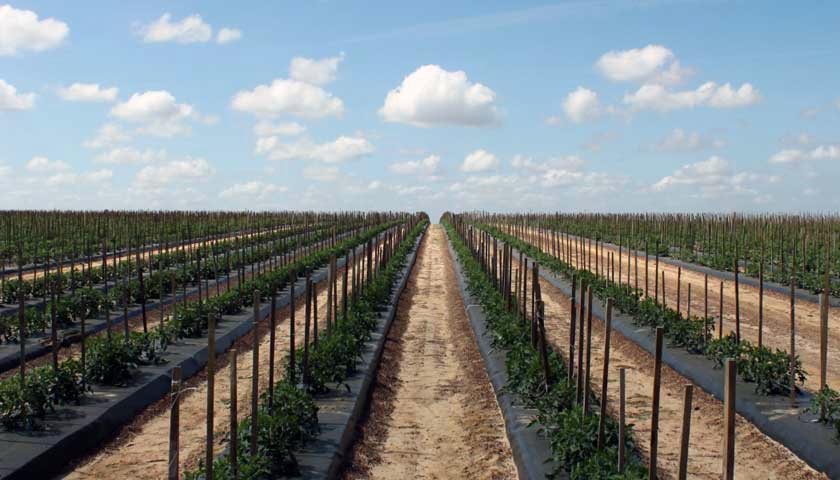
Could A Soil Fumigant Be Used as a Bio-Stimulant?
A group of scientists at the University of Florida have been investigating the impact of soil fumigation on microbial communities and recently published some of their findings. They found that fumigant treatments with greater than 60% chloropicrin consistently increased tomato yield
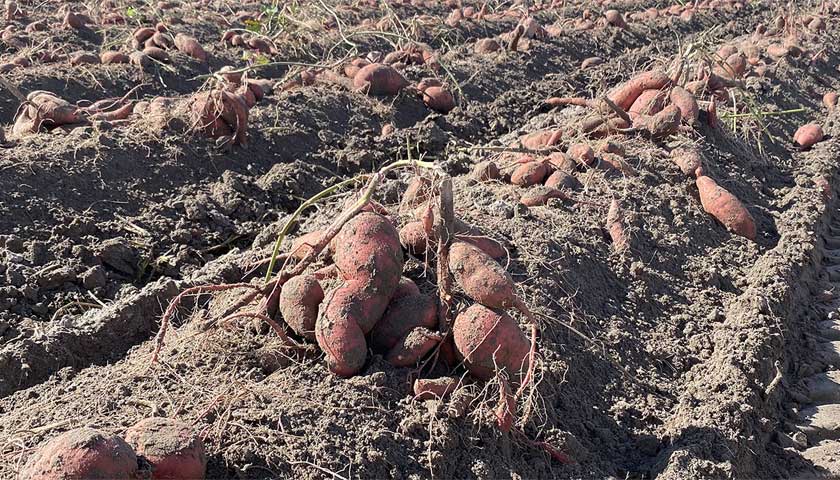
Low Dose Chloropicrin – When SweetPotato set is at Stake
In the Summer/Fall of 2022 TriEst Ag Group did a mixture study that focused on Enterolobii in Nash County, NC. The trial evaluated the use of TELONETM, C15, and C35 at 6 GPA (22 GPA broadcast) shank applied in-row 14” deep with 10” of stack.
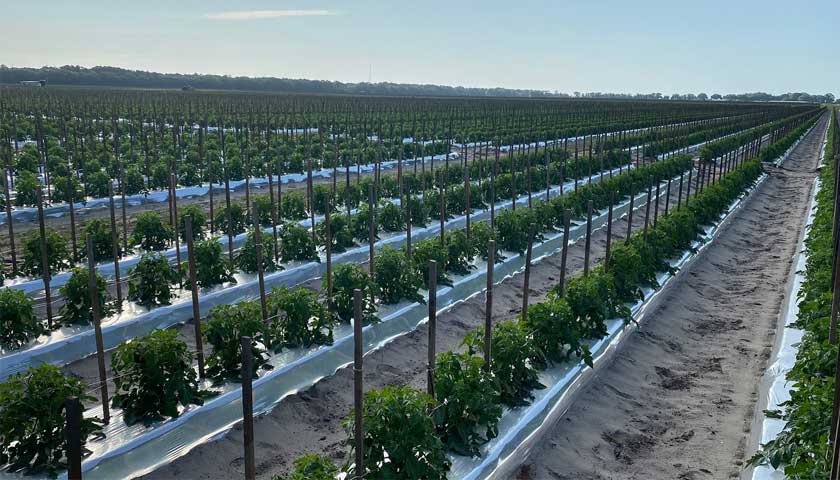
Triest Ag Group: Partners in Profitability
There is a lot of talk about sustainability and regeneration in agriculture these days. But what do those terms really mean? If you ask five people, you might get five different definitions. But for Josh Mays, Director of Agronomy for TriEst Ag Group, it all starts with profitability.

TELONE™ USA R&D – Potato Field Trials 2024
Nematodes are a common pest in potato-growing areas, particularly in the Pacific Northwest. This blog post will cover common nematodes affecting potatoes in the Pacific Northwest, and recap a potato field trial that was done to demonstrate TELONE™ efficacy.

TELONE™ Japan R&D – Watermelon Field Trials
Watermelons are a popular crop in Japan. Unfortunately, they are also highly susceptible to destructive root-knot nematodes which negatively impact overall yields and fruit quality. Japanese growers know that nothing is more effective against nematodes than TELONE™!
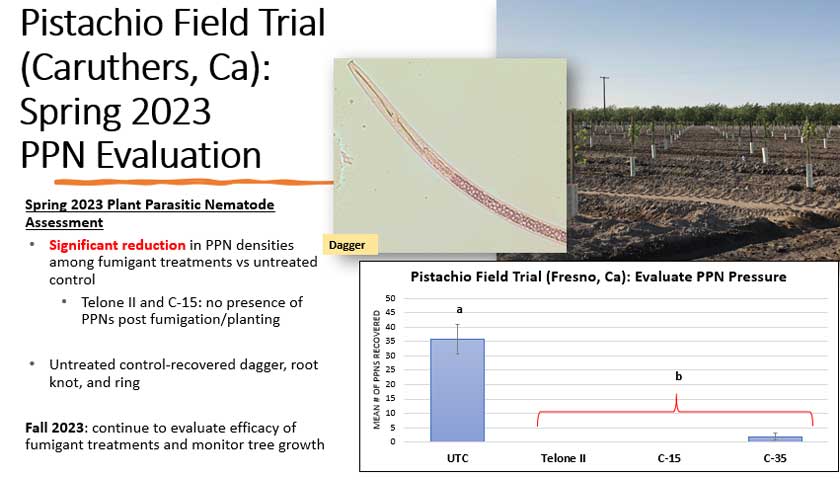
Pistachio Field Trials: Decreased Nematode Densities
This past Fall we established 2 multi-year field trials in California. Our main objective is to examine the benefits of TELONE™ and Chloropicrin providing early rootstock establishment, promoting early growth, and stronger root systems as we have documented in other crop markets.
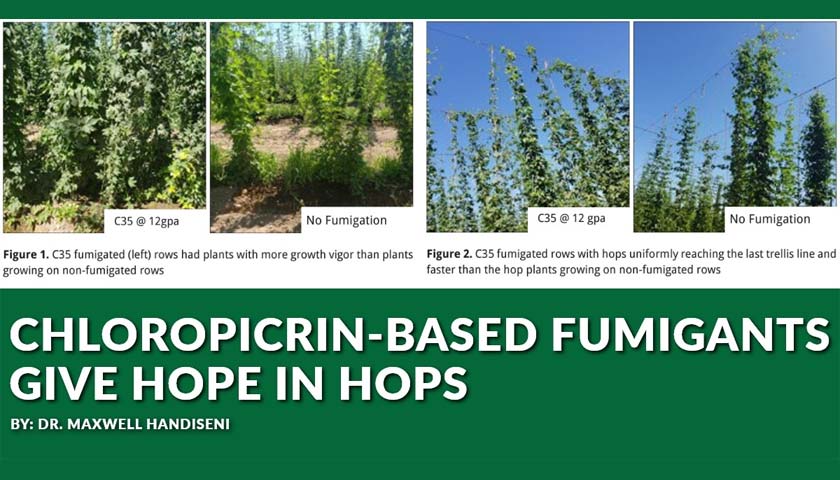
Chloropicrin-Based Fumigants Give Hope In Hops
The Pacific Northwest is known for producing hops that can be devastated by pathogens such as Rhizoctonia solani, Verticillium, Fusarium, and Alternaria. These pathogens can result in stunted growth, wilting and root decay which drastically impact plant growth and consequently hop yield and quality.

Finally: A New (Desperately Needed) Solution for Potato Wart?
Potato wart strikes fear in the bravest among us and at every level of the potato value chain. 36 fields have been identified as infected in three counties since 2000, leading to major trade disruptions, the destruction of hundreds of millions of kilograms of potatoes.

A High-tech Look Inside Soil’s Microbiome
Chad Hutchinson is pleased to discuss soil microbes and sustainability with Joy Youwakim, an agroecology scientist at Biome Makers, an independent, third-party genomics company that specializes in DNA sequencing of agricultural soil samples.
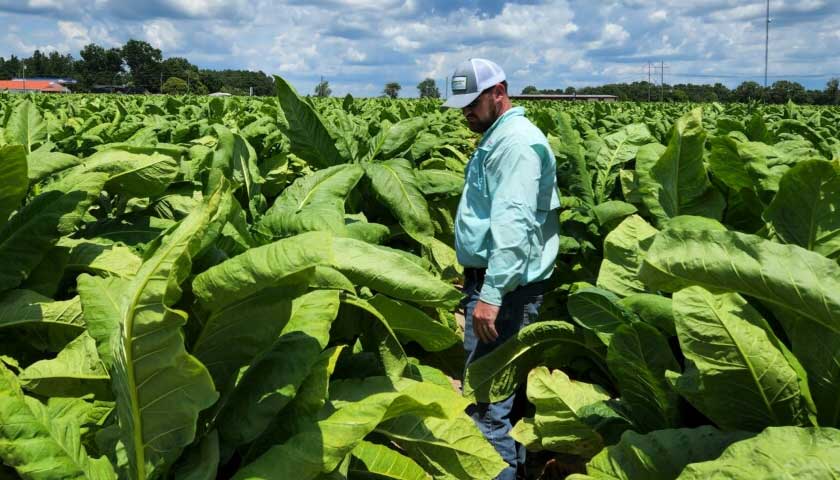
2023 Trial: Impacts of Soil Fumigation of Tobacco
TriEst wanted to look at finding application and timing solutions to better meet nematode and disease pressures. The 2023 trial focused on sampling depths to map location of pests, dual depth applications to place the correct product in the right place, and proof out these concepts.

Short-term Thinking Costs Long-term Benefits
I convinced the director of agronomy for a large company that grows chipping potatoes to try soil fumigation with chloropicrin (sold as Strike). He appreciated the soil health and yield gains he achieved in year one, but he hasn’t been seeing the longer-term soil health gains.
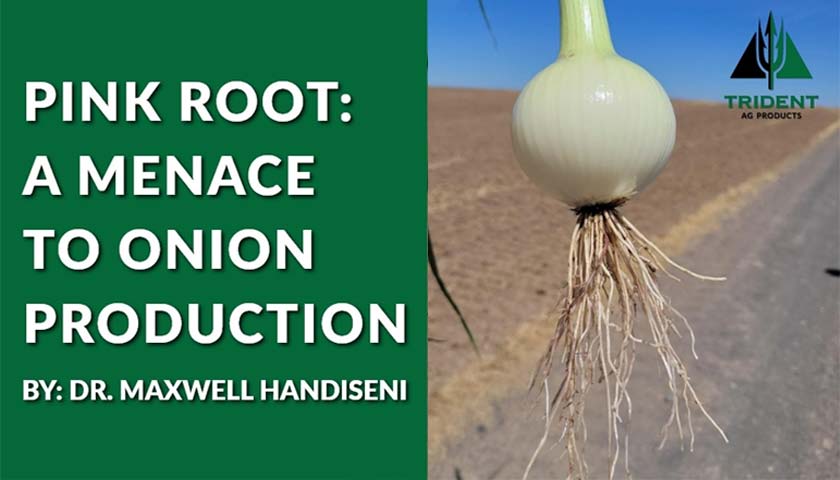
Pink Root: A Menace to Onion Production
Pink root of onion caused by Phoma (Pyrenochaeta) terrestris is a devastating soilborne pathogen of onion worldwide. Infected roots are noticeable by a pink to red color at early stages of the disease and eventually dark in color and death of the plant. The pathogen has a wide host range.
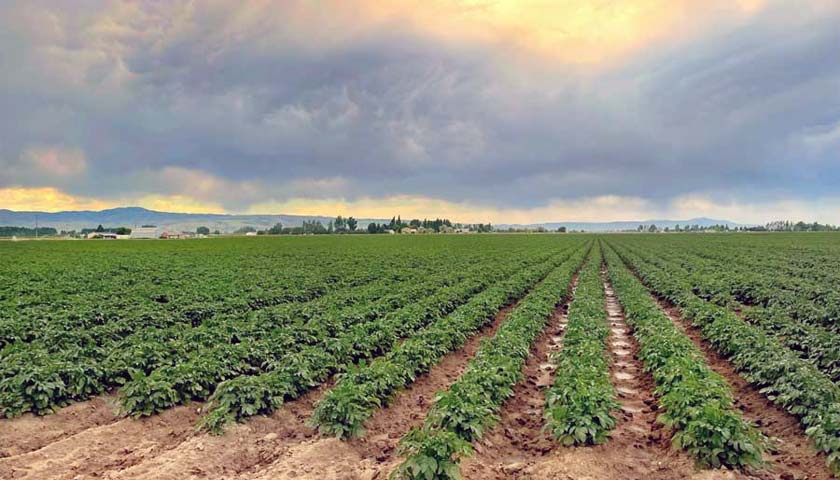
New Technology Provides First-Ever Snapshot of Fumigants’ Impact on Soil Health
Soil fumigation is highly effective at managing soil pests that cause crop disease. However, it is regularly accused of doing more harm than good to overall soil biology. Advances in genetic sequencing technology can now show how fumigation actually changes bacterial and fungal populations in agricultural soil, and the close-up look is surprising.
Basic Application Methods
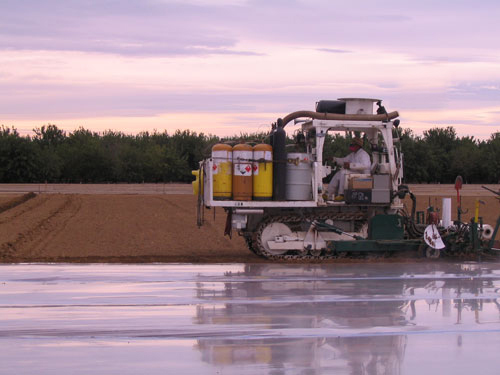 Tarped Shank
Tarped ShankThis method injects the fumigant into the ground. Commonly done with narrow, knife-type shanks with tubes attached to deliver the fumigant and is immediately covered after application with film or plastic to trap the fumigant for efficacy and safety.
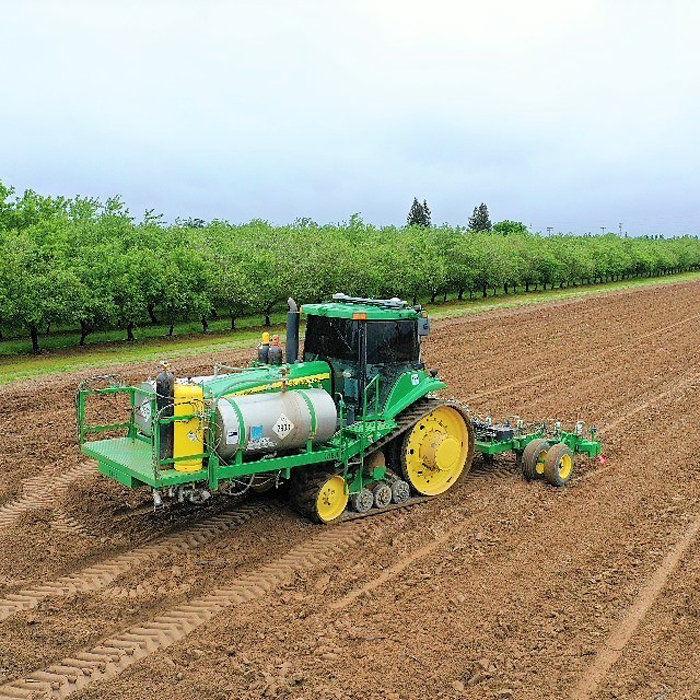 Non-tarped Shank
Non-tarped ShankThis method is similar to Tarped with the fumigant injected into the ground with narrow, knife-type shanks. Instead of plastic tarping, the soil is sealed after application with the proper equipment to compact the top of the soil, trapping the fumigant for efficacy and safety.
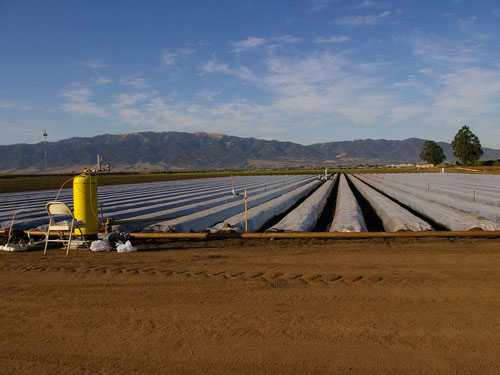 Drip Irrigation
Drip IrrigationDrip method utilizes the drip irrigation system to deliver the fumigant with irrigation water providing distribution in the soil.
Links
Trical Inc. - How Soil Fumigation WorksTrident Ag. - How Soil Fumigation Works
Triest Ag Group. - How Soil Fumigation Works
